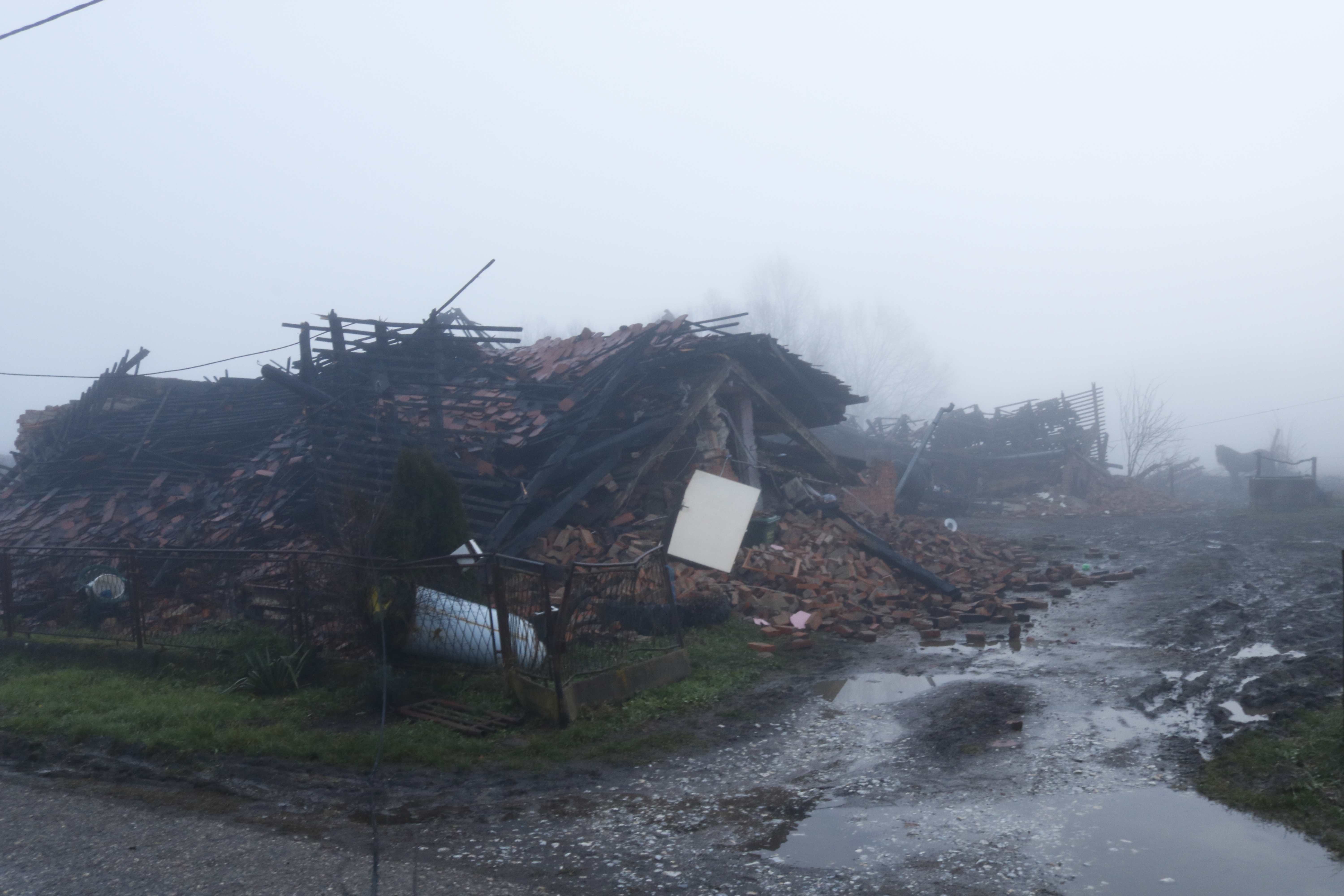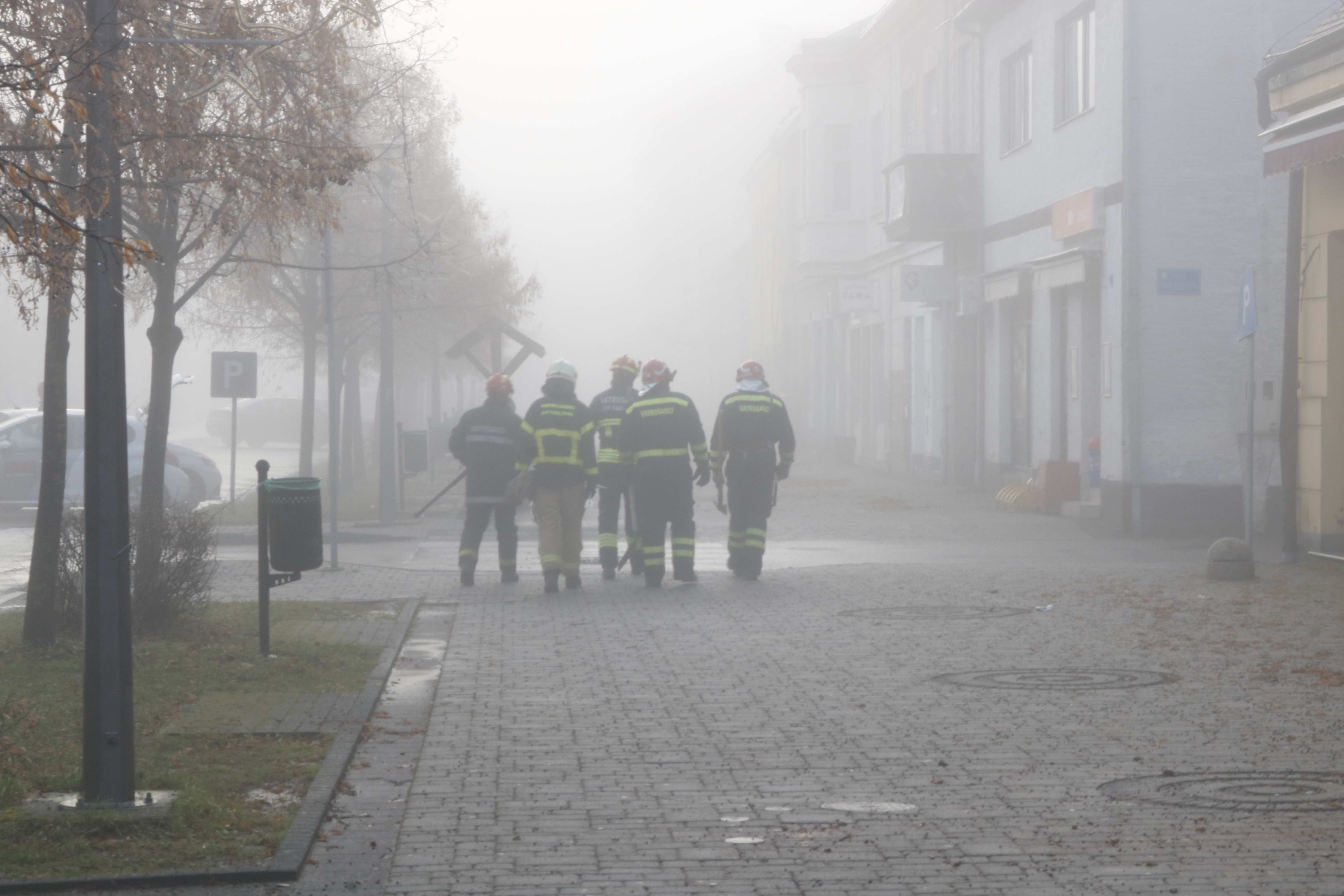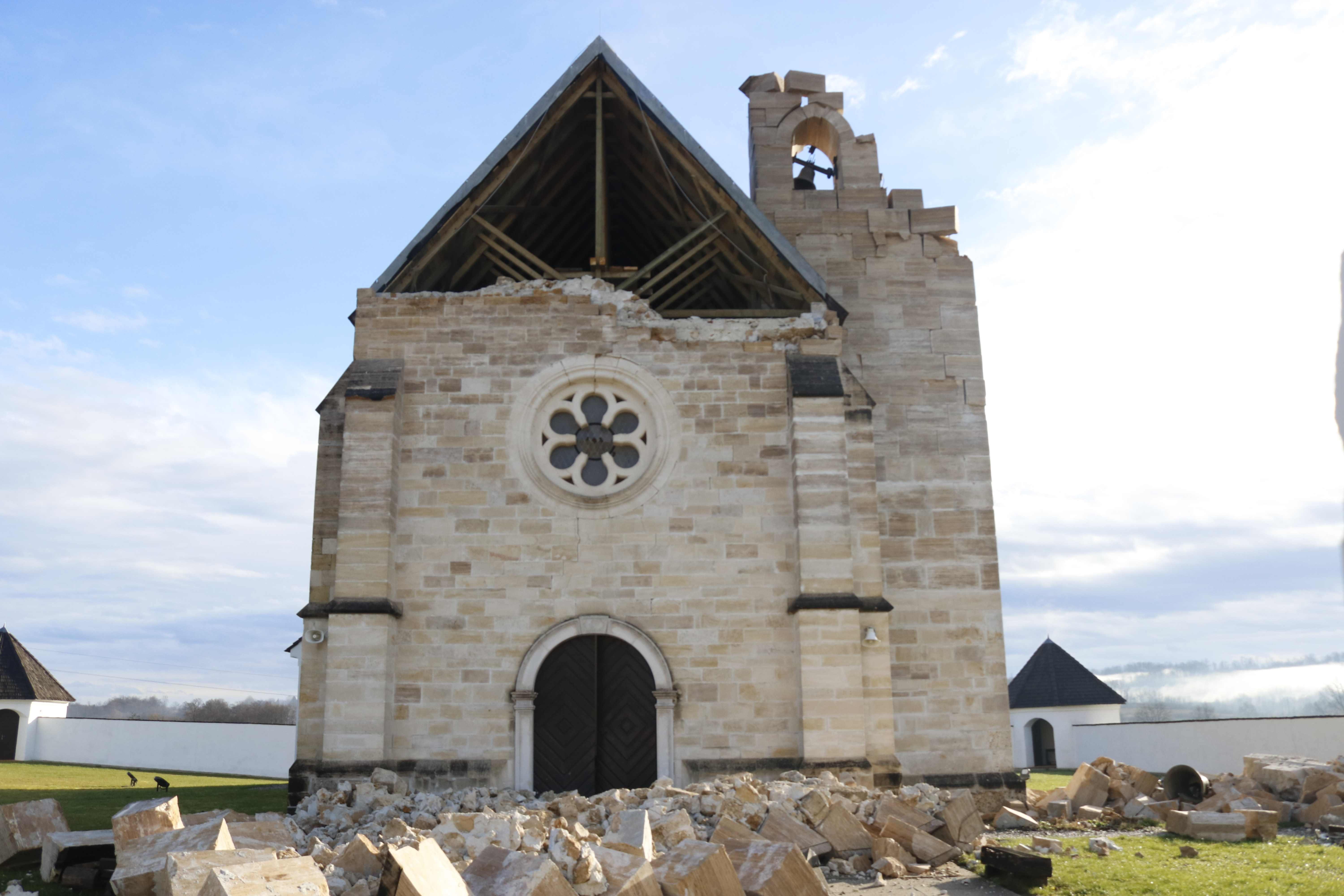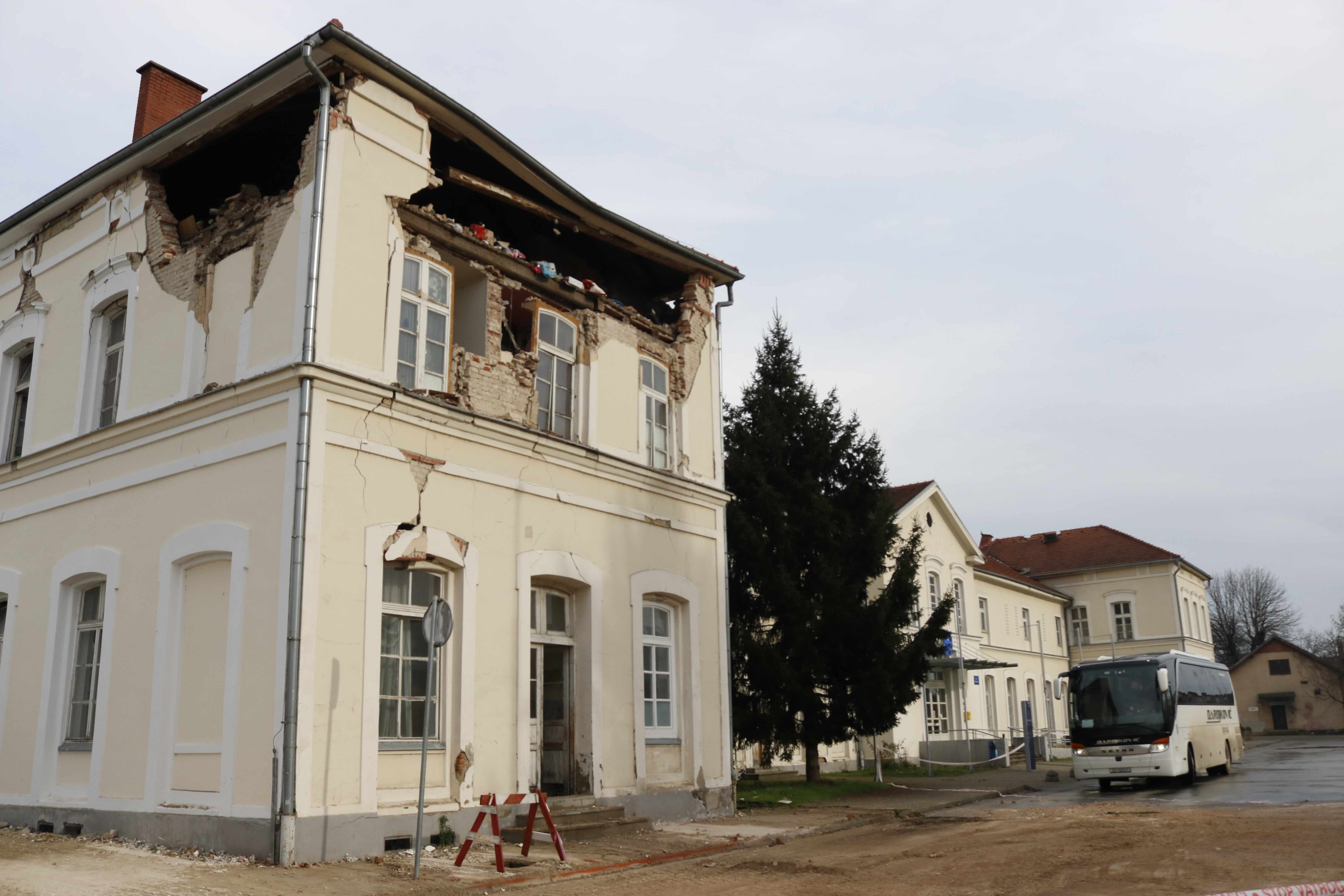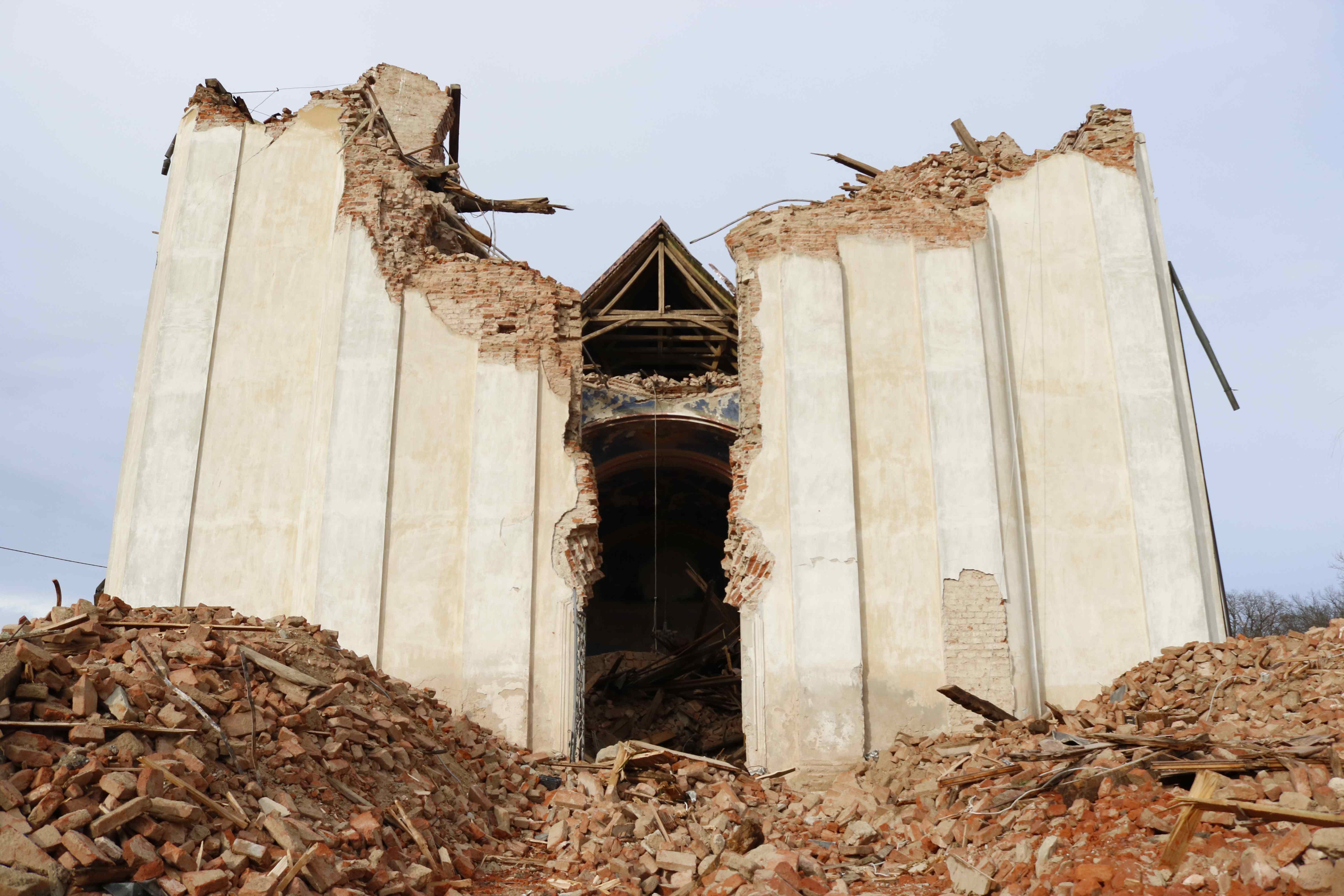VIDEO: First 20 Mobile Homes Arrived in Glina Thursday Morning
December 31, 2020 - So far, more than 80 mobile homes have been secured for families affected by the earthquake in Sisak-Moslavina County, and the first 20 mobile homes arrived in Glina early Thursday morning.
Index.hr reports that the coordinated action of the Ministry of Tourism and Sports, the Croatian Tourism Association, and the Croatian Camping Association has so far provided more than 80 mobile homes for families affected by the earthquake in Sisak-Moslavina County, the Ministry of Tourism and Sports reported yesterday.
Mobile homes consist of two rooms (for four people), and have equipped kitchens with tables and toilets, and showers.
U Glinu stižu prve kućice koje šalje Ministarstvo turizma. pic.twitter.com/ik6tvW4inY
— TV N1 Zagreb (@N1infoZG) December 31, 2020
Many companies donated the mobile homes
The following companies donated mobile homes: Plava Laguna from Umag, Jadranka camps Lošinj, Arena Hospitality Group from Pula, Maistra from Rovinj, Valamar, Camp Monperin from Bale, Turisthotel from Zadar, Adria from Slovenia, Laguna Novigrad, Karisma Hotels Adriatic, hotels Živogošće, the company Crippa from Višnjan, the company CR Abitare from Labin, Nord mobil from Samobor and the company Solaris from Šibenik.
Many private renters and hoteliers from all over Croatia have offered help in accommodating earthquake victims in Petrinja, Sisak, Glina, and the surrounding area, Minister of Tourism and Sports Nikolina Brnjaca said on Wednesday after the 33rd session of the Croatian government, adding that she talked to hoteliers about donating mobile homes and how they are in constant contact with all relevant services, headquarters and others in the Ministry.
"Already yesterday in Zagreb, we organized accommodation for the neediest, many hotels got involved, and we are in cooperation with the Croatian Tourism Association (HUT). We are aware that there are people in the affected area who have livestock and cannot leave their homes, and that is why we have organized that today 12 mobile homes have left Istria for Sisak-Moslavina County. About 24 more and maybe more of them will go from our camps there," Minister Brnjac emphasized after the Government session.
She added that the Croatian Army helps organize the transport, and the goal is to get to the destination as soon as possible, where it is most needed.
Follow our live updates on the situation in the earthquake-hit areas of Croatia here; find out how you can donate here.
Several Earthquakes in Petrinja Overnight, Strongest Magnitude 3.8
December 31, 2020 - Not even last night could pass peacefully in the wider Petrinja area. From 1 am, at least four earthquakes in Petrinja were recorded.
Index.hr reports that the strongest was at 4:36 am with a magnitude 3.8 on the Richter scale, then at 5:30, 3.1 on the Richter scale, and 6.25 also 3.1 on the Richter scale. These figures have yet to be validated by the Croatian Seismological Service.
Unlike Wednesday morning, these are slightly weaker earthquakes. Recall that on Wednesday morning, Croatia was shaken by an earthquake of 4.8 on the Richter scale.
A similar situation is expected in the coming days, and even weeks, seismologists warn.
On Wednesday afternoon, it was announced that 66 earthquakes were felt in central Croatia in the last 58 hours.
Part of the residents in the earthquake-stricken area also spent their second night outside.
"Occasionally we start the cars up, my son and grandson and a neighbor who is alone are with me. We stayed and waited for the containers. The house was demolished. We hope for the help of good people.
One took off his own fur coat and gave it to my grandson, the man was from Samobor, everyone jumped in told help," one woman told HRT this morning almost in tears.
Croatia was rocked by a strong earthquake on Tuesday afternoon. At 12.19 pm, seismologists recorded a devastating earthquake with an epicenter five kilometers southwest of Petrinja at a depth of 11.5 kilometers. The Richter magnitude of the earthquake was 6.2.
Many weaker earthquakes followed, and all earthquakes had an epicenter near Petrinja and its surroundings.
From 12.23 to 12.58 on Tuesday, the largest number of subsequent earthquakes occurred, as many as 10 - with Richter magnitudes greater than 3.
At least seven people were killed. That is a number that has been confirmed, and it is not excluded that more victims will be discovered later.
Among the dead are a 12-year-old girl in Petrinja, a 20-year-old boy from one house, a grandfather from another, and a father and son from the same house in Majske Poljane near Glina, Glina Deputy Mayor Branka Bakšić Mitić confirmed. It was later confirmed that another male had died in Majske Poljane.
After a seven-hour search, the body of a man killed under the ruins of a church in Žažina was found.
At least six people were seriously injured, and 20 were slightly injured, the Ministry of the Interior announced.
You can read our live updates on the Petrinja earthquake from Tuesday, December 30, 2020, HERE.
PHOTOS: Majske Poljane, Glina and Petrinja One Day After The Earthquake
December 31, 2020 – Total Croatia News visited Majske Poljane, Glina and Petrinja one day after the earthquake. It is difficult to find words to describe the devastation we saw. Perhaps pictures tell the story better
Majske Poljane

Majske Poljane is a rural community. Such was the devastation here, it was difficult to tell which of the destroyed buildings had yesterday been used for agriculture or if they'd been homes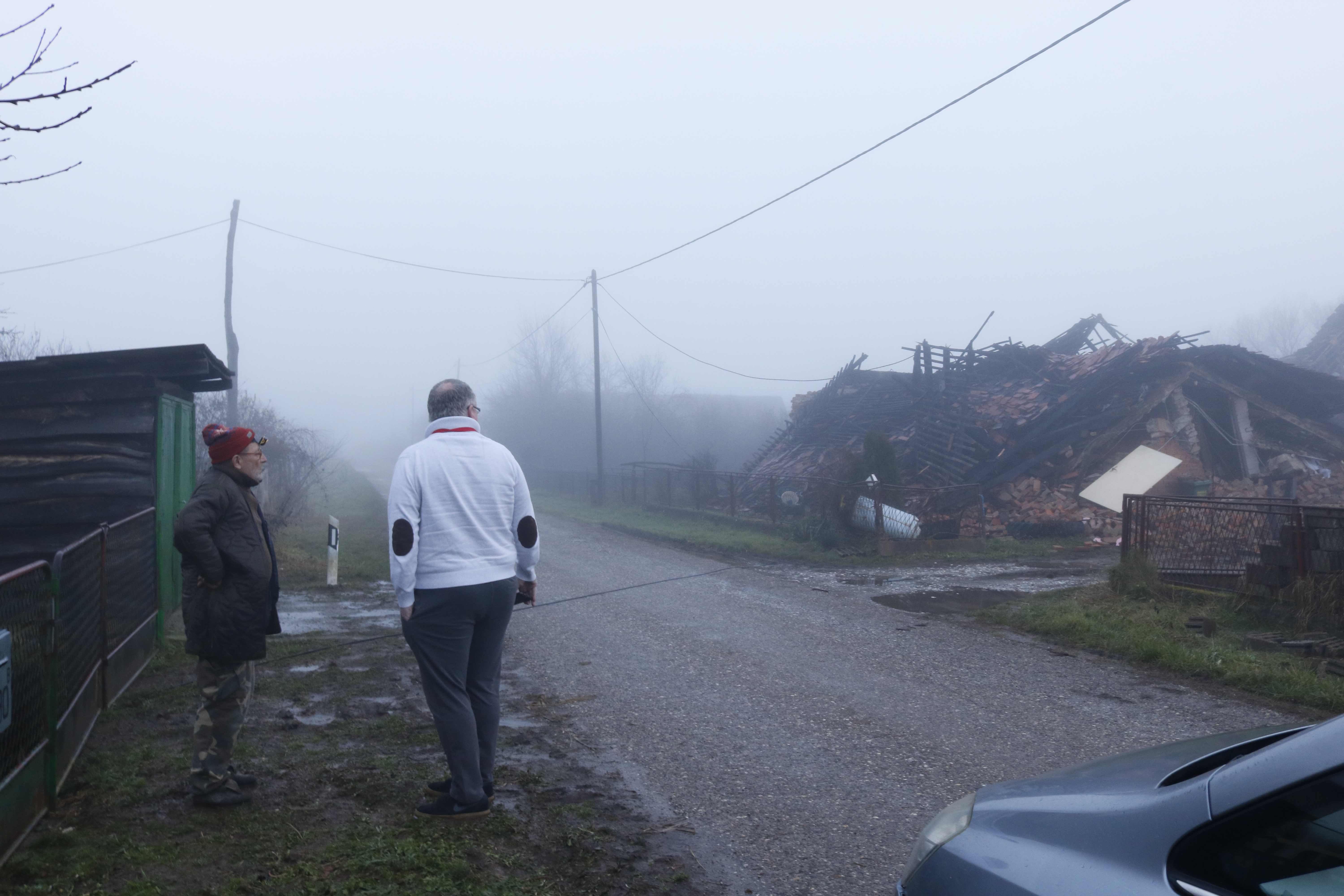
TCN's Paul Bradbury talks to Majske Poljane resident Vladimir who confirmed that, yes, the building across the lane had been a home, his neighbours had lived there just 24 hours earlier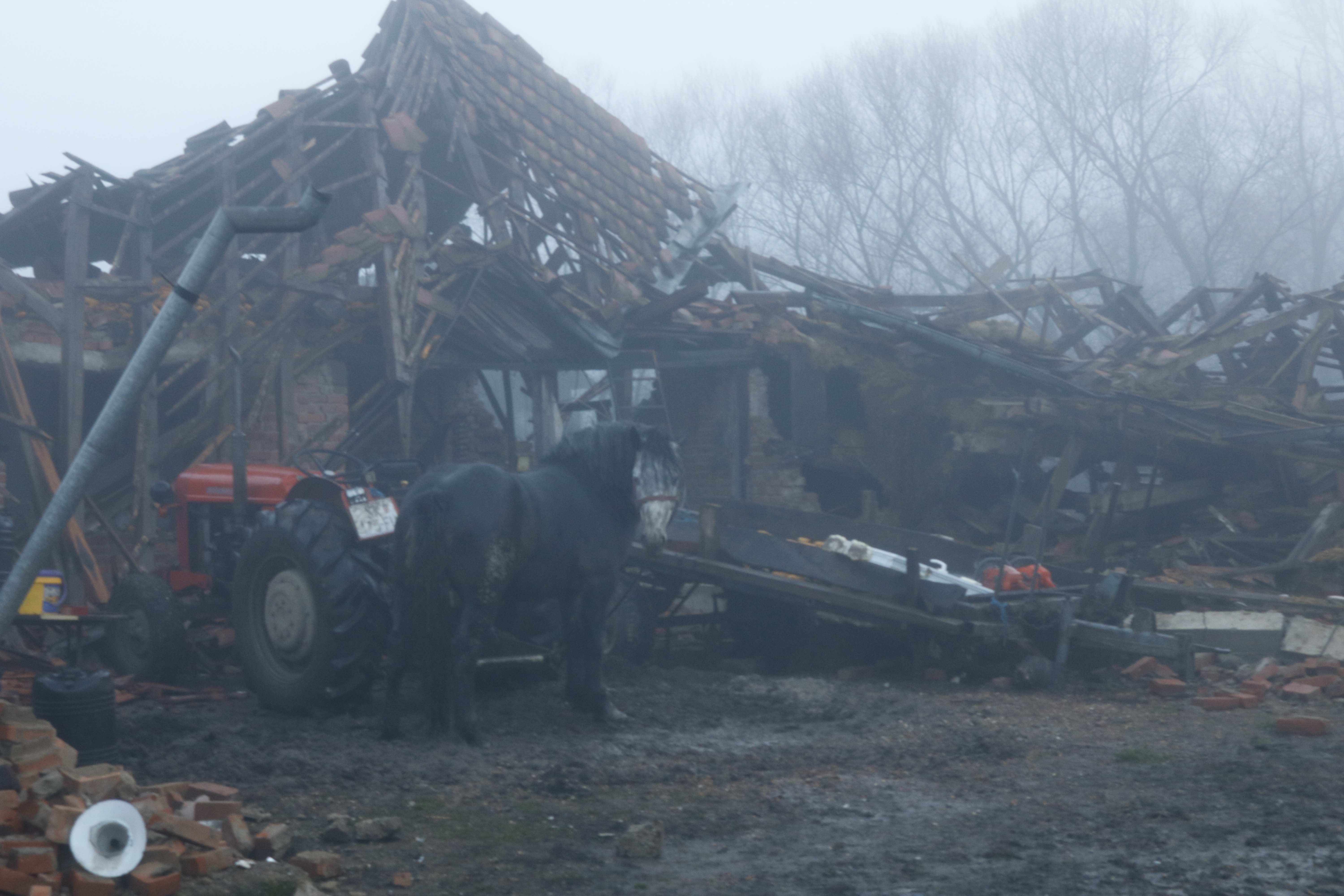
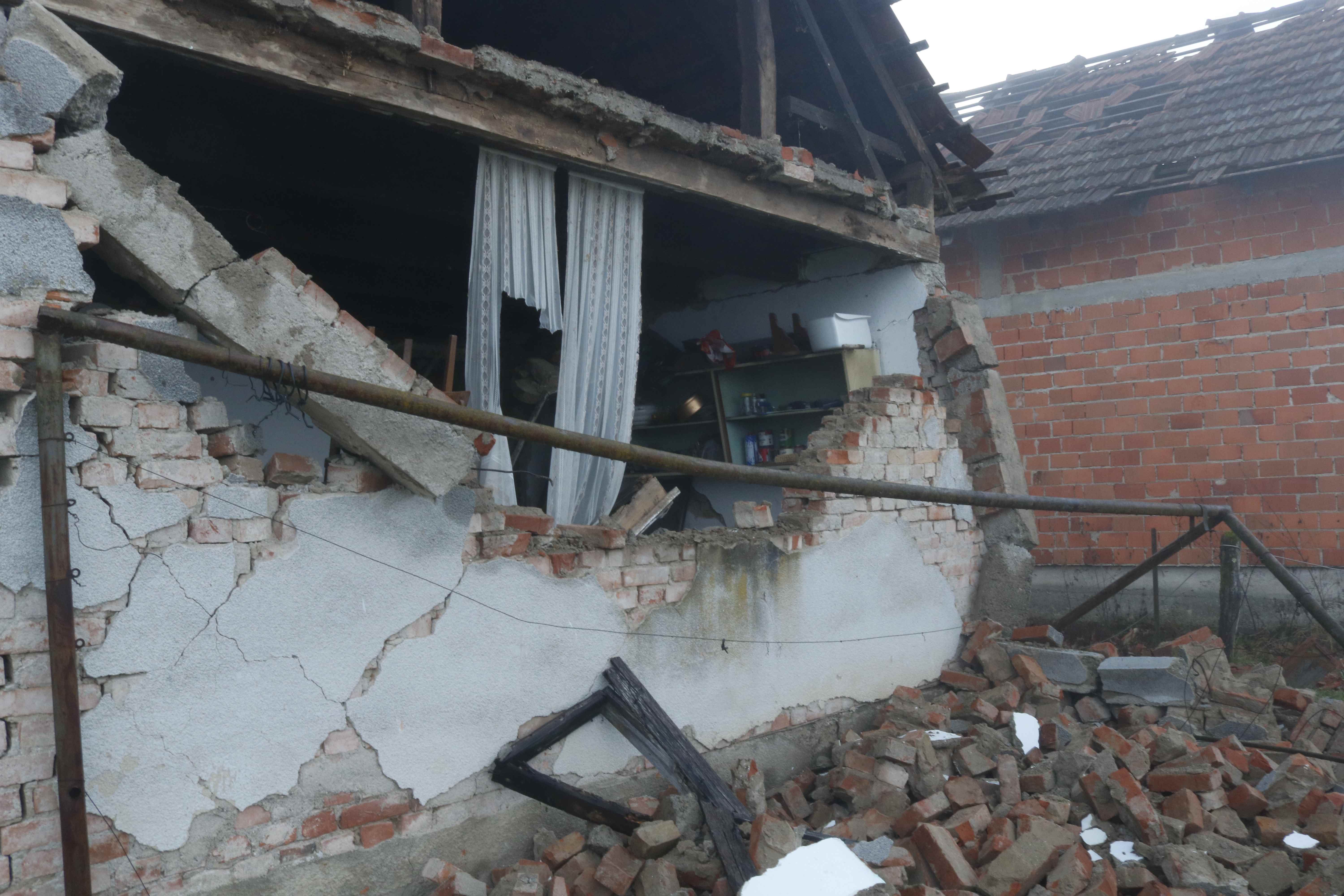
Doors of houses left ajar, windows collapsed, smashed and broken. Inside, you can see everyday lives, stopped suddenly, frozen in time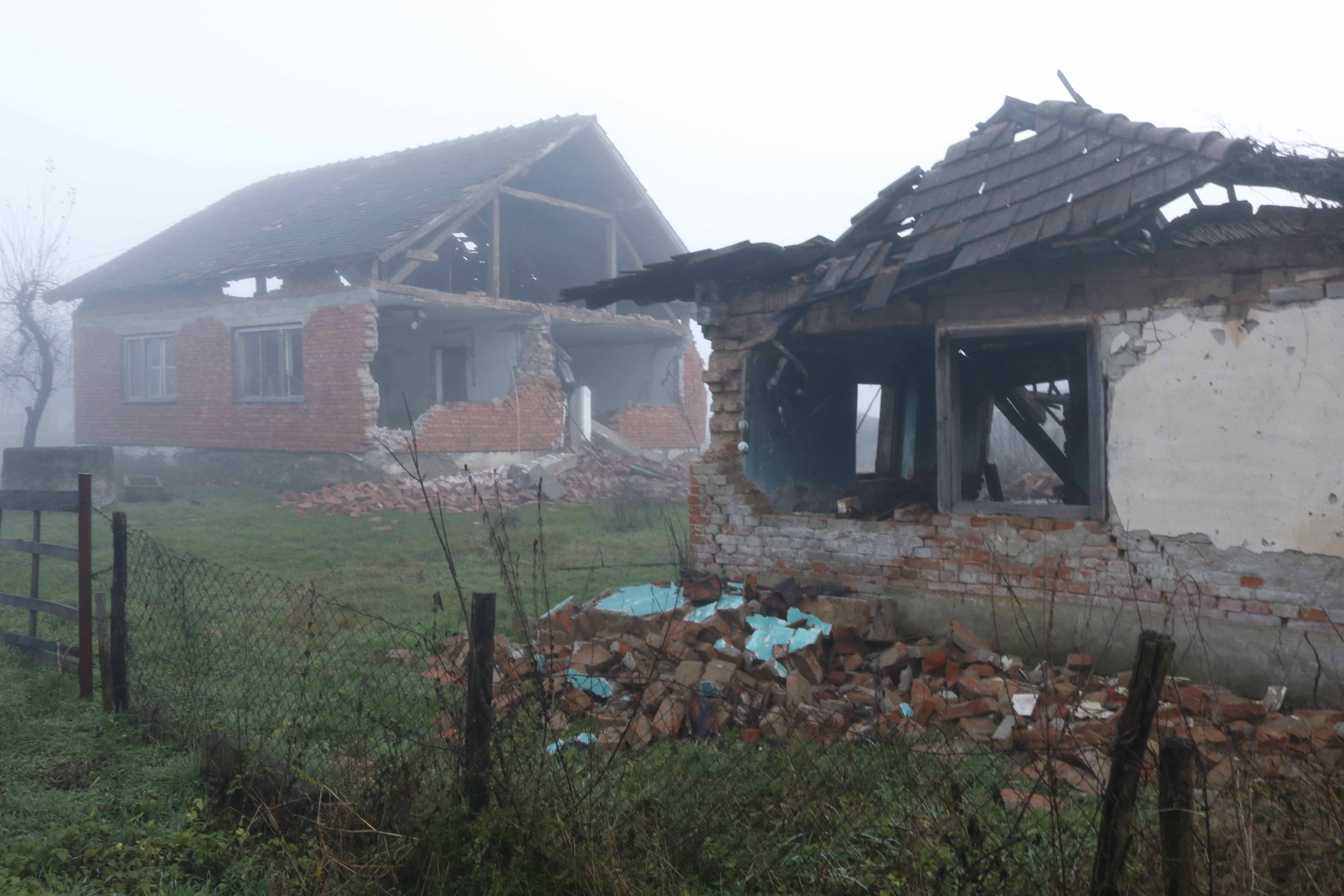
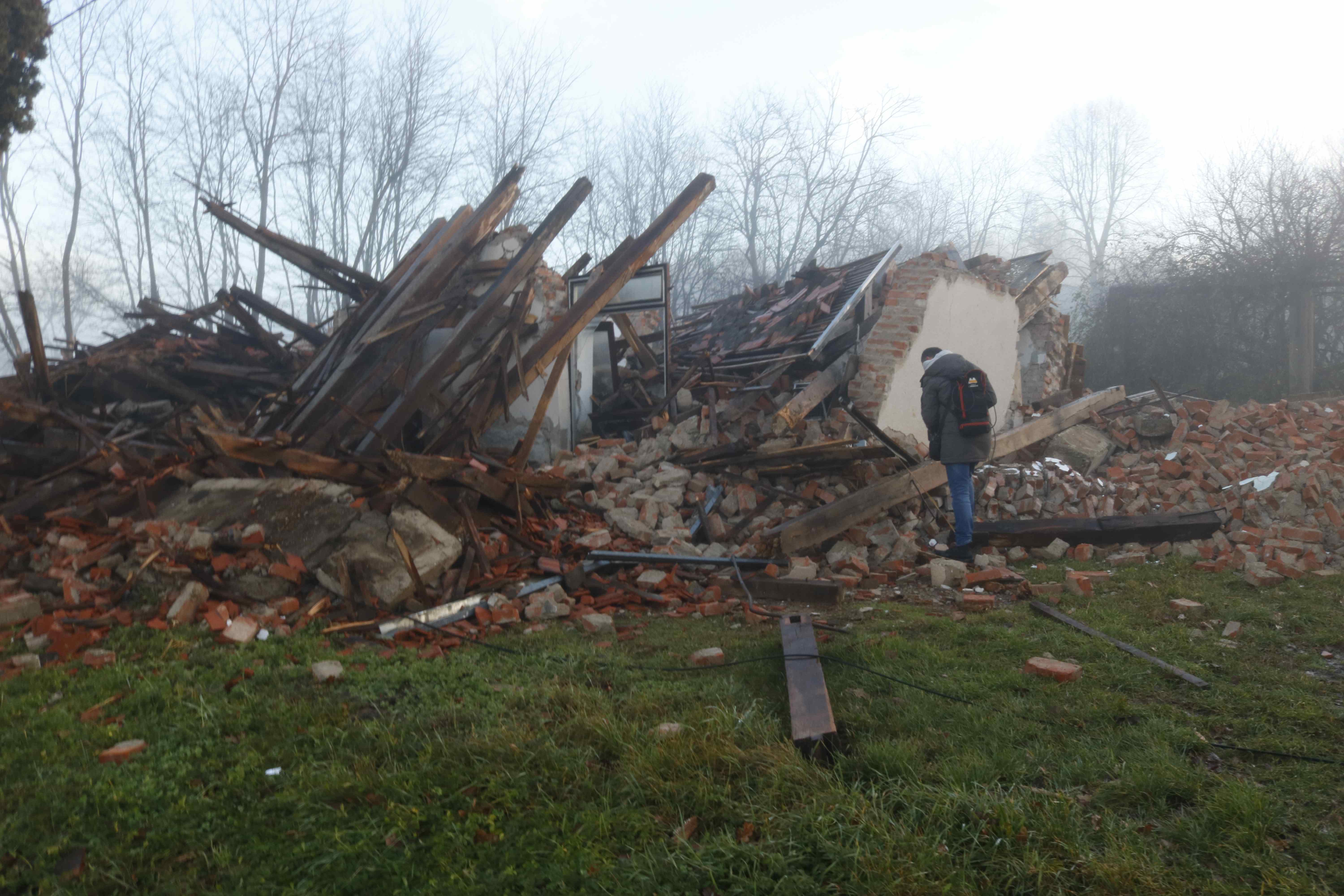
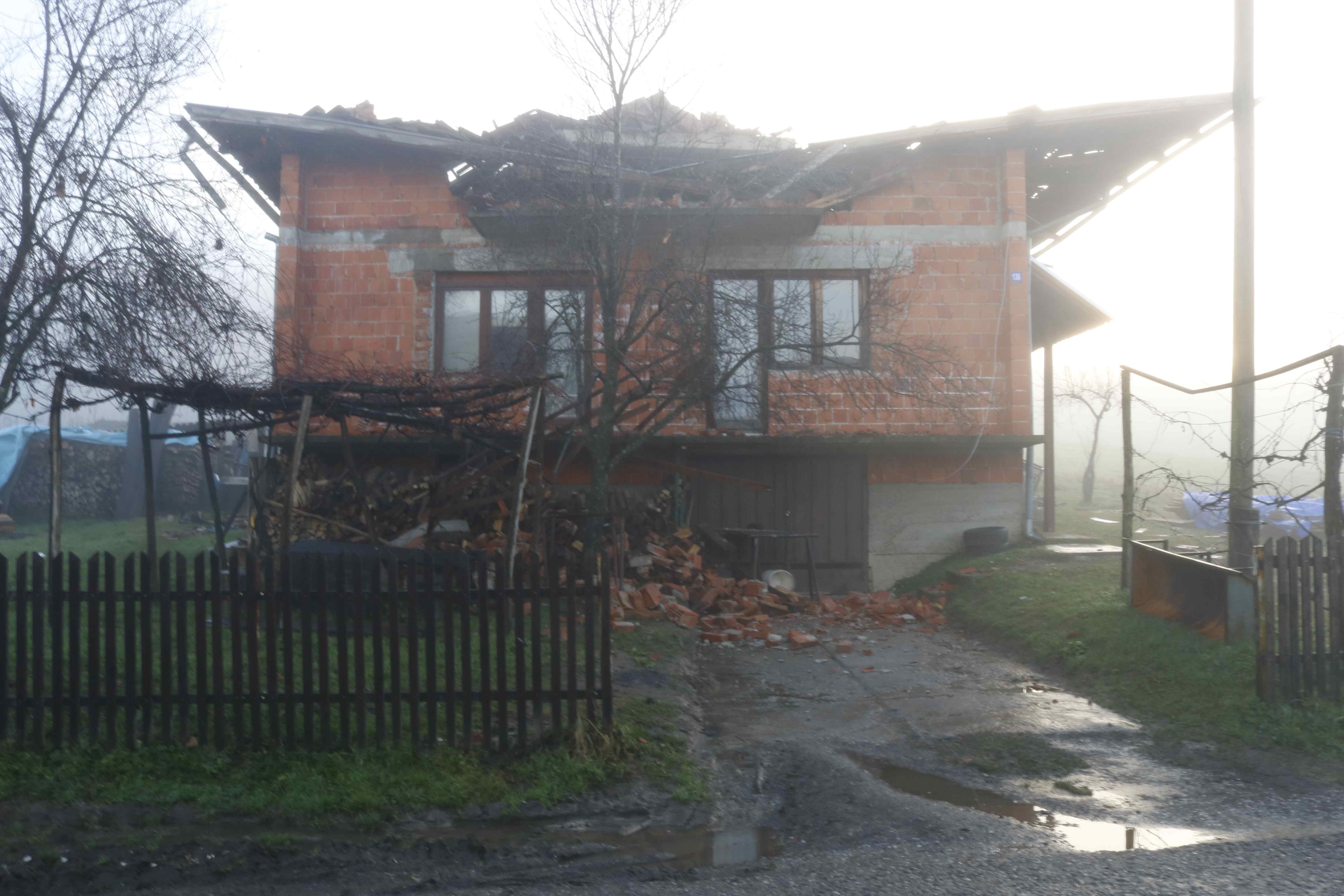
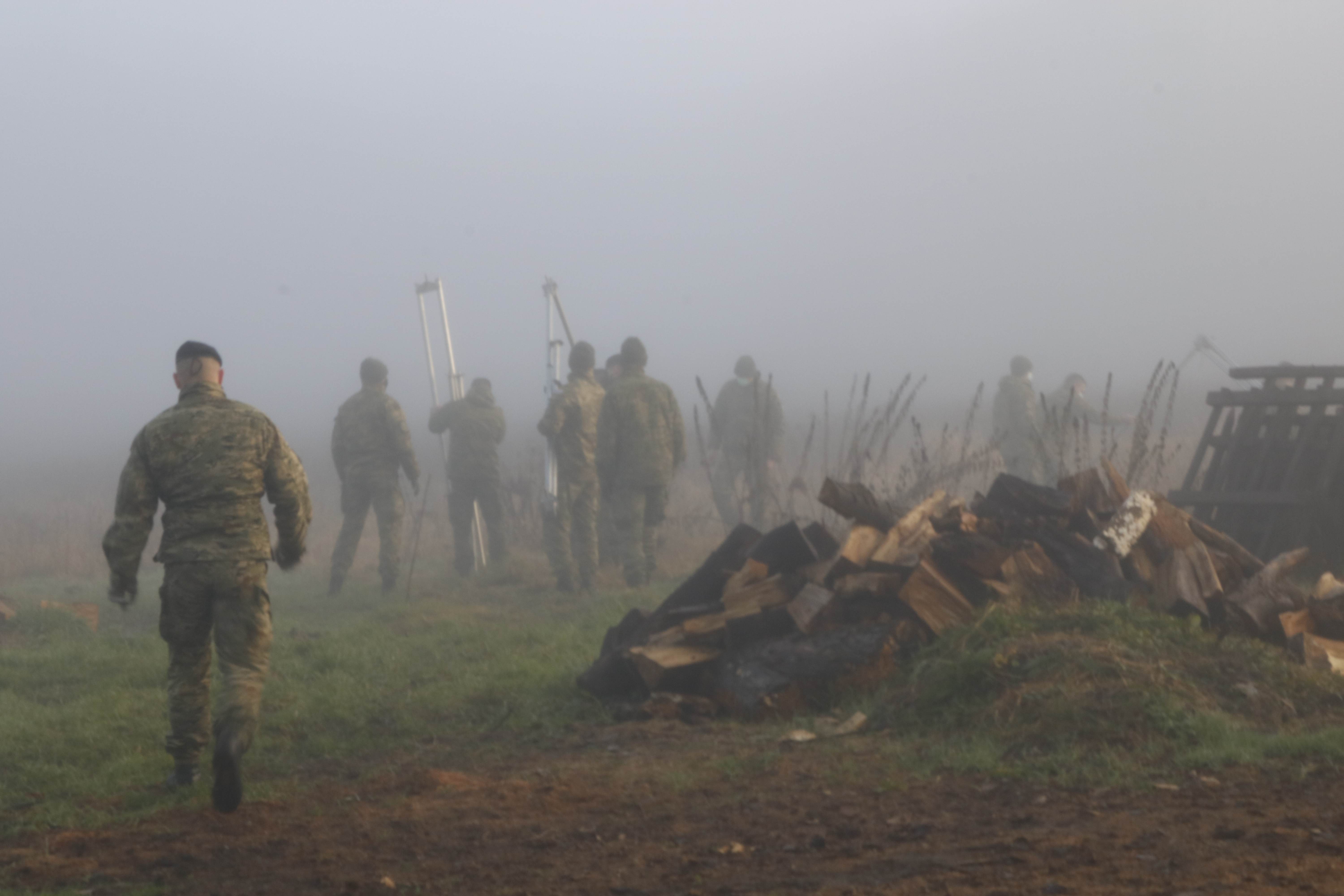
Croatian soldiers quickly constructing emergency shelters in the freezing fog of early morning. They came from all over Croatia. Unsure if their damaged houses were structurally safe, parents and children of Glina, surrounding villages and Petrinja stood in gardens and fields, keeping warm around fires. With no electricity, they cooked on barbecues.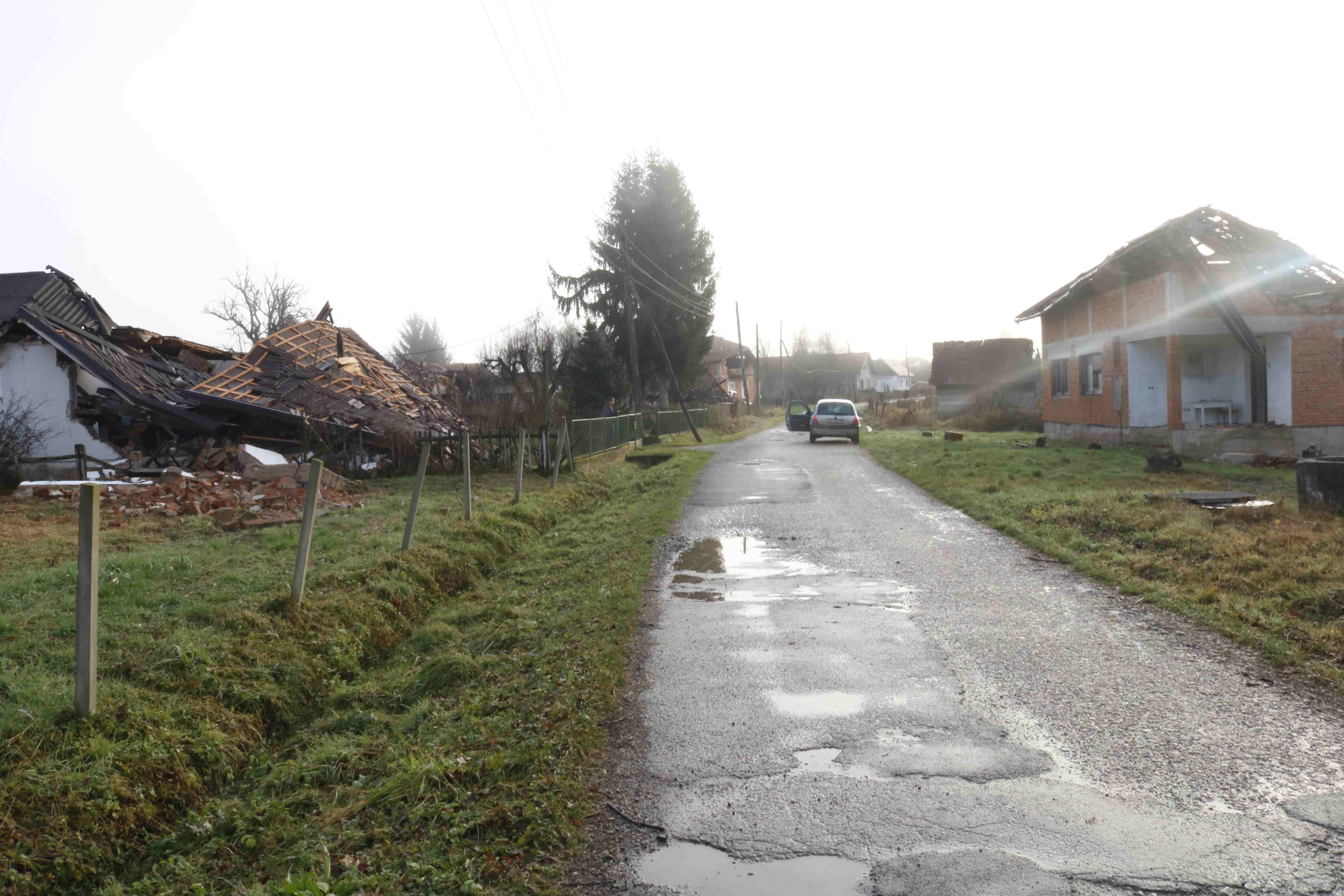
Majske Poljane seemed like the most silent place on earth. No single sound, not even bird song.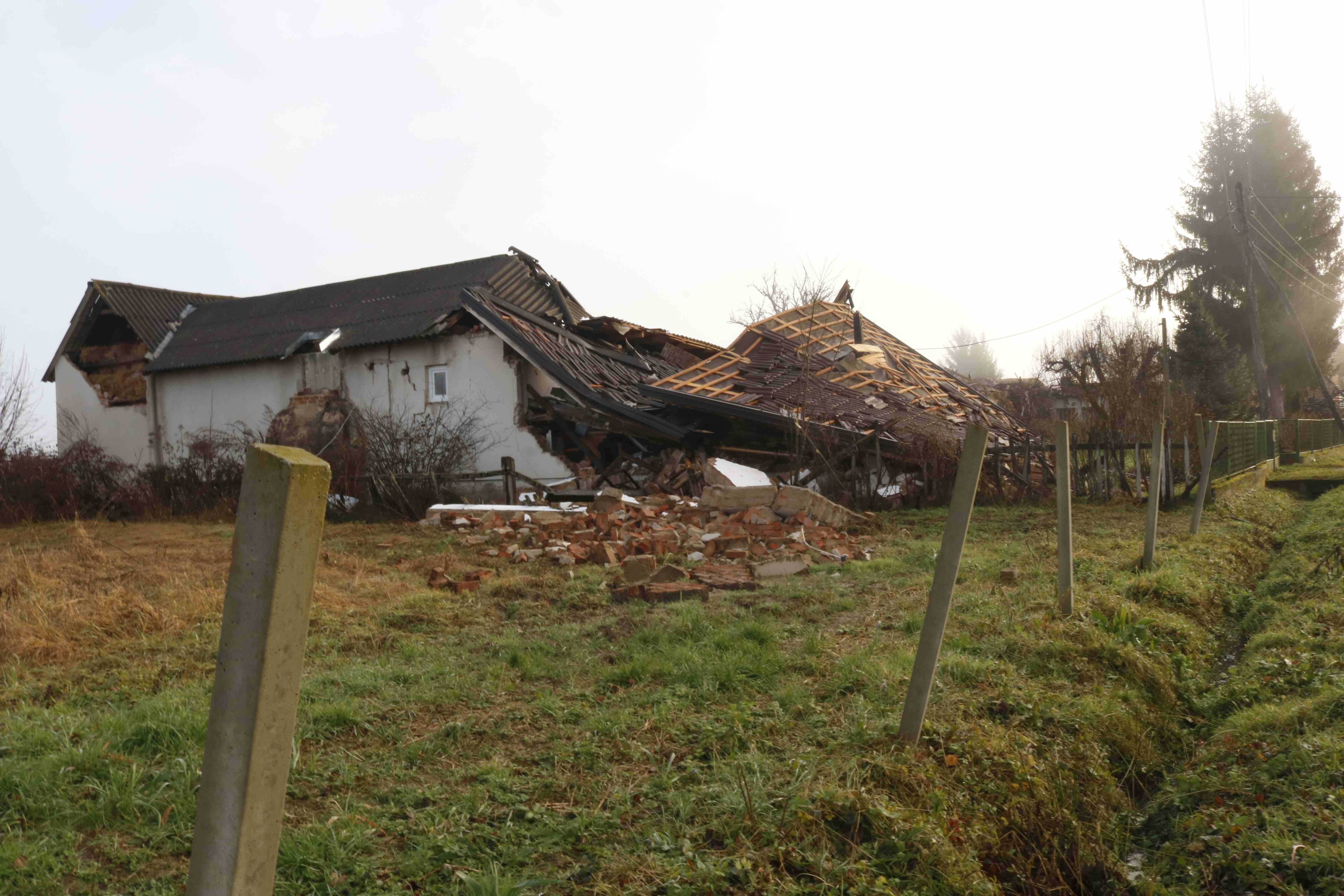
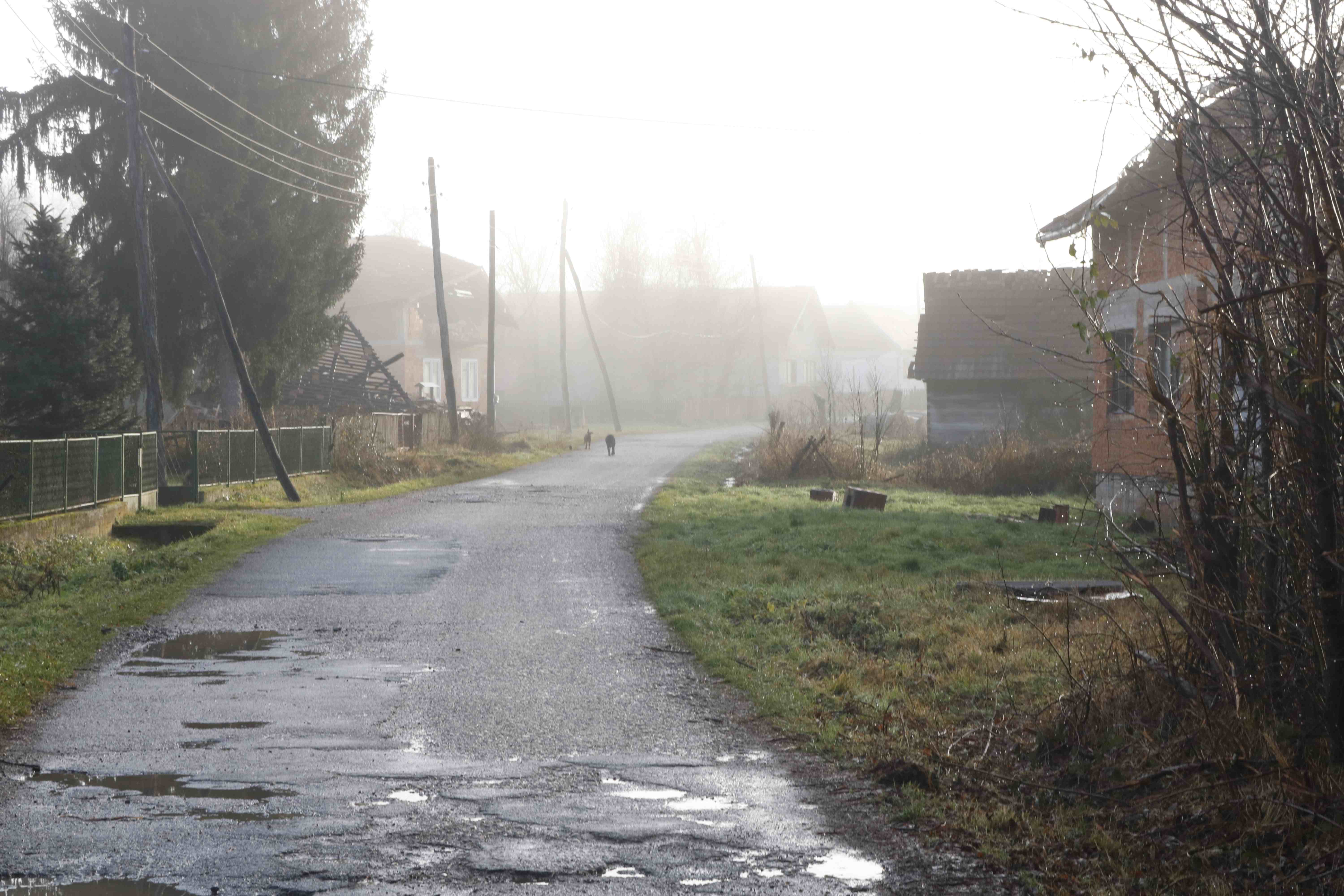
Even the three village dogs left behind padded around the wet road in silence
Glina

Croatian firefighters walk heavily through the mist-filled streets of Glina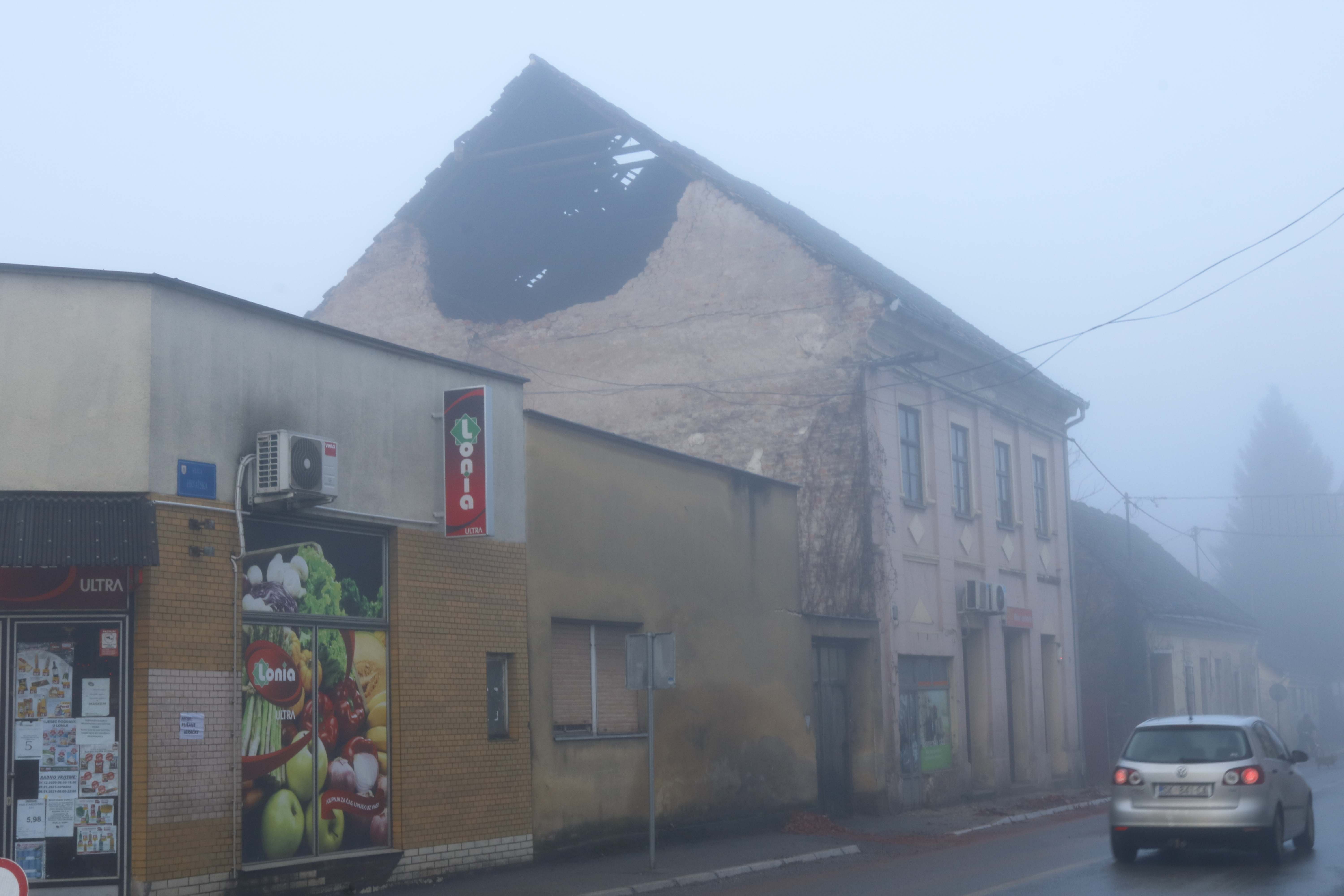
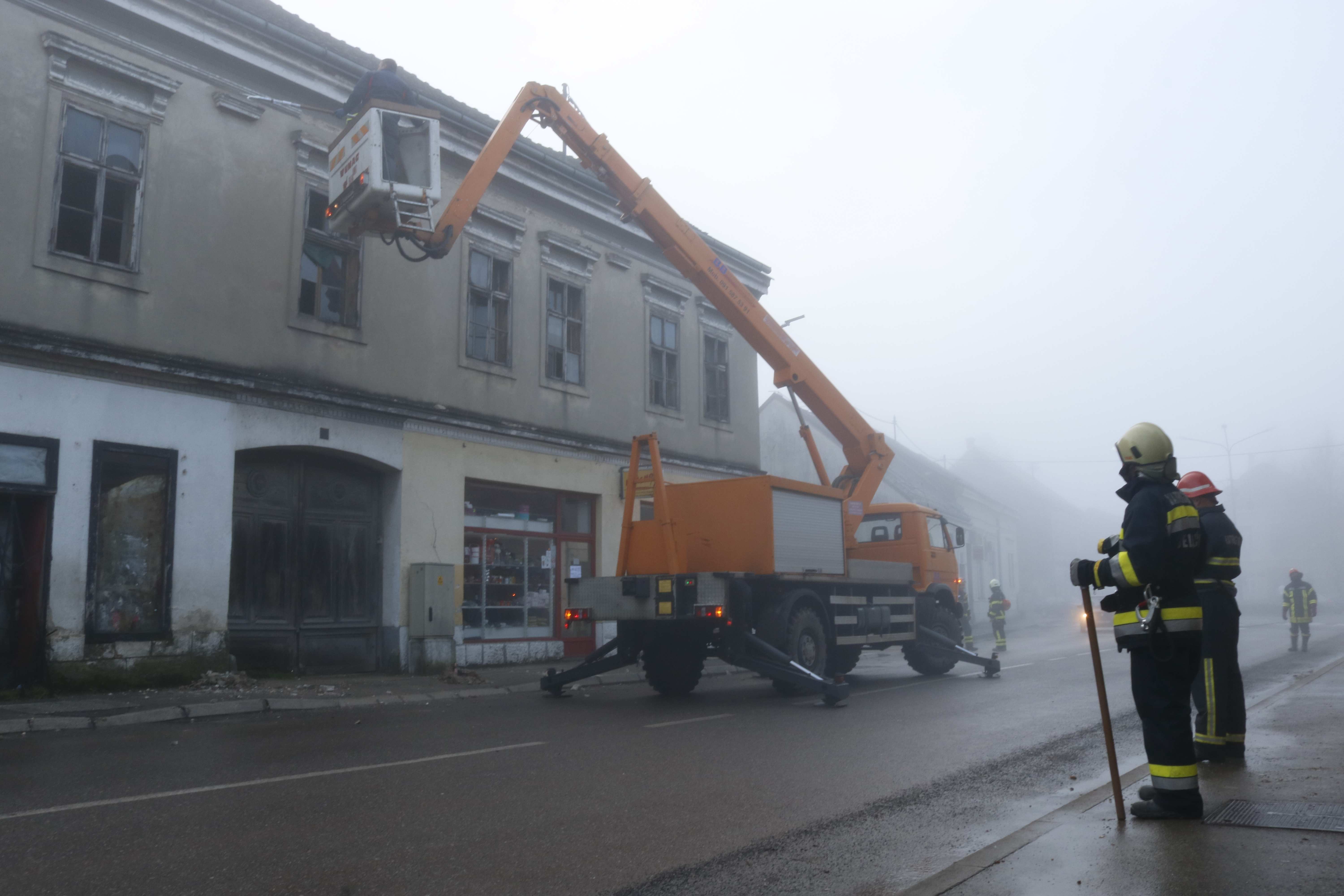
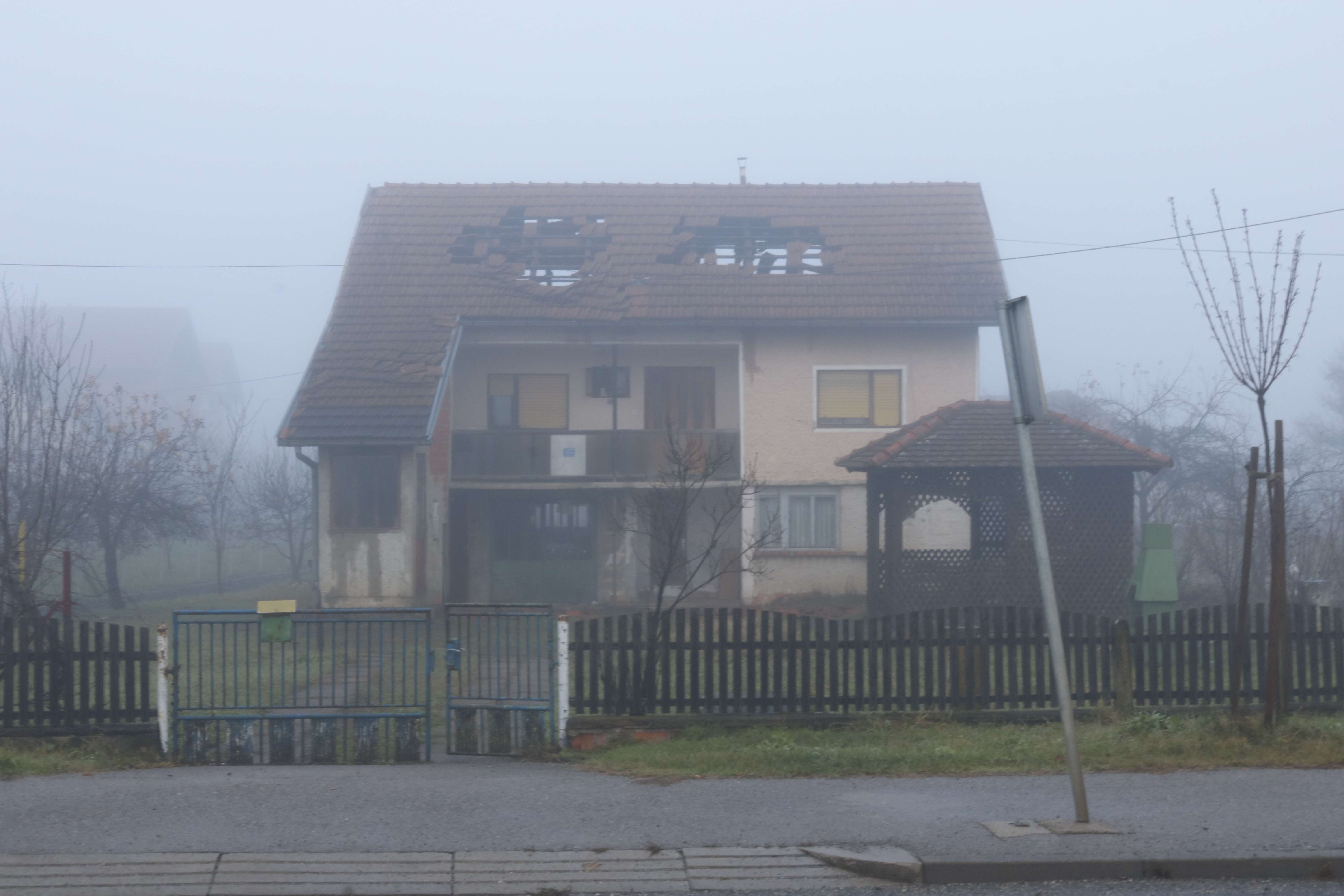
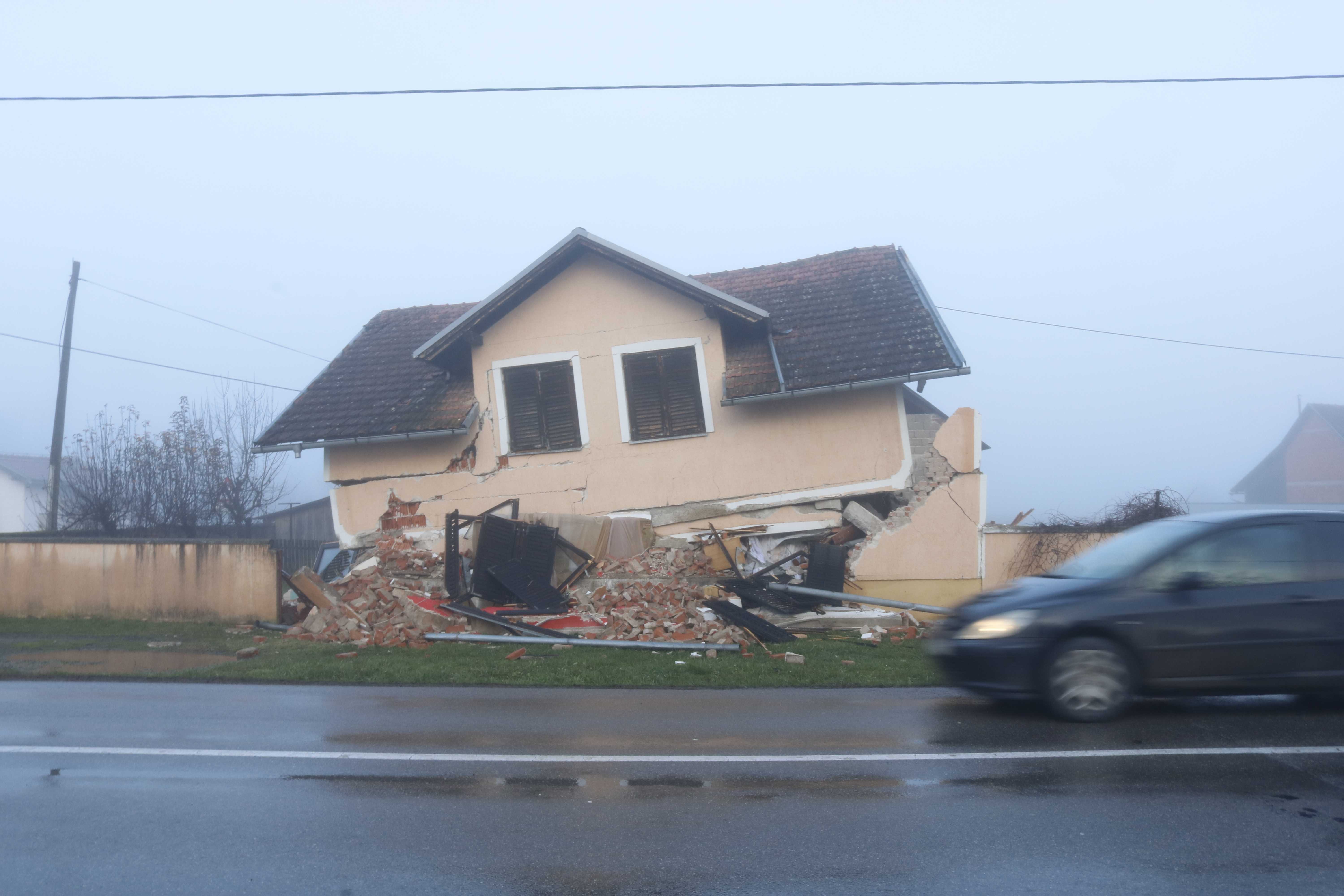
The entire upper floor of this house had collapsed, crushing completely the floor underneath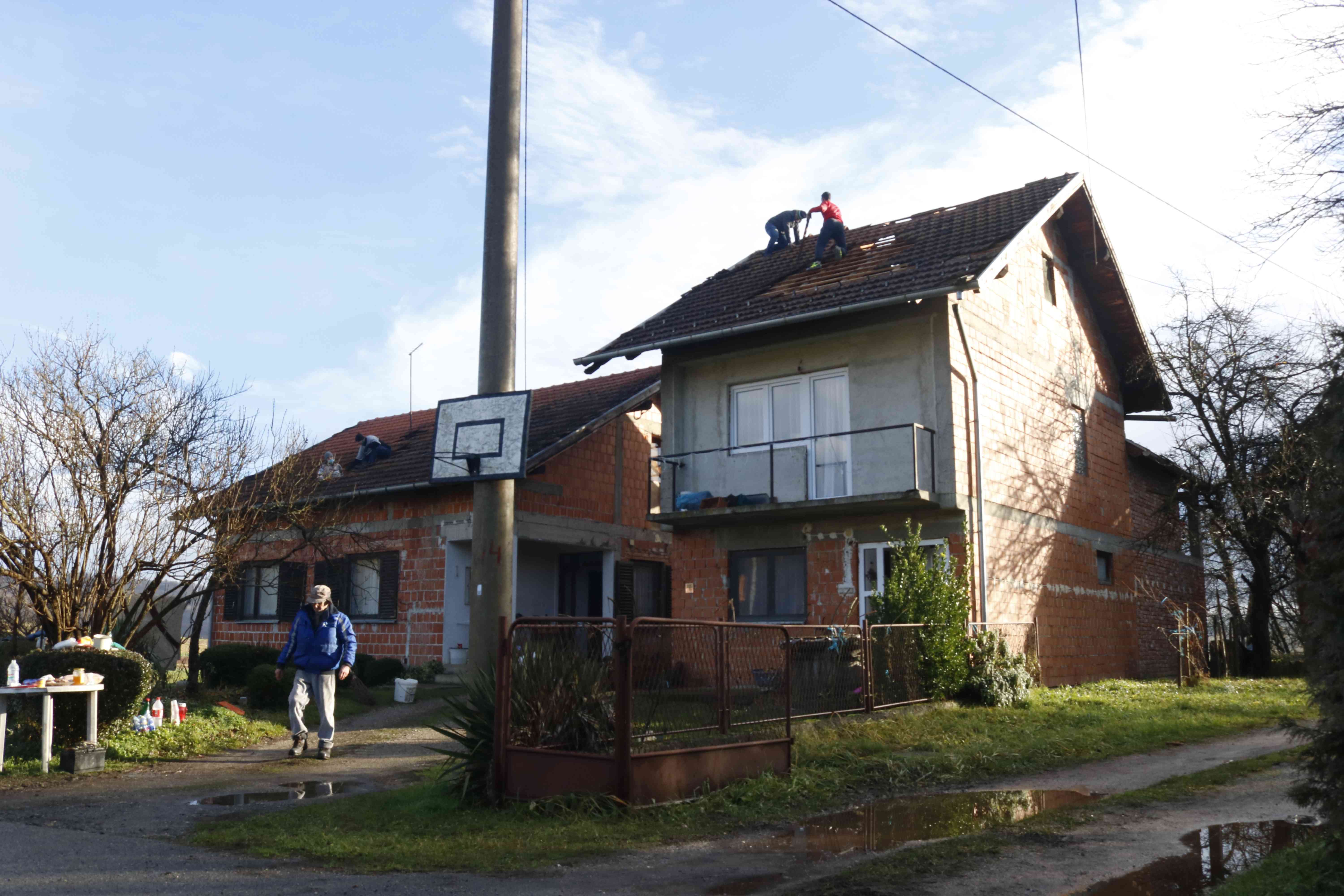
Volunteers at work on the roofs of two neighbouring houses, between Glina and Petrinja one day after the earthquake. The volunteers had come from all over Croatia
Petrinja one day after the earthquake

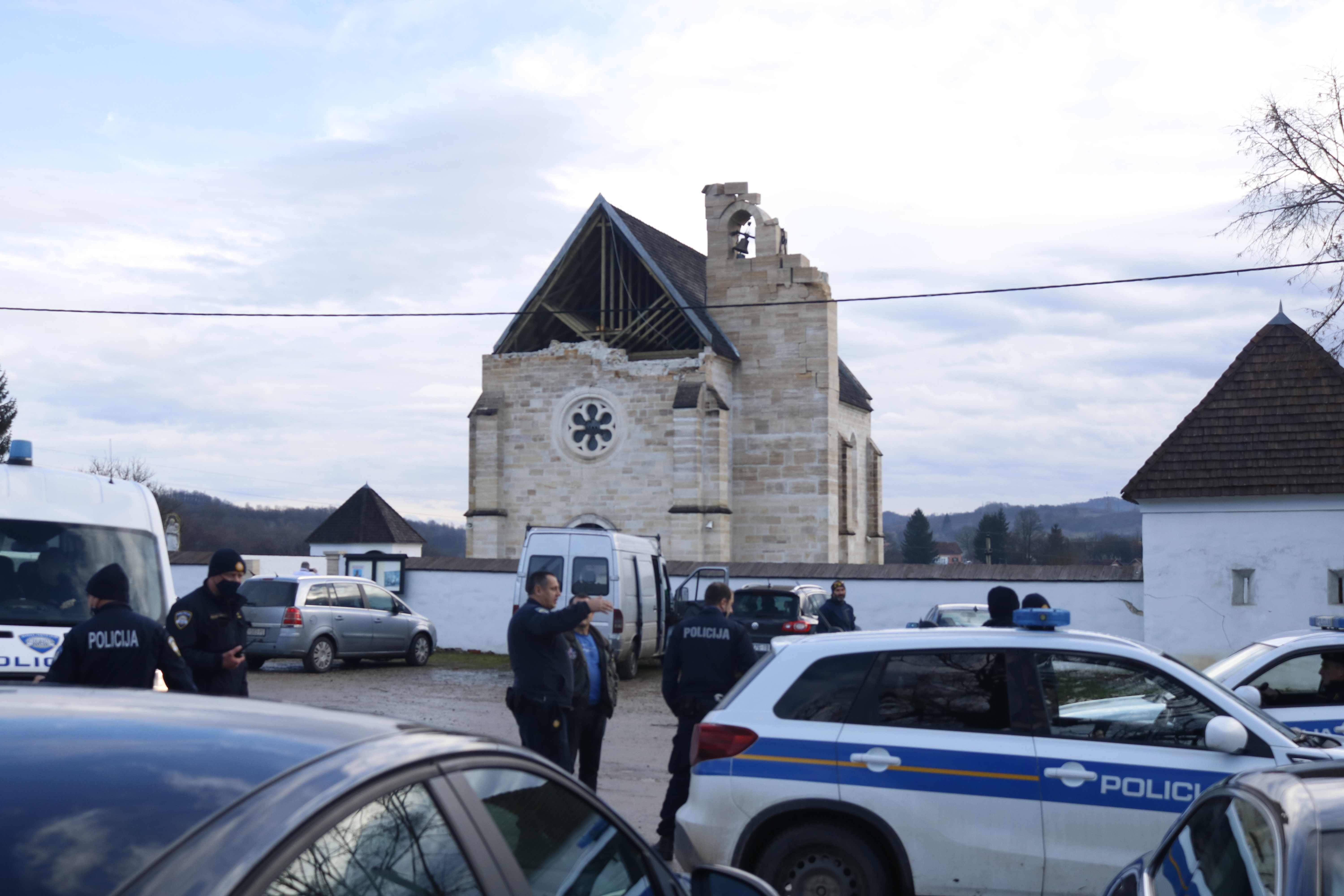
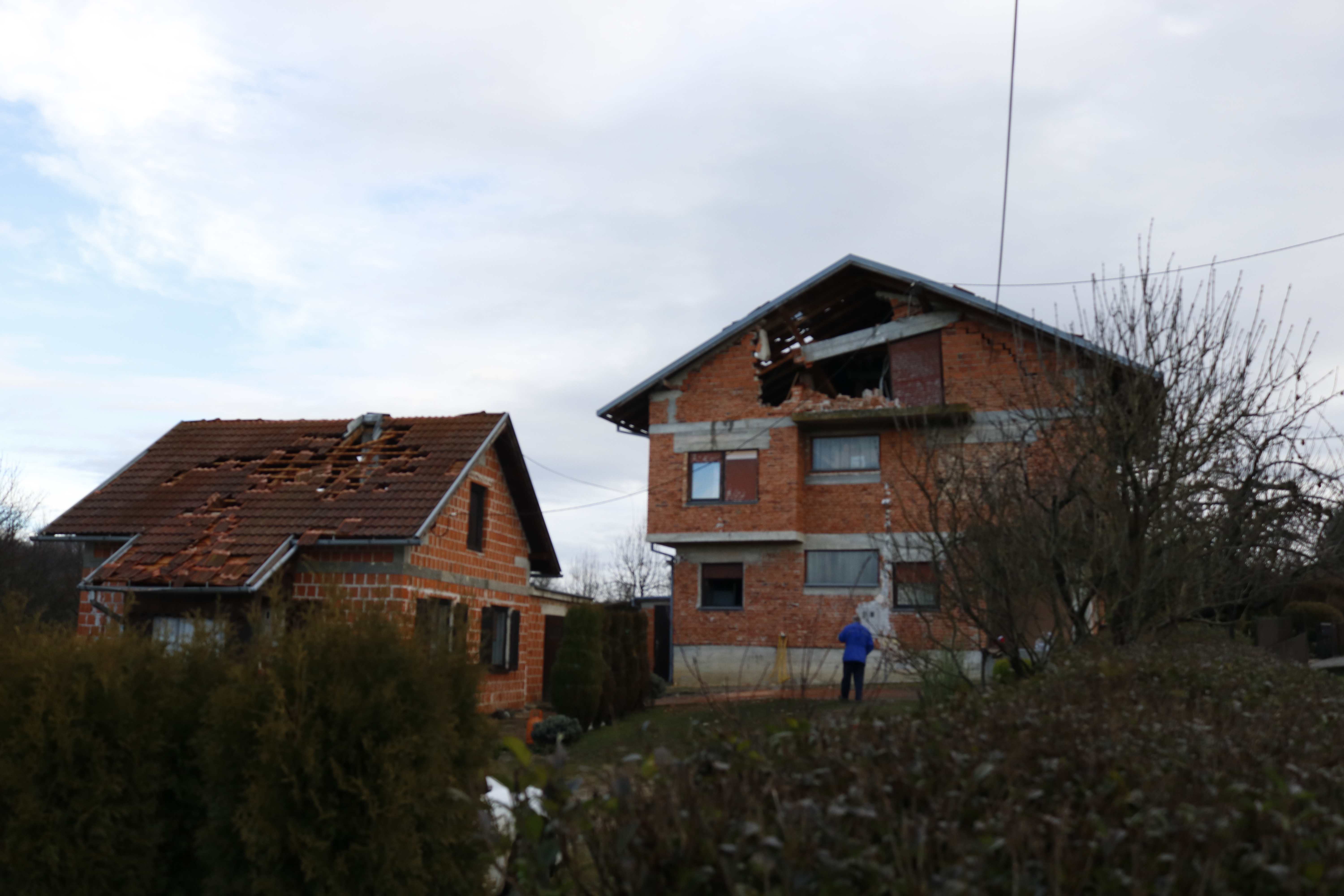
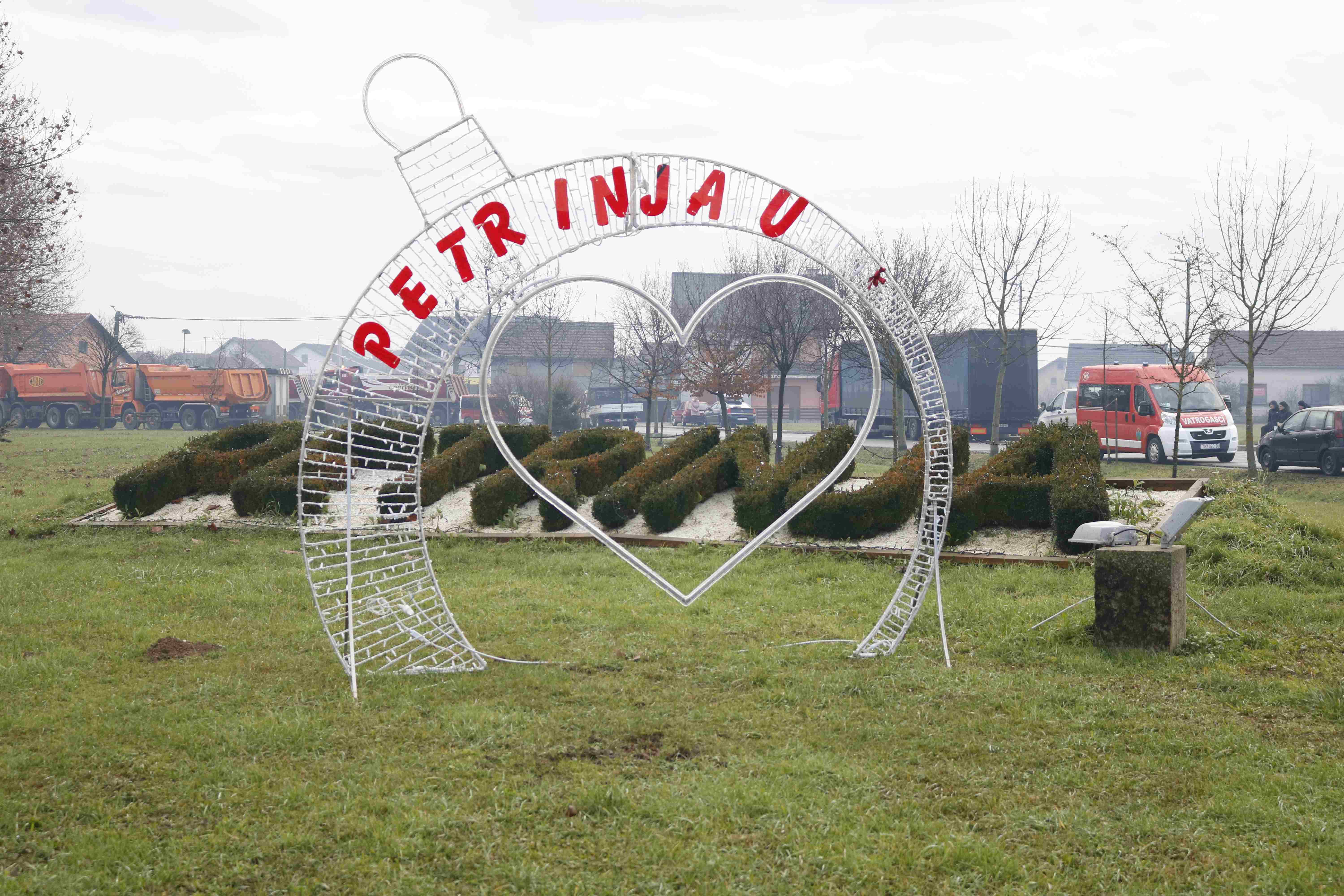
Even in the miserably wet winter weather, the greeting sign to Petrinja one day after the earthquake might still have looked cheery, if you couldn't see all the emergency vehicles in the background. 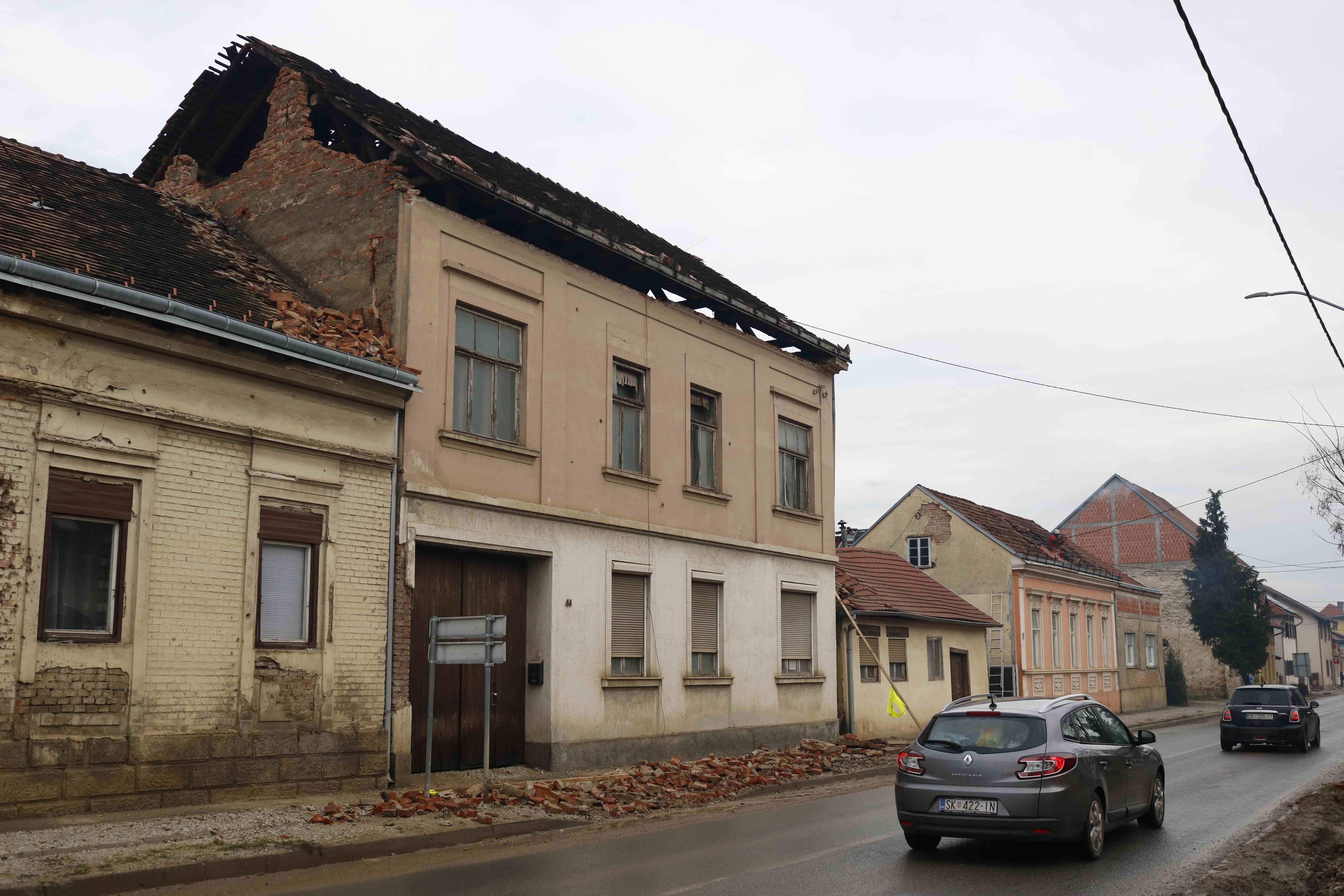
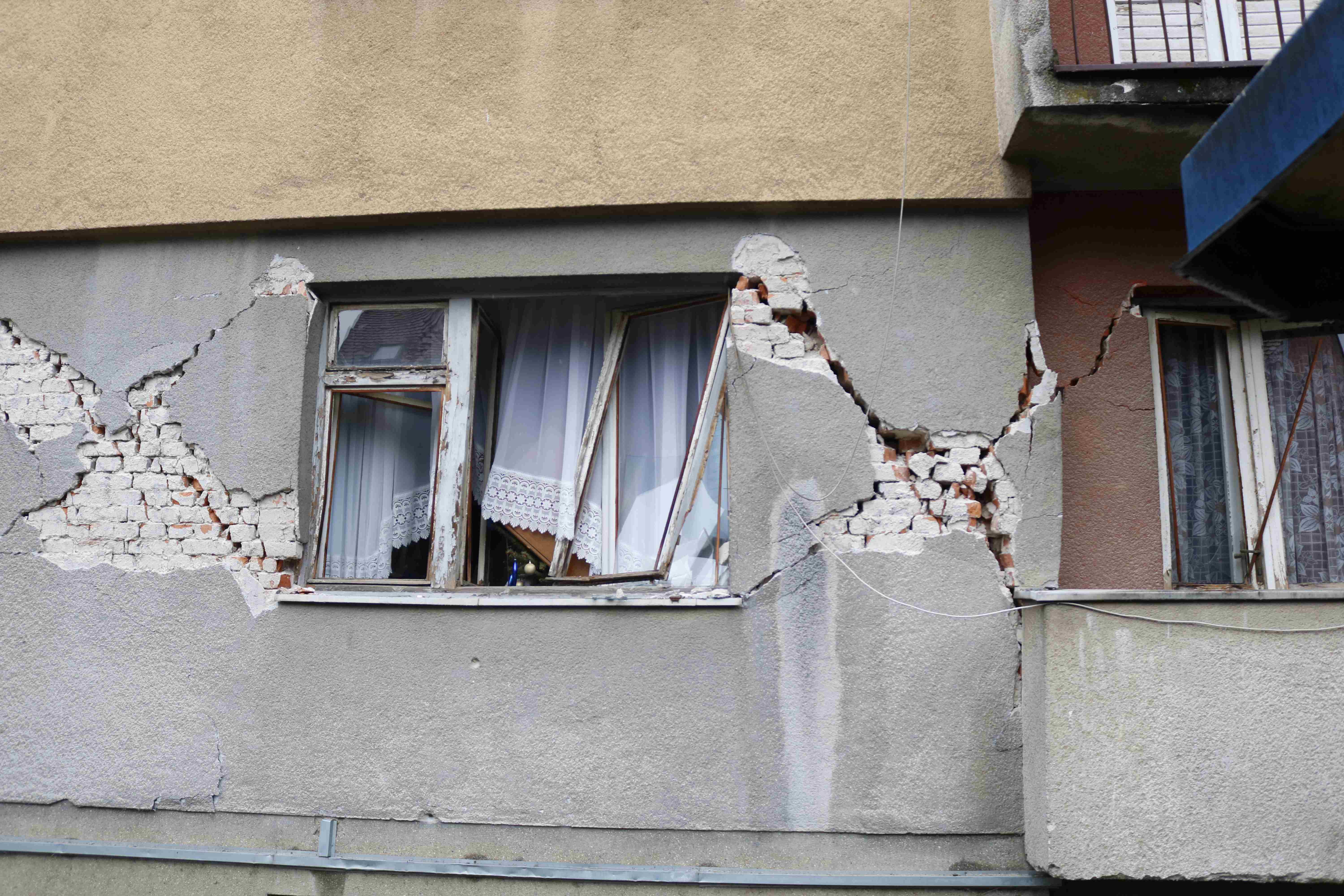
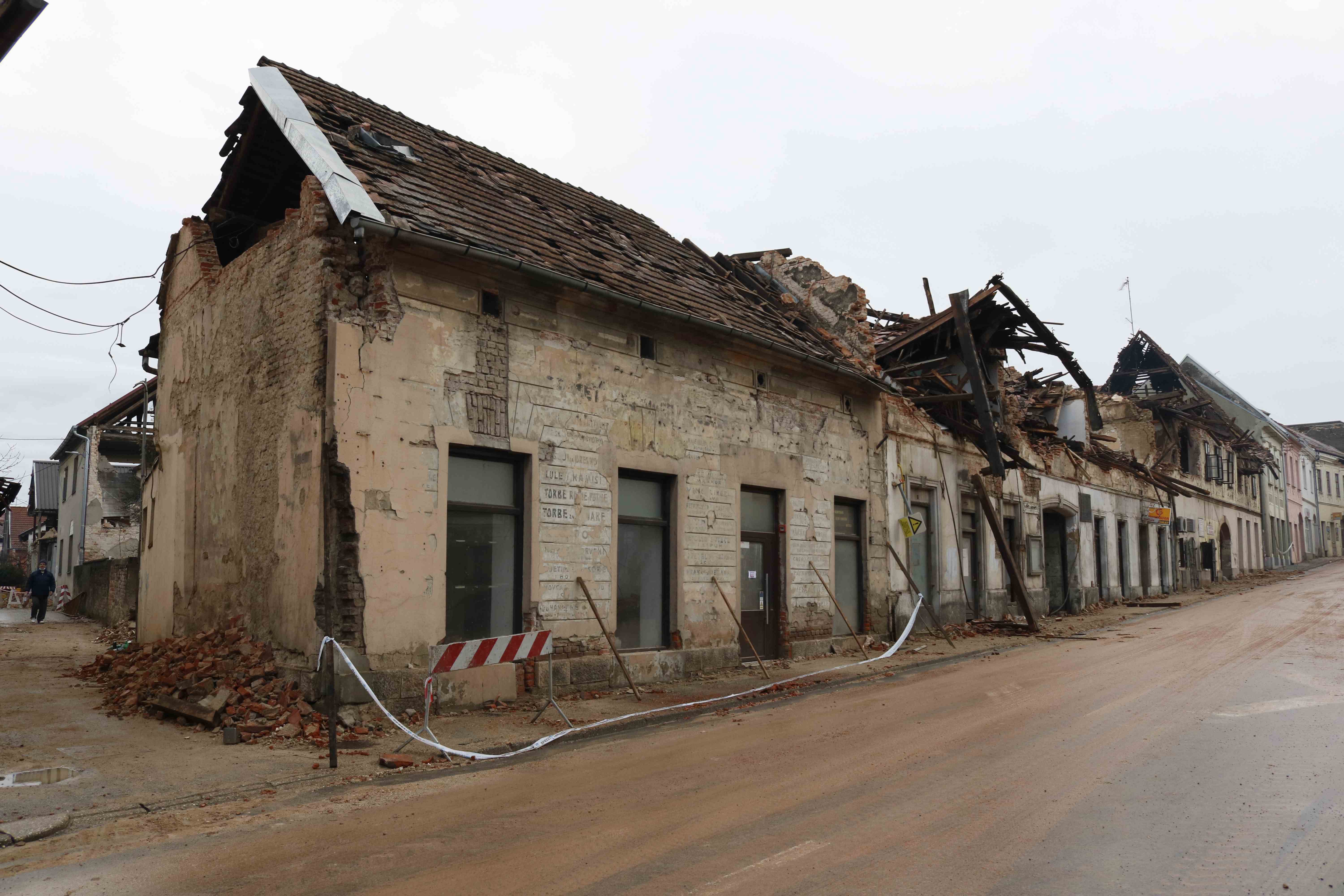
If you didn't know any better, these might look like damaged derelict buildings. But, 24 hours earlier, these had been a row of thriving storefronts, right in the centre of Petrinja one day after the earthquake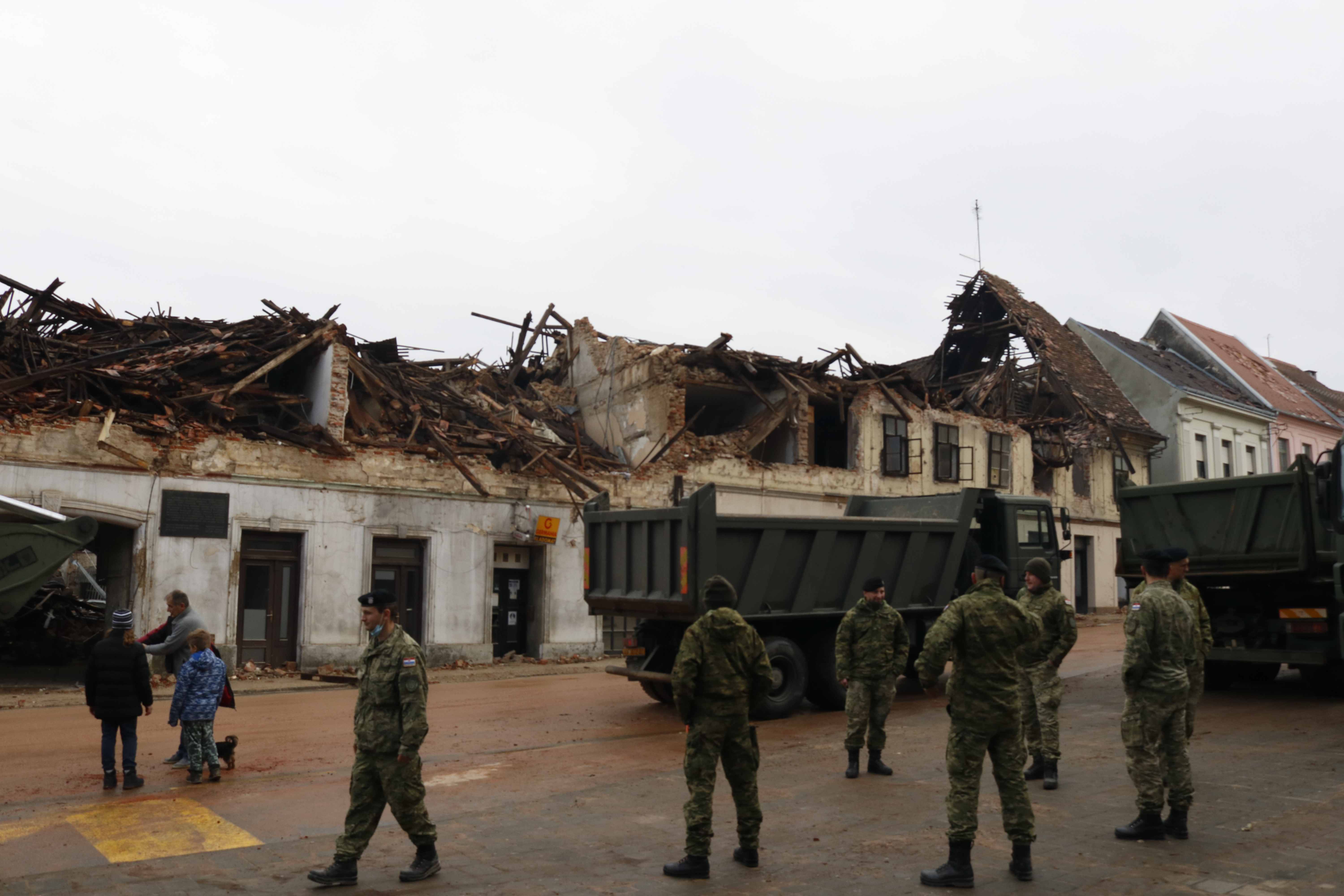
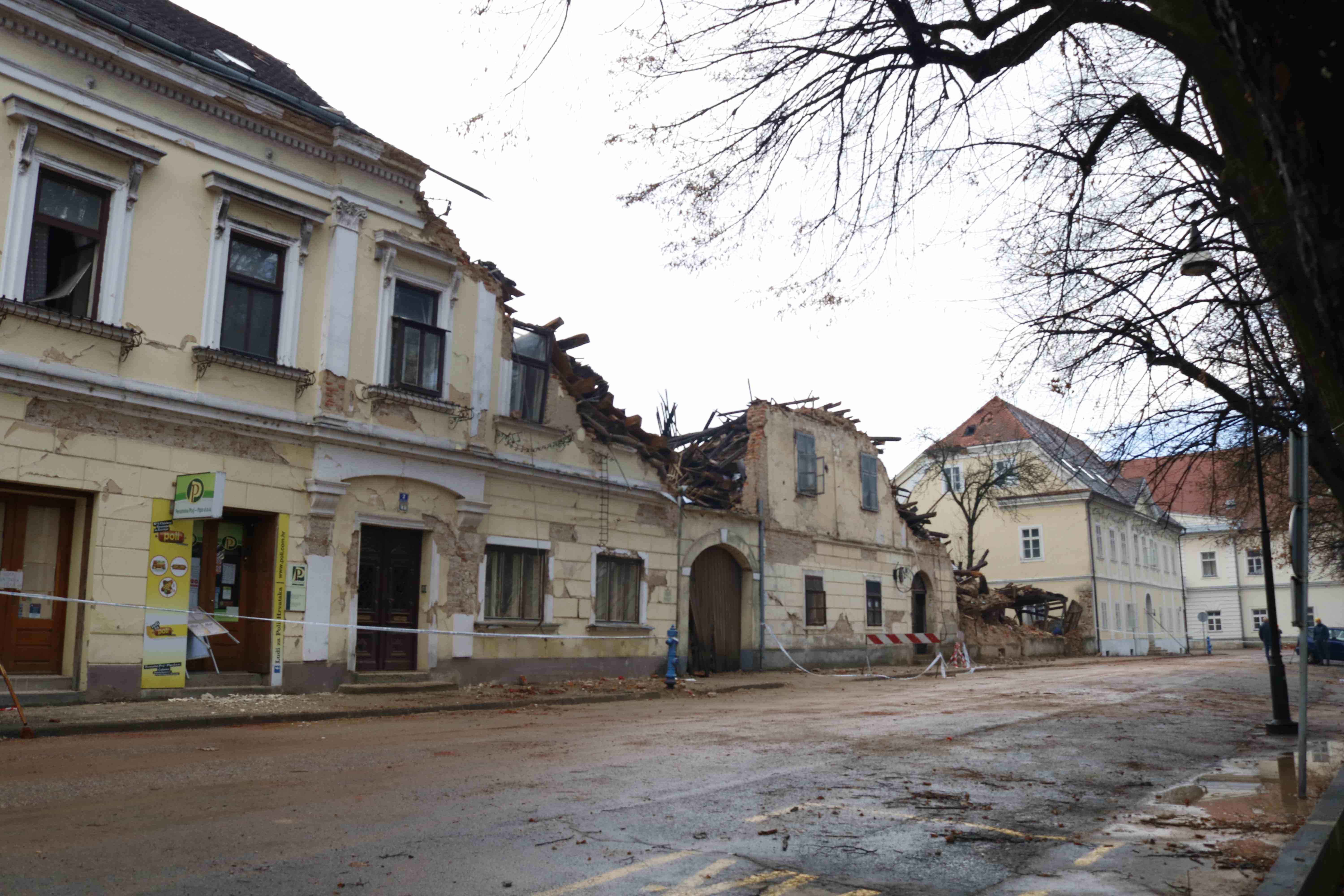
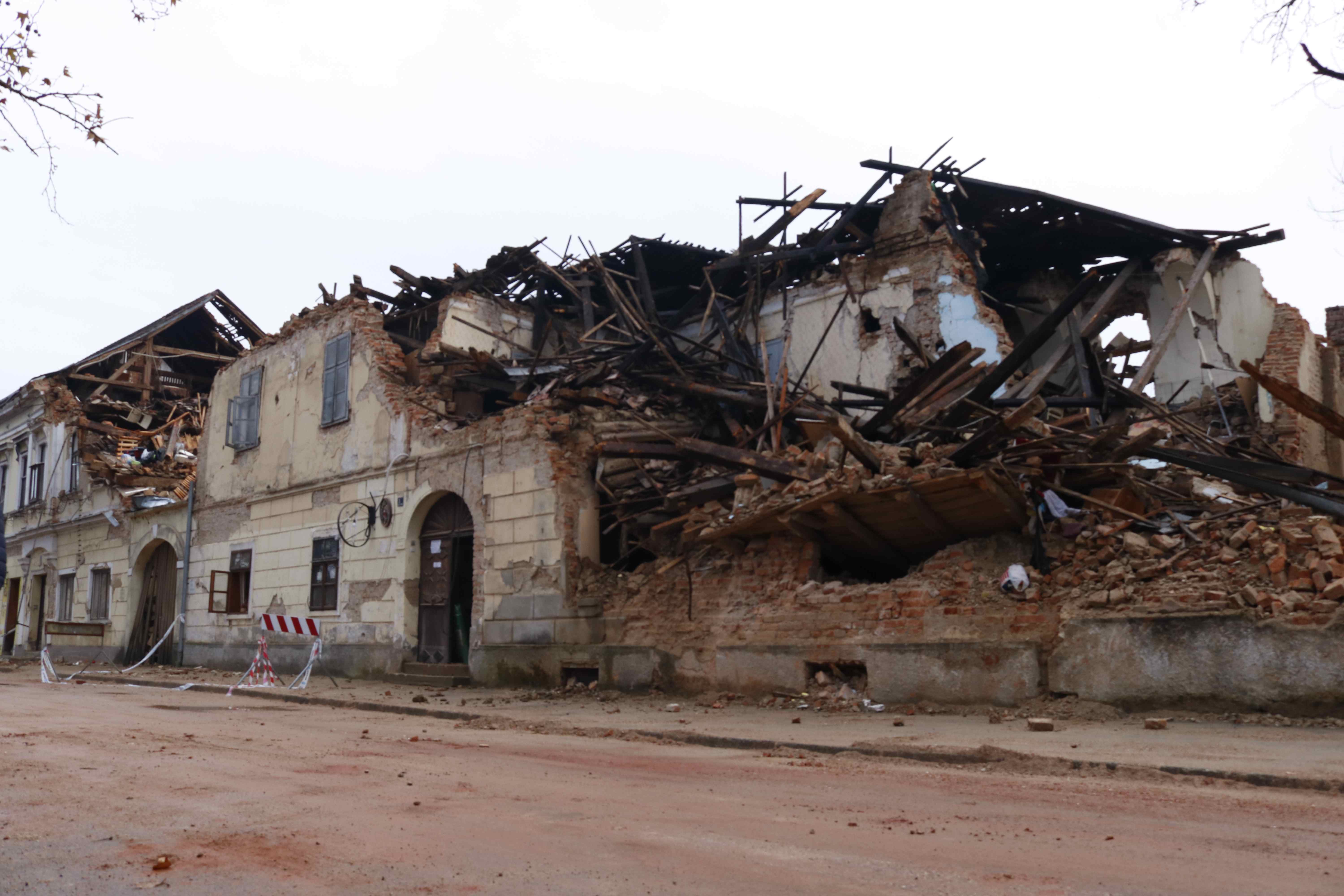
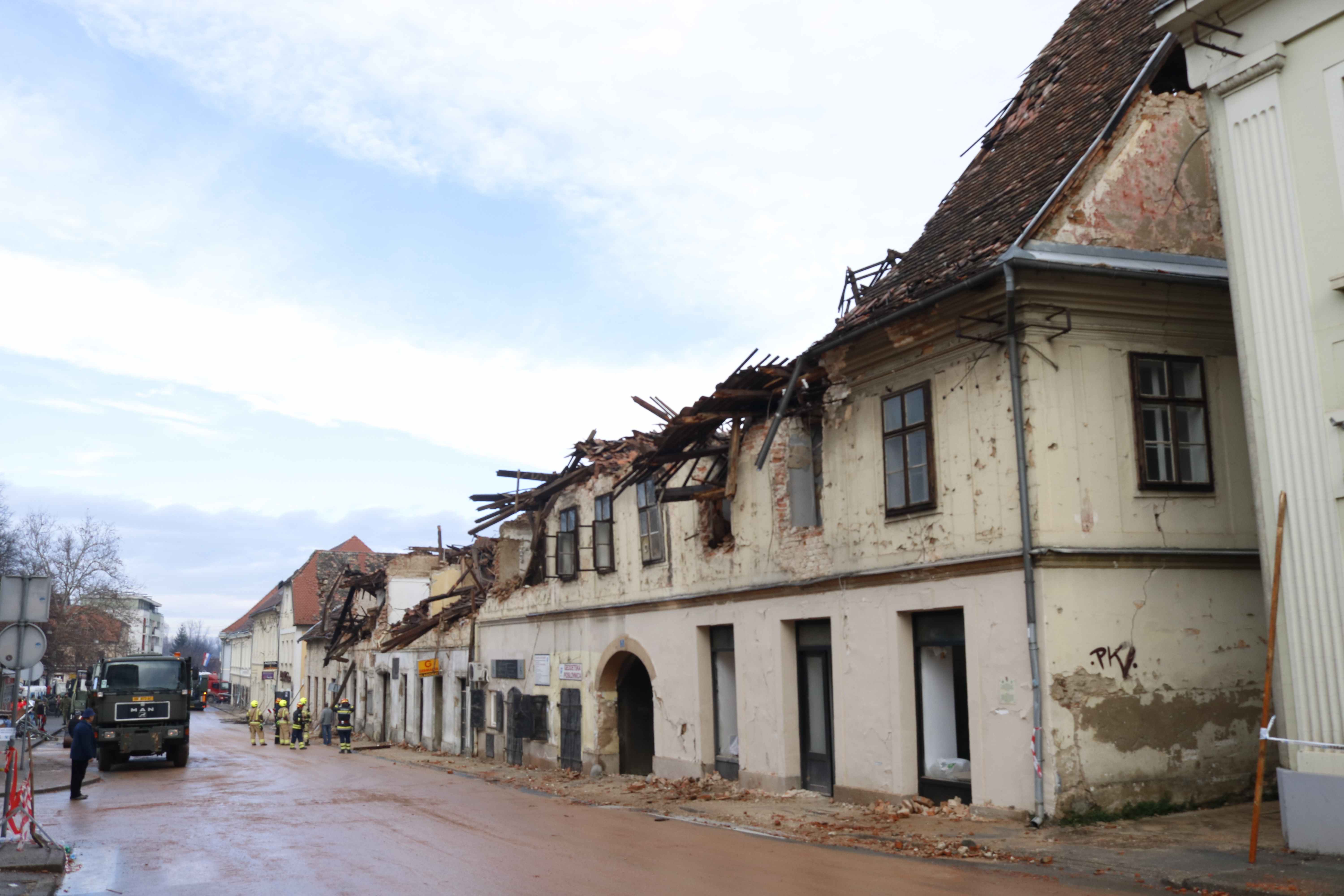
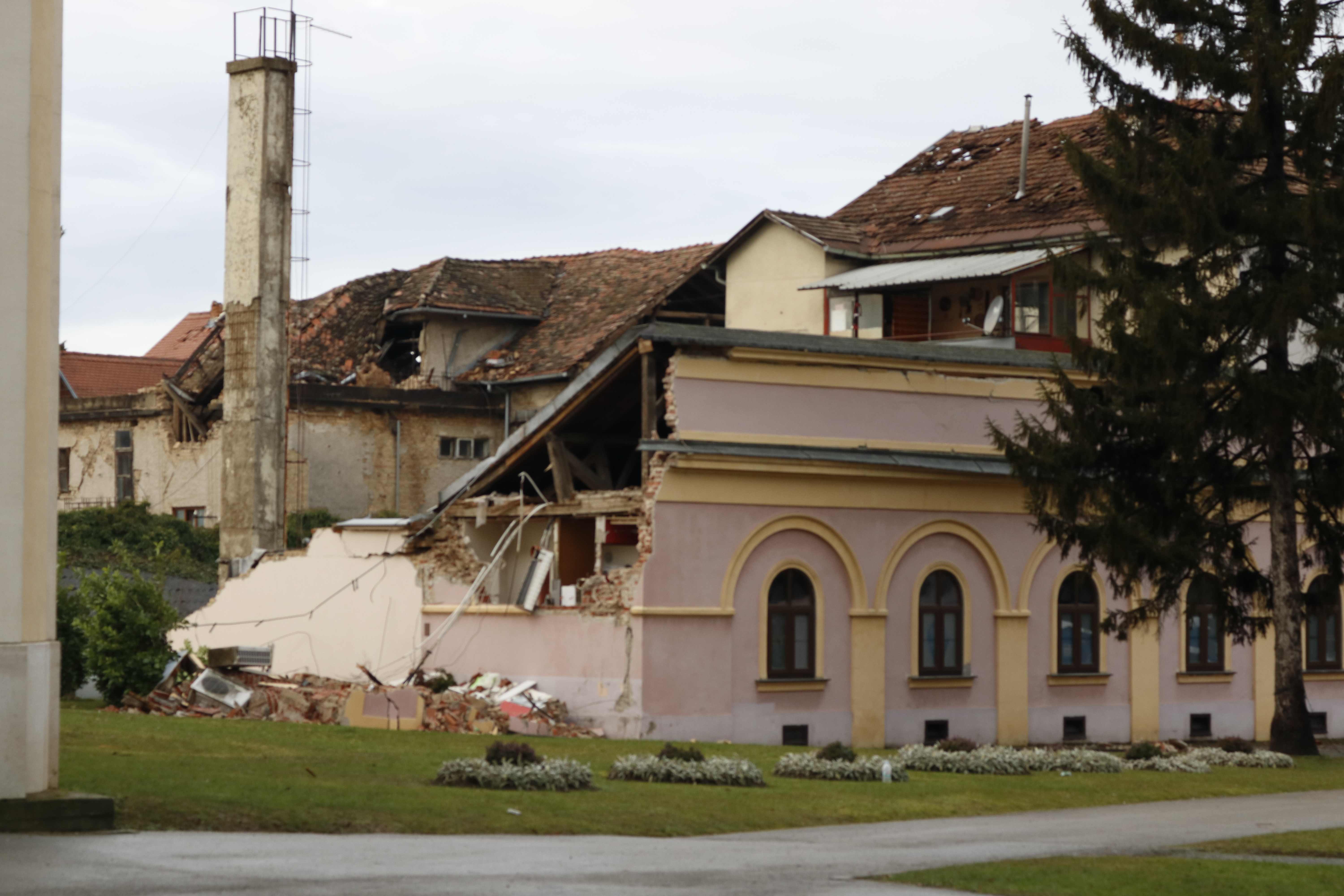
Sisak

Damage to the train station in Sisak. A considerably larger city than Petrinja one day after the earthquake, not one business we passed was working - no supermarkets, no fast-food restaurants. Nothing. Groups of teenagers roamed the streets with nothing to do and nowhere to go
Zazina

The Parish church of St. Nikola and Vida, Žažina near Petrinja one day after the earthquake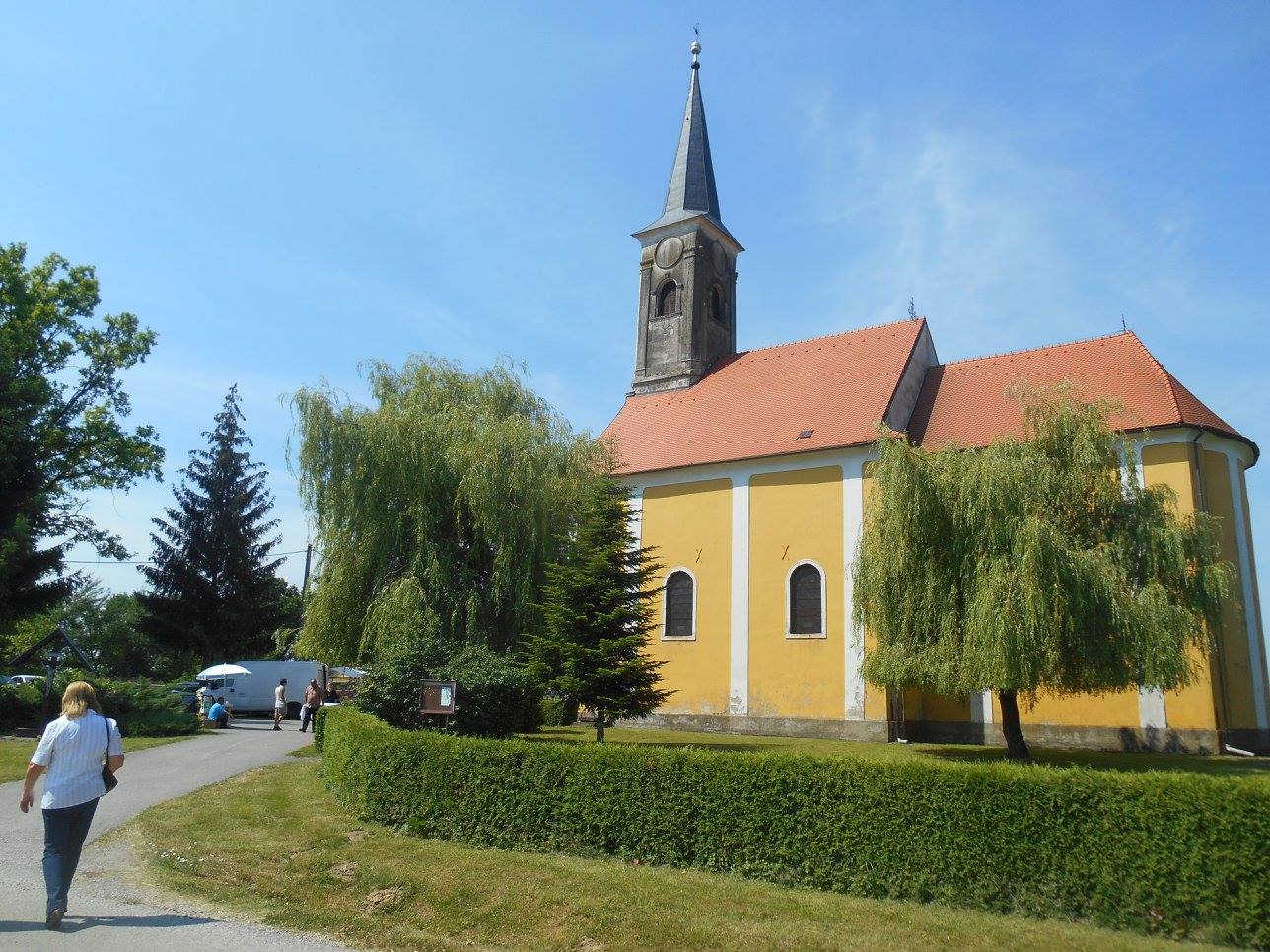
This is how the church had looked just one day earlier. A couple of metres from the church, remnants of the fire that parishioners had gathered around on Badnjak (Christmas Eve). We later learned that the church organist had been cleaning the organ when the earthquake struck, and tragically he was killed. 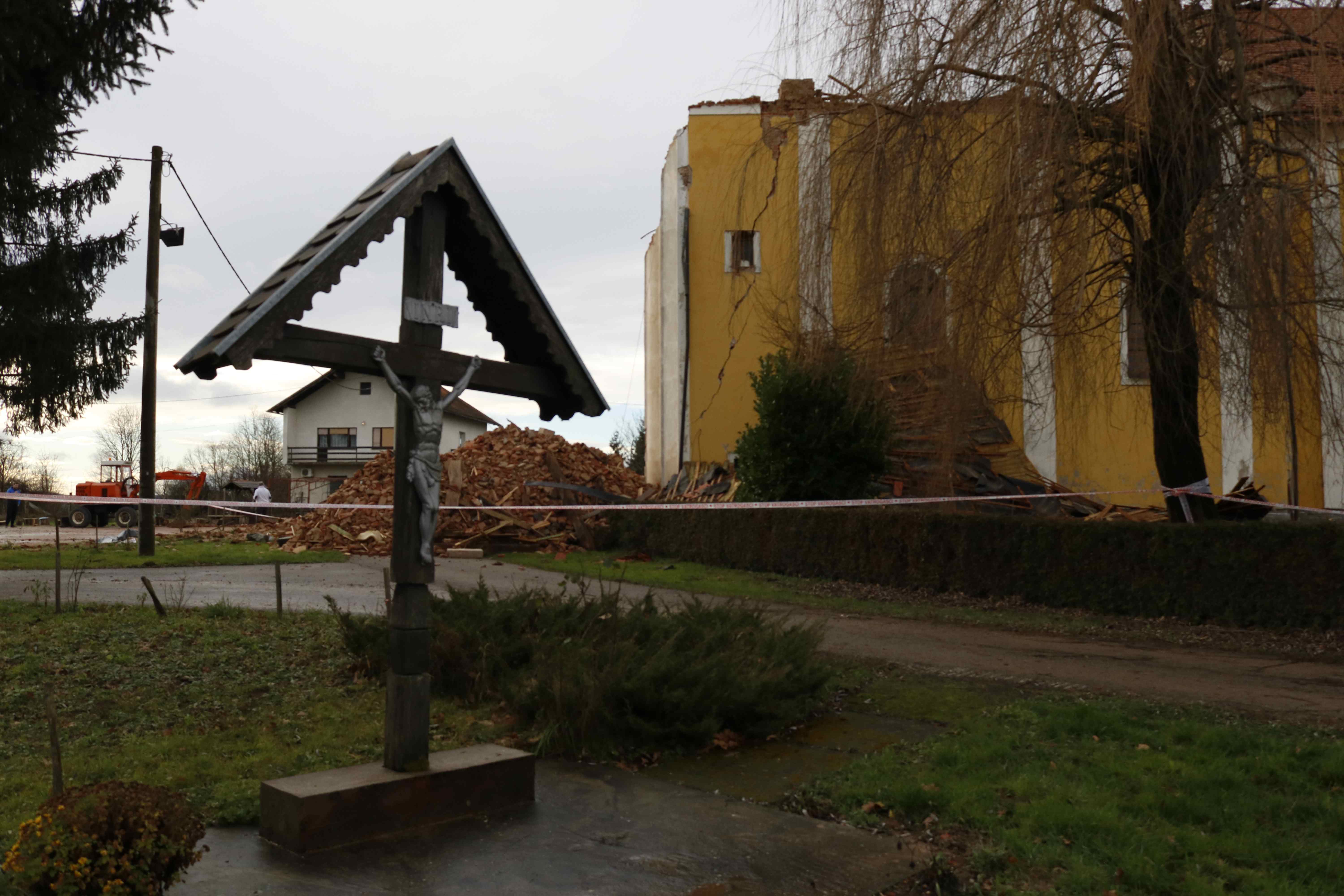
Photo of the Parish church of St. Nikola and Vida, Žažina courtesy of the church, all other photos © Marc Rowlands
Education Minister: Some Schools Affected by Earthquake Have to Be Rebuilt
December 31, 2020 – After visiting schools in Sisak-Moslavina County on Wednesday, Science and Education Minister Radovan Fuchs estimated that some schools would have to be rebuilt.
Besides, as Hina reports, minister Fuchs said that some schools would be able to be restored.
"The situation in schools is bad. In Petrinja, some schools will have to be completely demolished, and some will be rebuilt. I don't know how fast schools will be rebuilt. A good part will have to be built anew," said the Minister.
More schools require complete construction
In the Sisak-Moslavina County, there are 53 schools (37 primary, 13 secondary, and three music) attended by a total of 14,705 students, and 21 kindergartens attended by 3,489 children. Due to the earthquake, five schools required complete construction, nine were significantly damaged, and 13 schools could be used with repairs.
The earthquake damaged the First Primary School in Petrinja and the High School located next to it. There have been significant collapses there, and they will, therefore, need to be rebuilt.
Although it was first assumed that five schools in the Sisak-Moslavina County would need to be rebuilt, the number is slightly higher. Namely, in addition to the two mentioned Petrinja schools, more schools also require complete construction: the Fran Lhotka Music School Sisak, the Sisak Vocational School, the Farkašić and Letovanić Regional Schools of the Mladost Primary School from Lekenik, the Ivan Goran Kovačić Primary School from Gora, and the Nebojan Regional School.
Students in Sisak won't be able to attend college
The Minister also visited the Glina High School, where the energy renovation has started from the outside, which will most likely be renovated.
In addition to that school, the schools that have significant damage are: the Sisak Gymnasium, Katarina Zrinska Mečenčani Primary School, both Viktorovac Primary and High School, Ivan Kukuljević Primary School, Sisak School of Economics, Budaševo-Topolovac-Gušće Primary School (Topolovac), Dragutin Tadijanović Primary School (Mošćenica Regional School), and Mate Lovrak Primary School in Petrinja.
Many other schools are damaged but have mostly cracked glass, smaller cracks, and broken furniture.
At the Faculty of Metallurgy in Sisak, the University of Zagreb, which is attended by 141 students, the estimated damage is eight million kunas. The estimated damage at the Faculty of Teacher Education, the University of Zagreb, which is attended by 600 students, is 1.5 million kunas. Teaching at both faculties will not be possible until the end of the summer semester.
Fuchs said funds for school reconstruction would be withdrawn from the European Solidarity Fund.
"Preparations need to start immediately so that the reconstruction can begin as soon as the funds are approved," he stressed.
'Luckily there were no children in schools'
When it comes to involving students in teaching, the Minister points out that all options will be examined.
"We will try to see all the options that are most acceptable and best, primarily for students. We will know that when everything is consolidated in a few days," the Minister said, adding that now, it must be identified where the students are.
"Luckily, in the accident, there were no children in the school. Now we will see where they will be accommodated," the Minister said.
Minister Fuchs visited the earthquake-stricken Petrinja, Sisak, and Glina with the County Head of Education Darian Vlahov, Petrinja High School Principal Milan Orlić, Dragutun Tadijanović Primary School Principal Davor Miholjević, Faculty of Teacher Education Dean Siniša Opić, the Vice-Dean Marko Badrić, and Glina High School Principal Marija Novosel.
Follow our live updates on the situation in Croatia's earthquake-hit areas here; find out how you can donate here.
World Bank Ready to Help Earthquake-Stricken Croatia
December the 31st, 2020 - The World Bank is ready to aid earthquake-stricken Croatia both technically and financially, as was confirmed to Poslovni Dnevnik by Elisabetta Capannelli, the World Bank's director for Slovenia and Croatia.
As Poslovni Dnevnik/Jadranka Dozan writes, Elisabetta Capannelli, stated to Poslovni Dnevnik that the World Bank had received the horrible news of the recent devastating earthquake that struck Petrinja, Sisak, Glina and the surrounding areas in continental Croatia with great sadness.
"On behalf of the World Bank, I would like to express my deepest condolences to all those affected by this tragic event, and especially to those who have lost their loved ones. Although it may seem that there will be no end to the troubles in 2020, Croatia has once again shown that it is the strongest in the most difficult moments. The unity of all Croatia's residents, their selfless willingness to help, truly arouse admiration and give hope that 2021 will be a year of improvement.
The World Bank is already cooperating with the Croatian Government on the reconstruction of the City of Zagreb and surrounding areas after the devastating earthquake which hit the country in March, and we are ready to provide additional financial and technical support in efforts to rebuild and recover the newly affected areas, as well as support the further strengthening of the national earthquake and other disaster response systems,'' Capannelli stated.
For more on earthquake-stricken Croatia and how you can help by providing financial aid, donating food, materials, sanitary and humanitarian aid, click here. To pay from either here in Croatia or from abroad to a special donation bank account set up by HPB (this method is free of additional payment charges, even if you're not a Croatian resident and are making the payment from a foreign bank account), click here.
Helping Petrinja Earthquake Victims? Glovo Will Deliver Donations Free
December the 31st, 2020 - If you want to help the Petrinja earthquake victims in Petrinja, Glina, Sisak or any of the other surrounding areas which have been affected, Glovo will deliver your package free of charge.
As Poslovni Dnevnik writes, Glovo, a delivery service which has been present and very popular in Croatia for some time now, has joined the action of collecting donations for the earthquake-affected areas and enabled everyone who wants to help Petrinja earthquake victims to do so more easily by picking up donations for free and delivering them to the desired addresses in the affected areas.
If you want to help, all you need to do is prepare the supplies you want to donate, open the Glovo application, select the Express Delivery category and enter the address where the donation should be collected, as well as the address to which you want to send the donation. Donations are then delivered free of charge to the address you entered - whether it is the address of the Red Cross/Crveni kriz collection point or other organisations that organised the fundraiser.
''Sisak, Petrinja, Glina and the surrounding areas affected by the Petrinja earthquake need our help and we believe that we can help if we all join forces. We'd like to invite everyone who is able to do so to donate and help as much as they can, and we will take care of all of the logistics and donations to reach those in need,'' said Teo Sirola, the director of Glovo for Croatia, adding that the goal of this action is to facilitate the donation process and hopefully increase the overall number of donations to the victims of the recent devastating Petrinja earthquake, which sadly took multiple lives.
Donations made via Glovo can be completed in a mere few clicks and are easy and totally free. It is possible to donate groceries, clothes, hygiene and other necessities through the aforementioned app. Activation is available in all eleven Croatian cities where Glovo operates - Zagreb, Split, Rijeka, Osijek, Zadar, Sisak, Pula, Karlovac, Velika Gorica, Varazdin and Slavonski Brod and the action will last for as long as necessary.
If you want to donate funds or food, material, sanitary, humanitarian or anti-epidemic items, you can find out how here, with lists of what is most needed provided. If you want to donate via a special donations account set up for Petrinja by HPB, click here. Donations made into the special HPB account are free of any additional charges, even if you don't live in Croatia and are paying from a foreign bank account.
Rules Regarding Crossing Croatian Borders Changed
December 30, 2020 - Just like everything else in Croatia in the final days of 2020, the rules regarding crossing Croatian borders got changed today.
The police reported today that the rules are changed for those that need to get to and from the areas affected by the earthquake near Petrinja yesterday.
According to the new rules:
- Everyone whose house was damaged in the earthquake, who has had the official self-isolation issued in Croatia, will be allowed to leave Croatia without sanctions. This will mostly impact people from the region who live in the EU or Bosnia.
- Croatian citizens living abroad will be allowed to enter Croatia without a negative PCR test or self-isolation if their houses are damaged or they have family members in the damaged areas, in order to mitigate the damage. Those will have to prove ownership, by presenting deeds or similar documentation.
- Any foreign humanitarian workers bringing help to Croatia will be allowed to enter Croatia without a PCR test or self-isolation, if they can prove it's really humanitarian aid going to the damaged region. Those will be directed to go to the closest Croatian Red Cross station.
Follow our live updates on the situation in the earthquake-hit areas of Croatia here; find out how you can donate here.
Majske Poljane, Glina, Petrinja: A Foreigner View of Croatia's Emergency Response
December 30, 2020 - A day after the devastating Petrinja earthquake, TCN visits Majske Poljane, Glina and Petrinja, finding tragedy, humanity, and Croatians pulling together with huge hearts.
My first and only previous visit to Petrinja was in the winter of 2003. For reasons which now escape me, I went to pick up a Ukrainian employee of OSCE and his son. The son had a broken leg and my task was to transport him to hospital in Zagreb. Of Petrinja, I remember very little apart from the snow, the cold, and the many destroyed buildings after years of war and enemy occupation less than a decade previously.
Not much good has happened to the people of Petrinja and surrounding areas in the 25 years since the war finished. Unemployment, emigration - a sadly common story in continental Croatia outside the capital Zagreb. An earthquake measuring 6.2 was felt in ten other countries and every part of Croatia yesterday - it was my first earthquake experience, over lunch in Varazdin, 140 km away - powerful enough to have us leave the house immediately.
As TCN covered the aftermath, it was clear that a major tragedy was unfolding, with 7 deaths reported within hours. International messages and pledges came pouring in, and international interest in the live updates was huge. I decided to go and visit the next day, so that perhaps an in-depth account of the situation on the ground might help people understand the scale of the tragedy, as well as painting a realistic picture of what was happening on the ground.
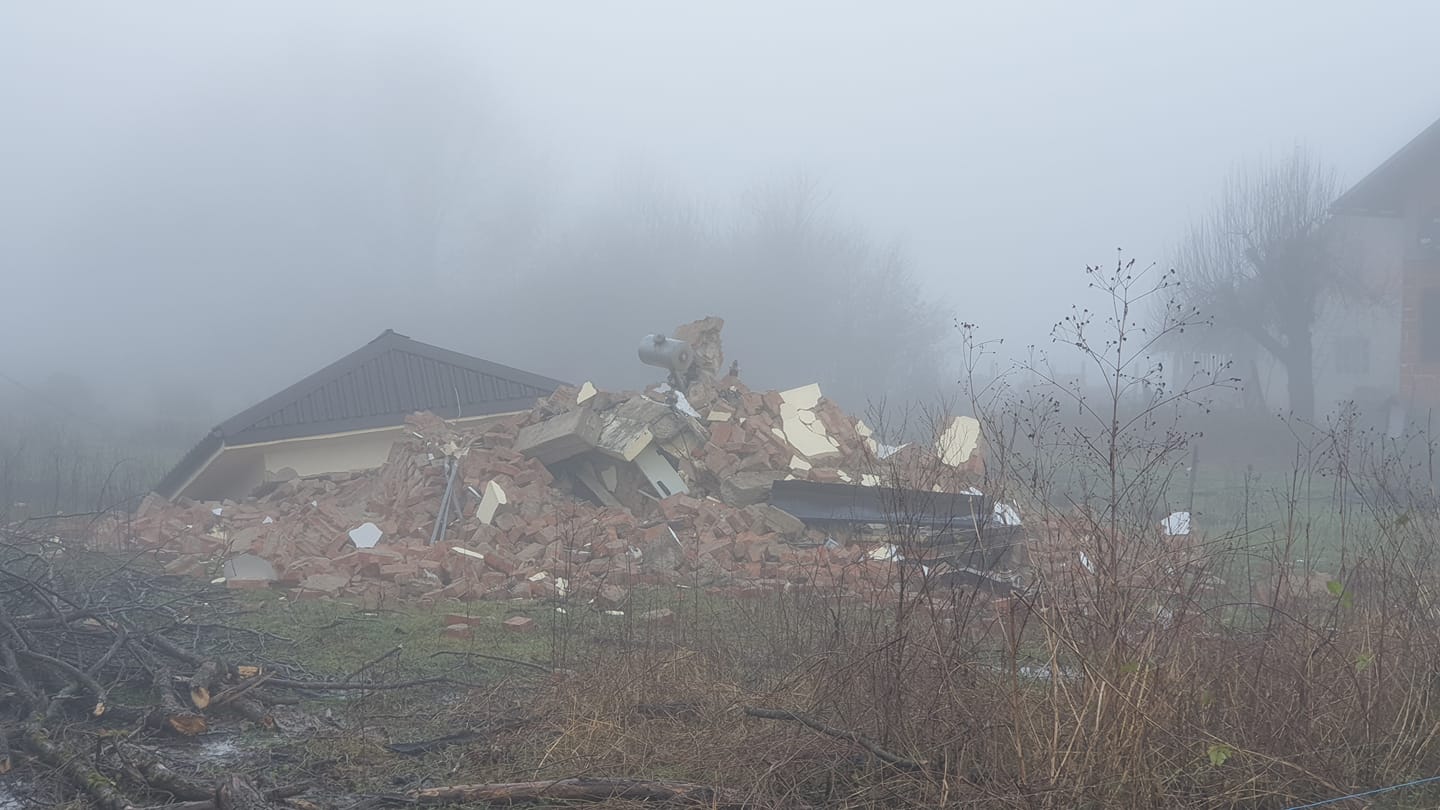
Unsure of how busy the roads would be, I left home in Varazdin at 5 am, picking up TCN colleague Marc Rowlands from Zagreb on the way. Never having done anything like this before, we decided to start in the small village of Majske Poljane, where four of the seven deaths had occurred, and where the mayor had claimed that only 10% of buildings were not damaged.
The mayor was not exaggerating.
The fog was thick at times, and our hearts sank the more we drove along the narrow main road. How does a community recover from something like this? Rebuild?
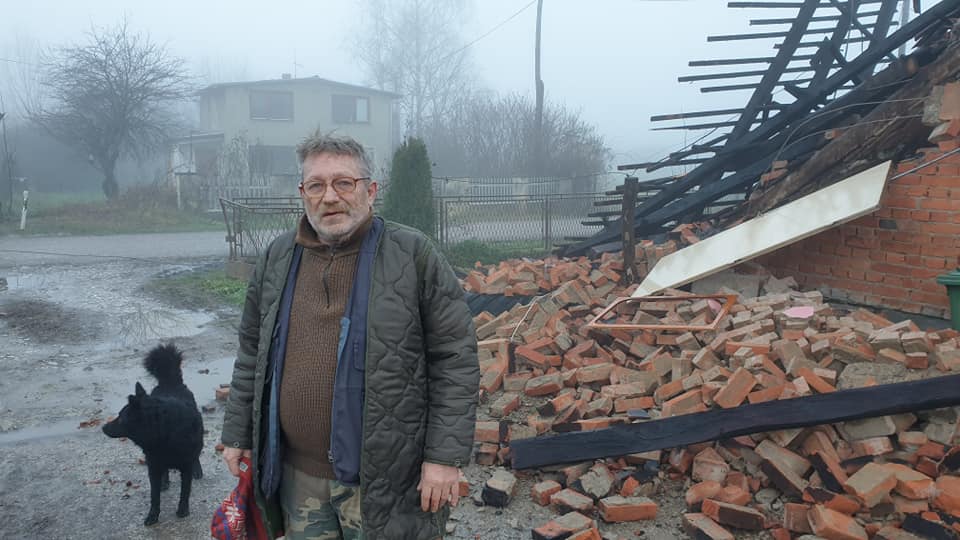
A shell-shocked man was standing by the side of the road. His house was more or less intact, but he was alone and without power. His neighbours had not fared as well. On hearing I was English, he told me that he was a war veteran and had fought side by side with an Englishman in Vinkovci in 1992 in the 109th Brigade.
"Was his name Steve?" I asked, the only Englishman I knew in Vinkovci who fought for Croatia (and DEFINITELY the only Englishman to open a pub in a field in the middle of nowhere in eastern Croatia).
" Yes, Steve. He probably will not remember me, or recognise me after all these years." I suggested we try and sent Steve the photo above to find out - the reply came back that the face was familiar. Such is the smallness of the village that is Croatia.
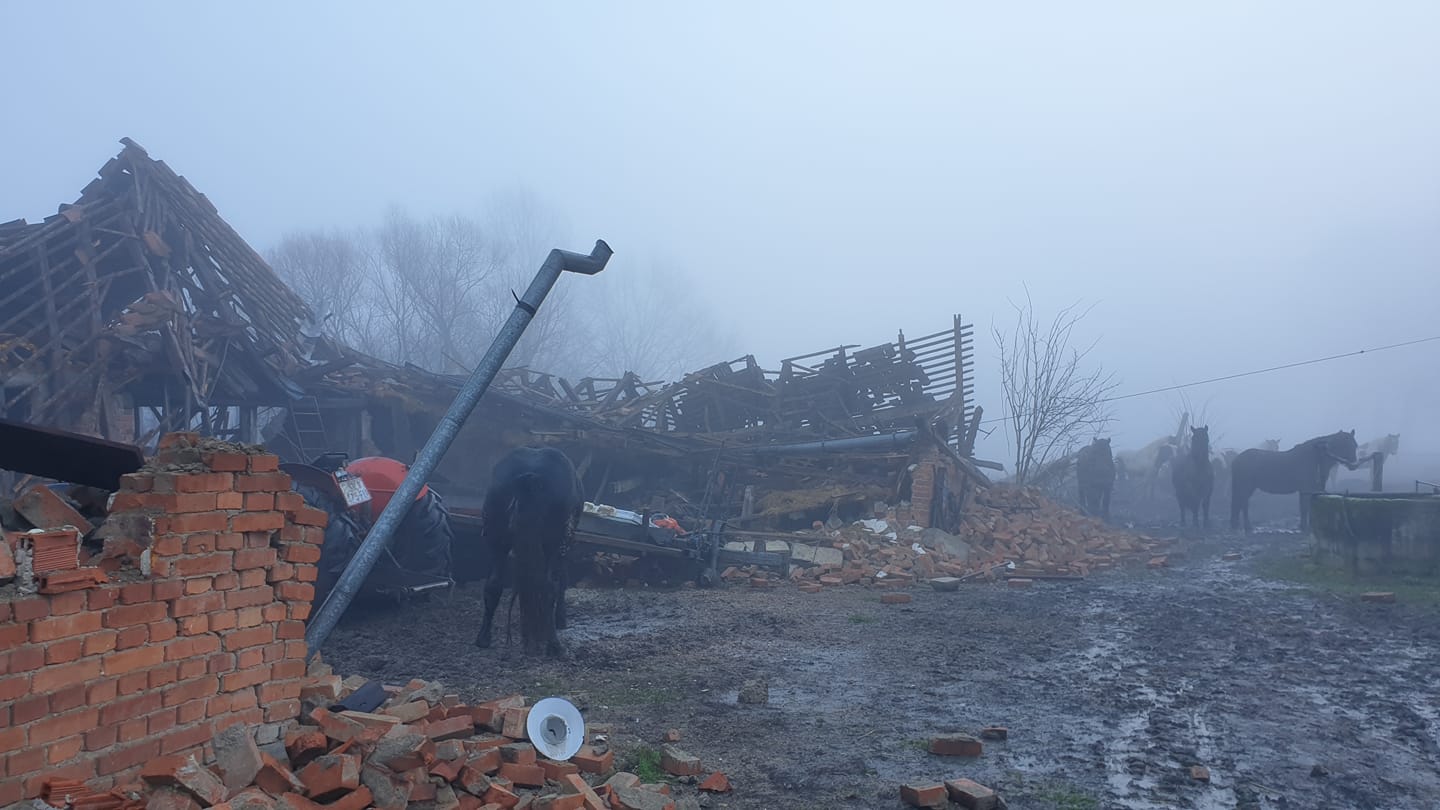
While Vladimir's house was in reasonable condition, the same could not be said of the neighbours' house across the road. Yesterday, this had been an inhabited home. Today, inhabited only by at least 10 horses that I counted, one of which was tied to a tractor. All were shellshocked.
I told various media colleagues I came across today about the horses, and they featured on the national news this evening, and I recently heard that a container of help has arrived at the house, including help for the horses.
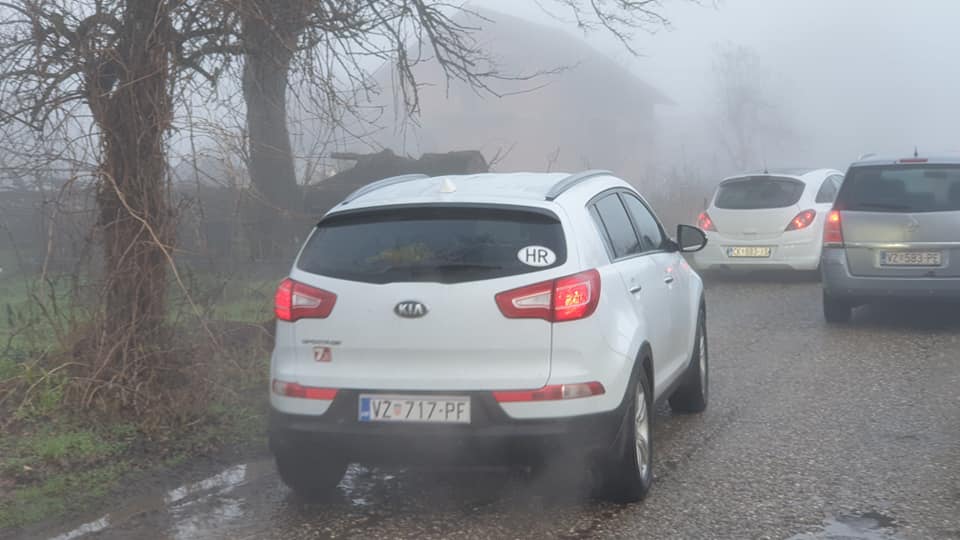
Ours was not the only car with Varazdin plates in Majske Poljane. They came from Varazdin, Cakovec, Zagreb, Vukovar and Bosnia. Volunteers, Croatians and foreigners with their cars filled with food, blankets, water, clothes, looking for locals to donate to, to help them through this difficult period.
Vladimir had already received a visit from the Red Cross yesterday, and they brought food, blankets and clothes. He took only a little food, as the need for the rest was perhaps greater with others.
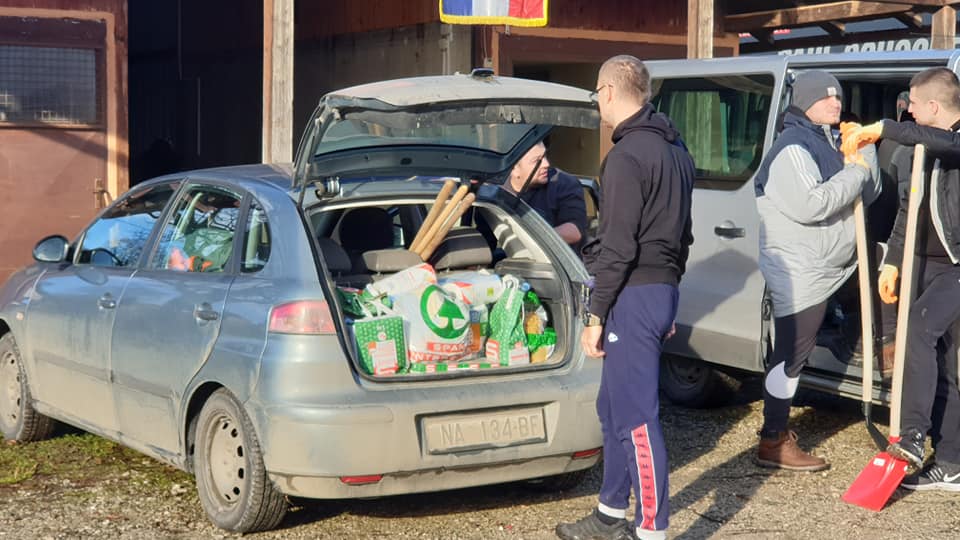
It was a theme of the day - cars from all over Croatia (here, Nasice) filled with supplies to help the people of Majske Poljane, Glina, Petrinja and Sisak.
Of all the countries I have lived and travelled in, never have I seend a nation come together in time of crisis in the way Croatia does. As my heart was breaking with the horror scenes all around, it was also beaming with pride at the efforts of my adopted homeland.
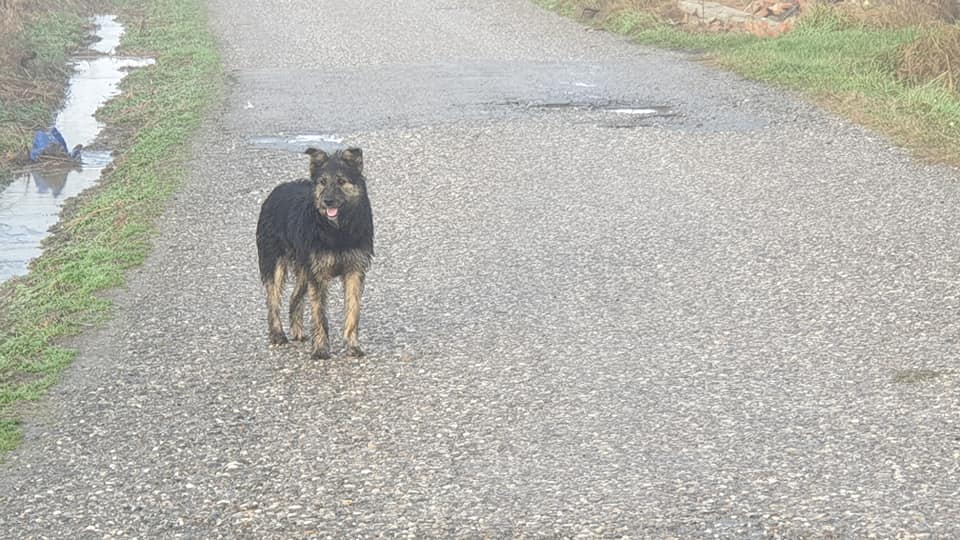
The humans of Majske Poljane may have been confused by what had happened, and so too were the animals. From those horses to the bleating sheep and many dogs either wandering around confused or guarding houses which no longer existed, the loneliness and loss of direction of beloved pets was as poignant as anything I saw today.
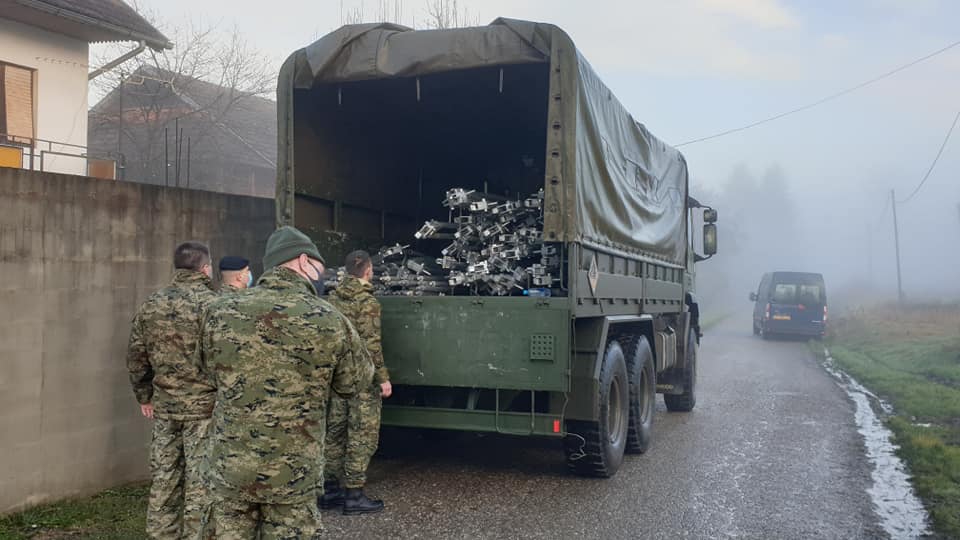
We made our way back through the mist to the other side of Majske Poljane, to be greeted by the Croatian army, just part of the emergency response.
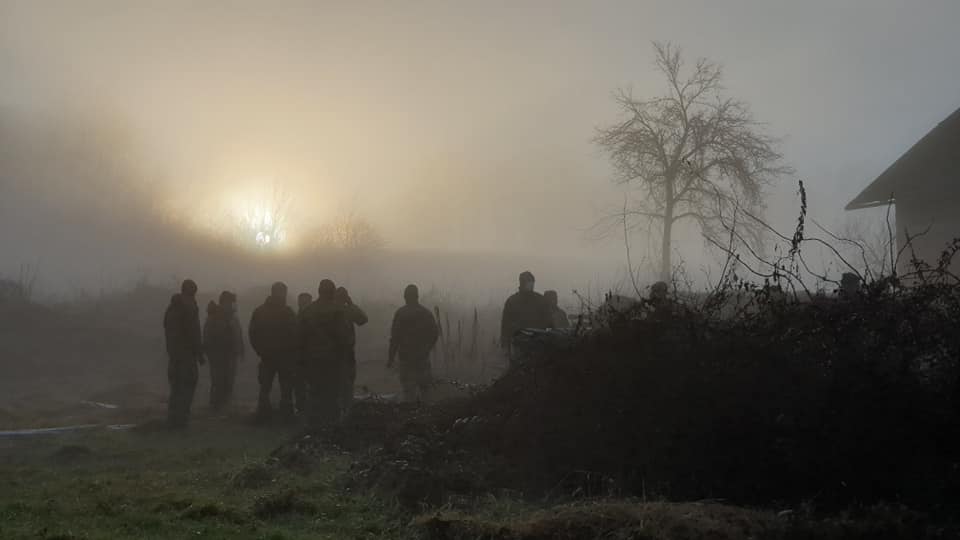
They were soon at work, setting up temporary shelters.
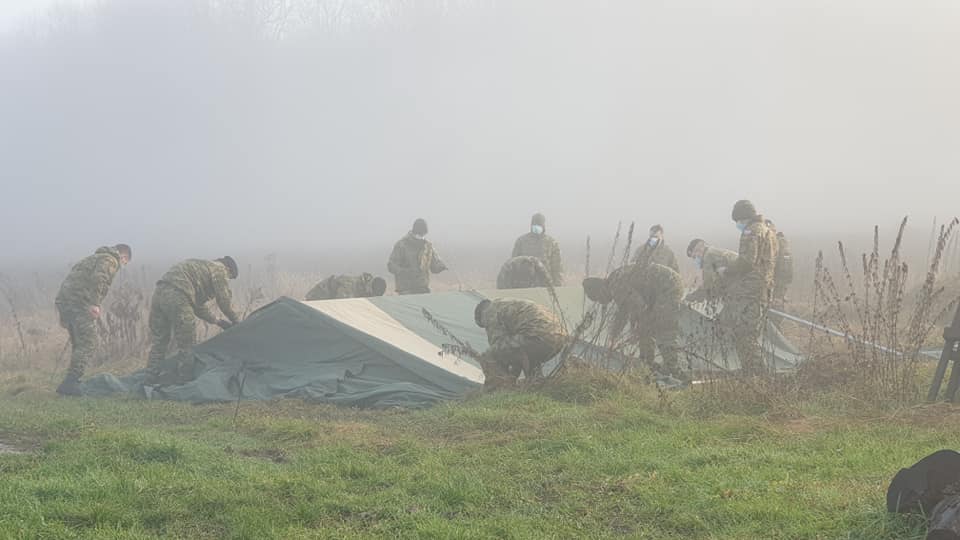
Great teamwork, obviously well-practised.
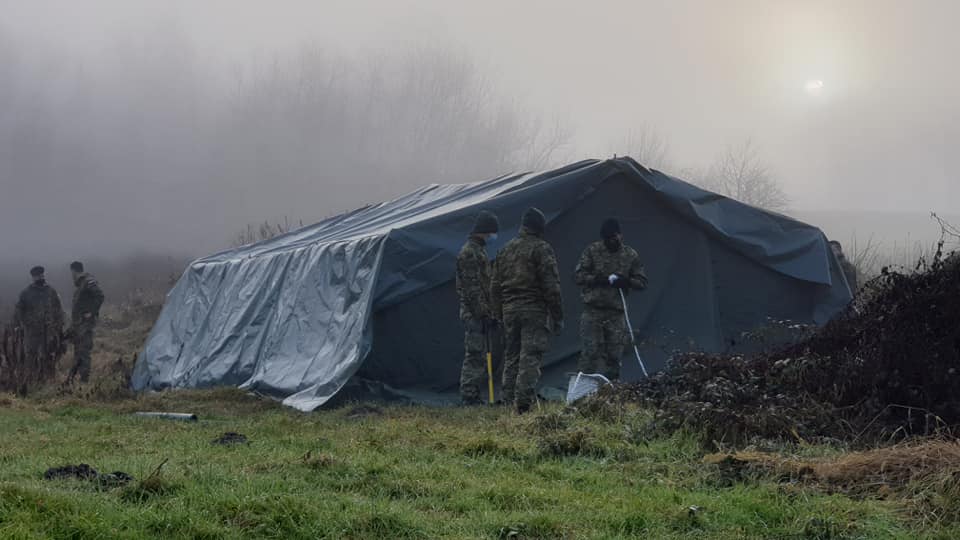
And within 15 minutes, mission complete for the first tent.
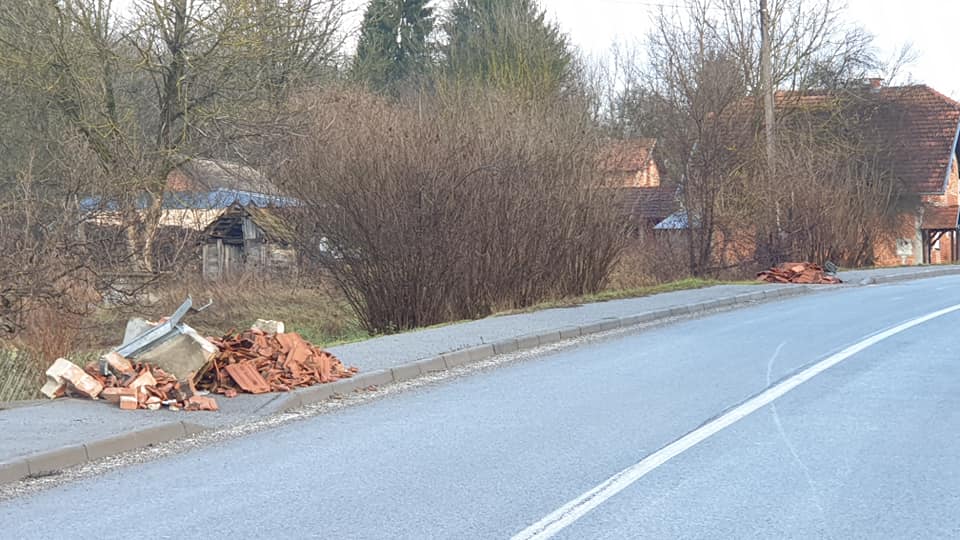
We headed on to the nearest town, Glina, which was also badly affected. On the way, by the side of the road, piles of rubble from the damaged houses. Neatly arranged, waiting for the authorities to collect them.
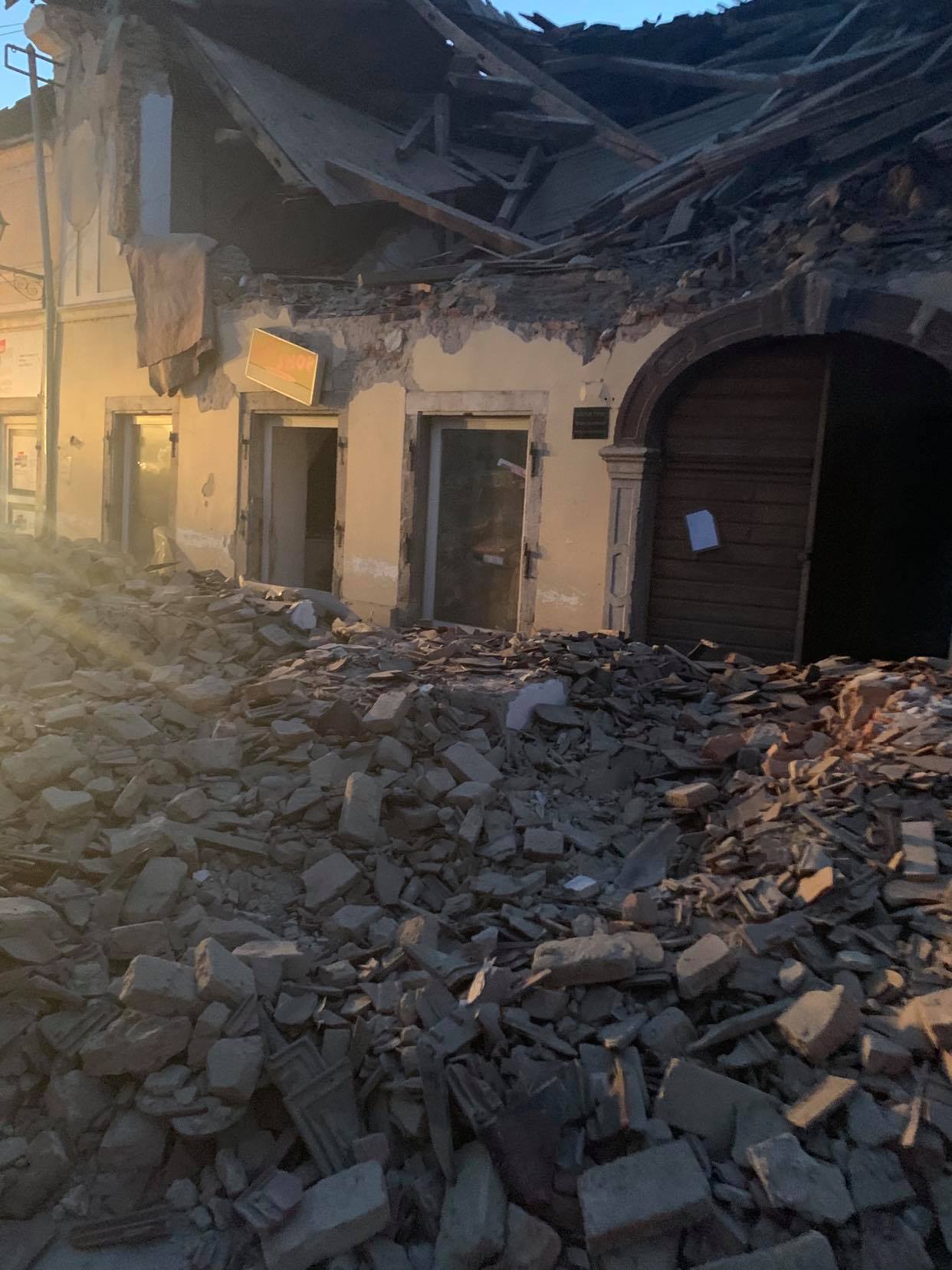
This is the photo a friend from Petrinja sent me yesterday. Cleaning this up was going to take forever, surely?
We couldn't believe how clean the streets of Glina were, until we saw the local teams in action.
One section complete, on to the next.
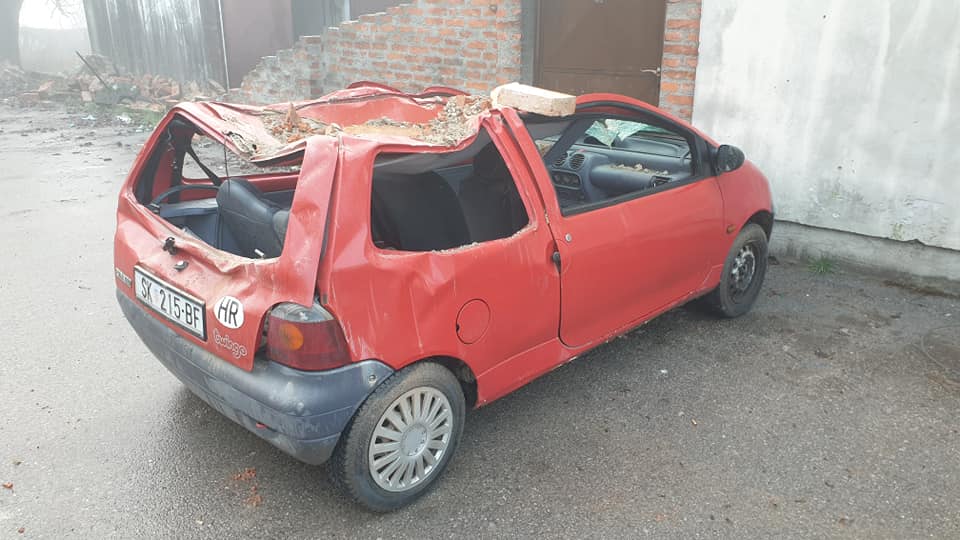
Some things will be impossible to fix.
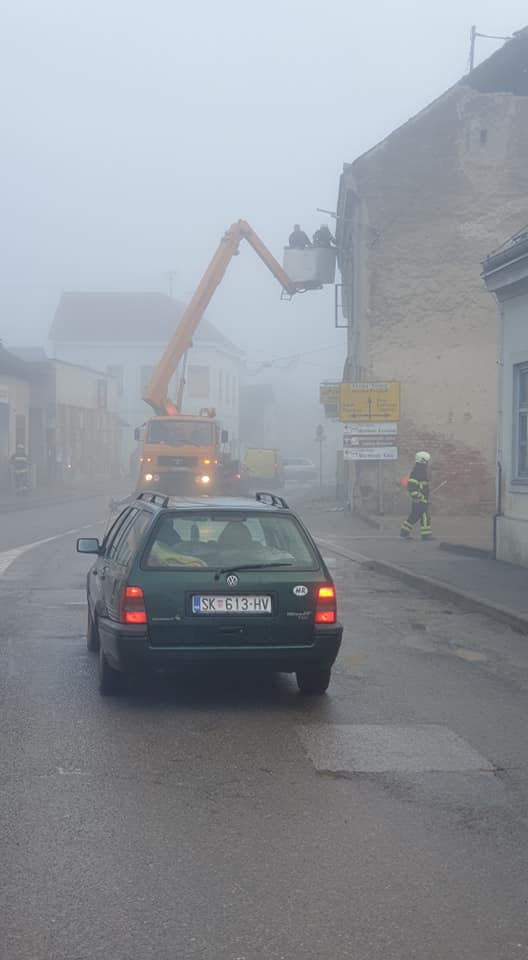
The fire brigade was out in force, removing loose debris and making buildings as safe as possible. Lots of loose chimneys were removed in the region today.
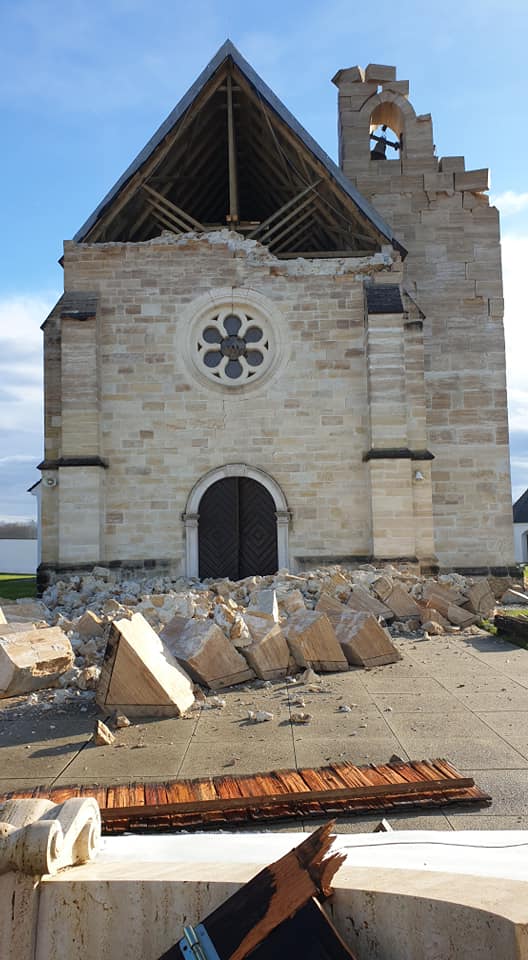
From Glina to Petrinja, but there was plenty to observe on the way. A beautiful stone church in Gora, victim of the quake, huge chunks of stone lying in its gardens. A local told me that the church is only a few years old, having being rebuilt after the Homeland War.
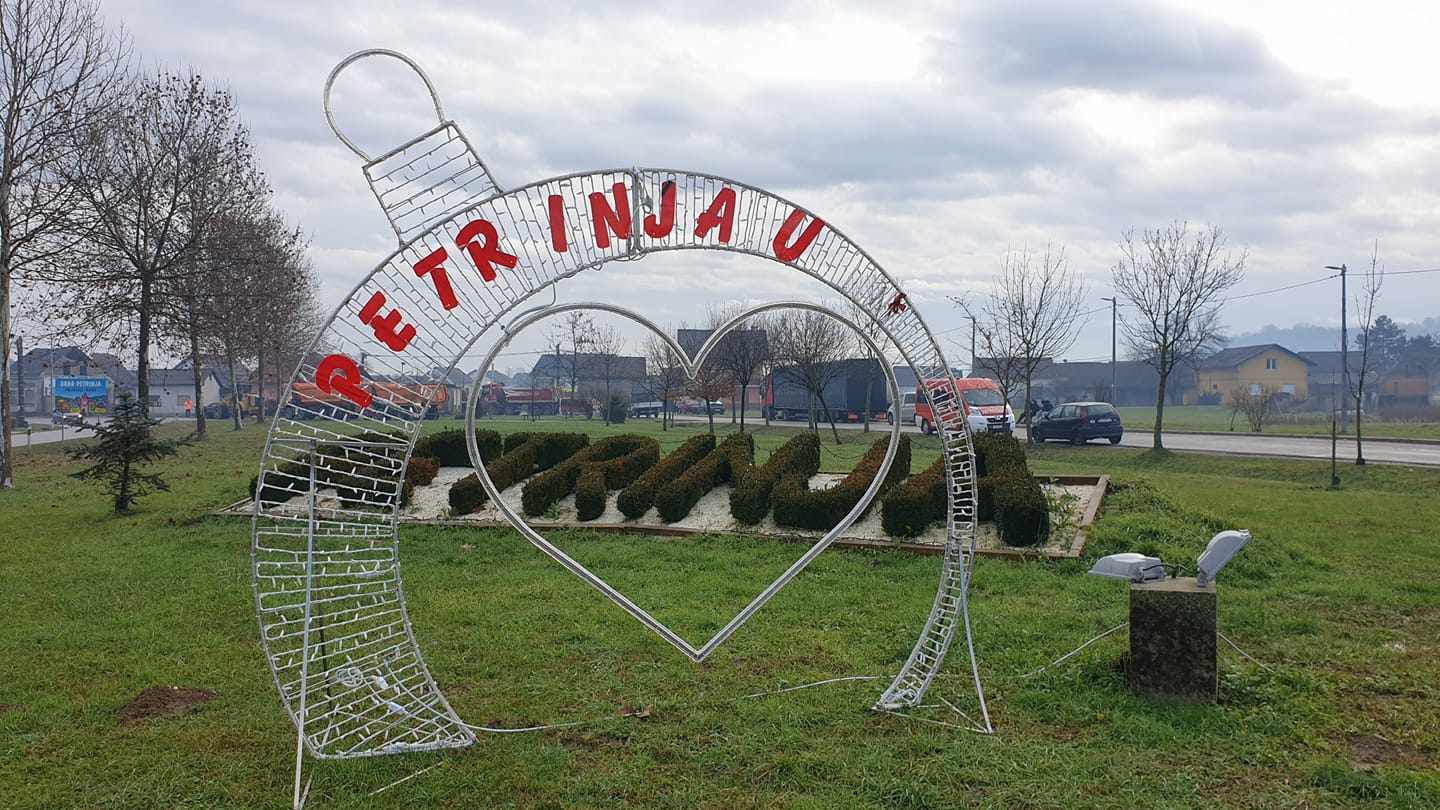
The entrance to Petrinja.
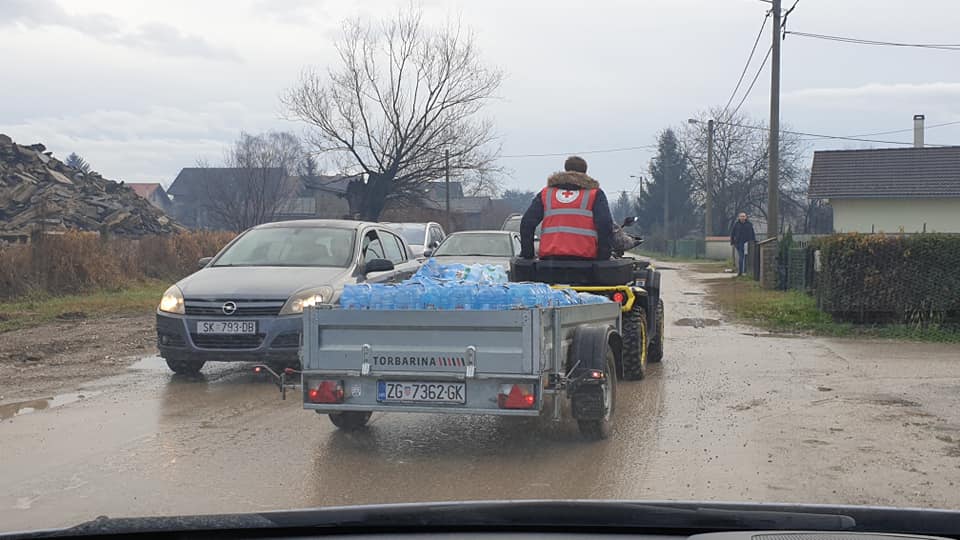
With no fixed agenda, we decided to follow things that interested us. Such as the Red Cross on quad bikes delivering emergency water.
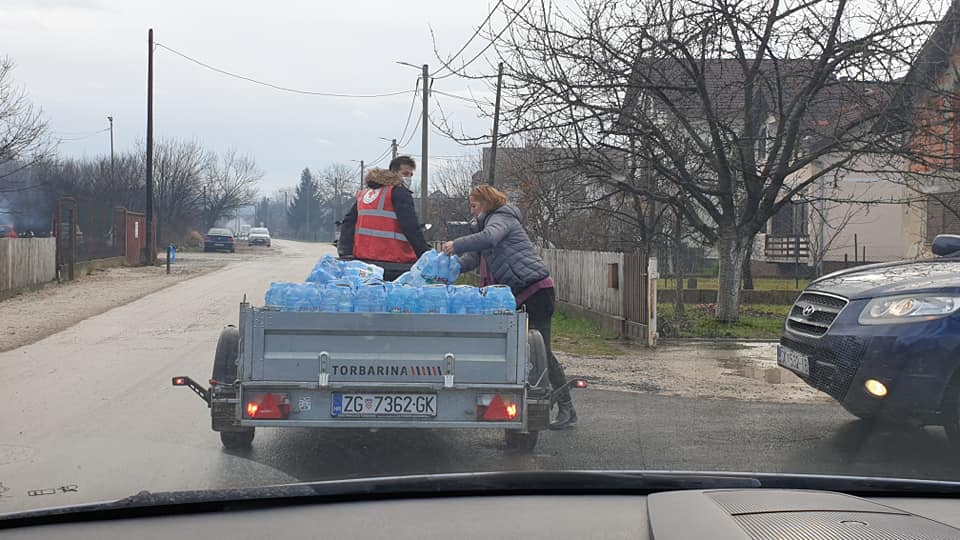
It was hard to keep up as they went house to house, with local residents coming out to collect their allocation. Efficient, innovative, and very effective.
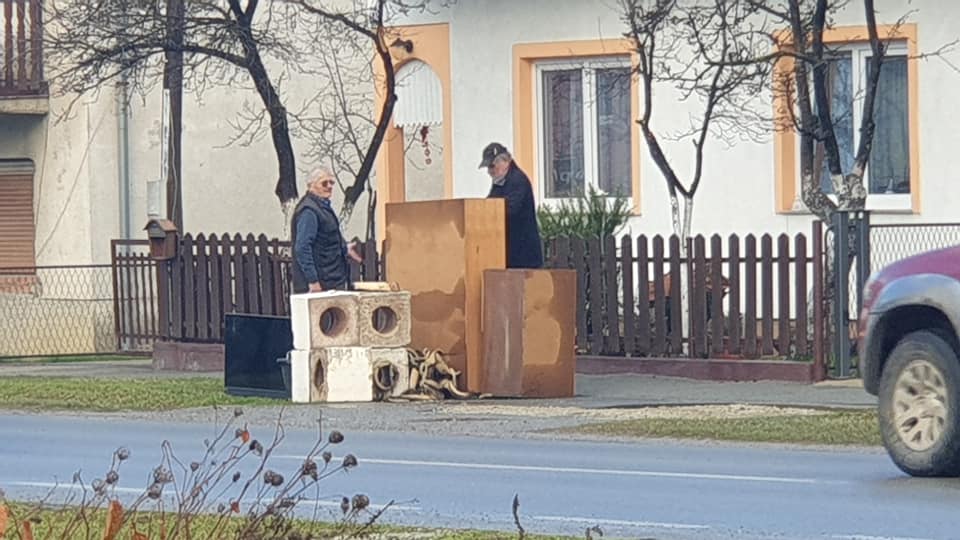
One of the most heartwrenching sites of the day were the numerous families sitting in their gardens and yards outside, with basic supplies of food and water. Others were just standing there, looking lost. With the threat of more tremors, no electricity, and nowhere to go, many just sat outside in the cold and waited. There were so many incredible photos to be taken, but neither of us wanted to be that intrusive.
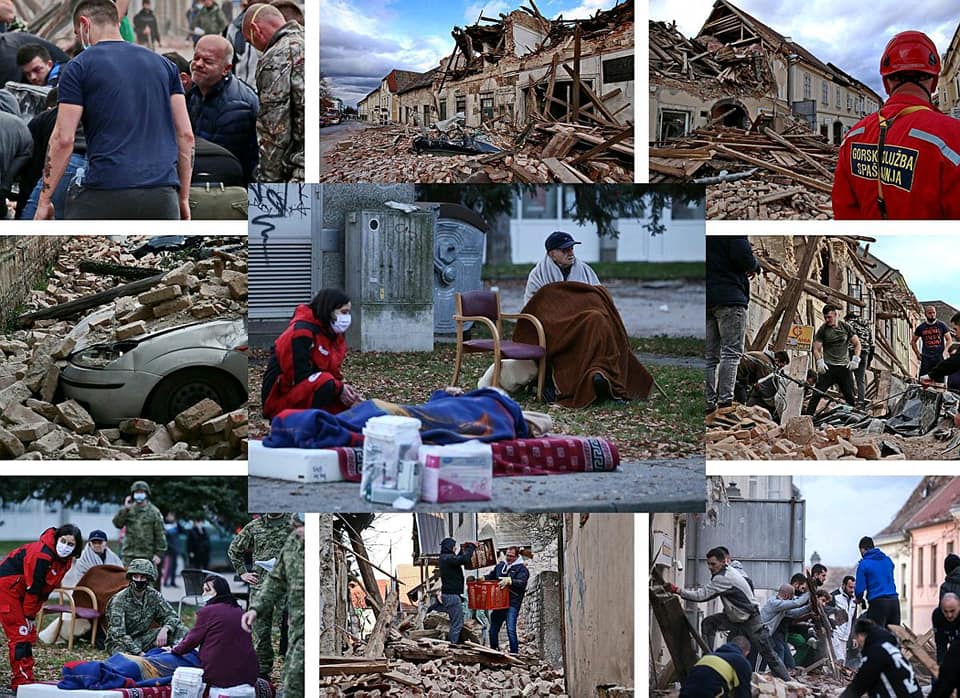
But perhaps a flavour in this collage from a LinkedIn contact.
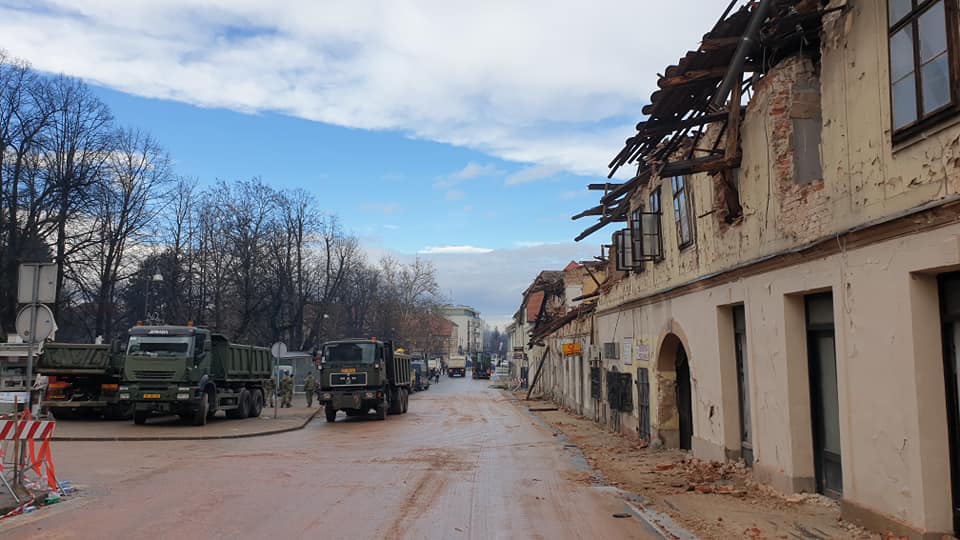
And so to the centre of Petrinja, whose collapsed buildings have become the most iconic of this latest disaster.
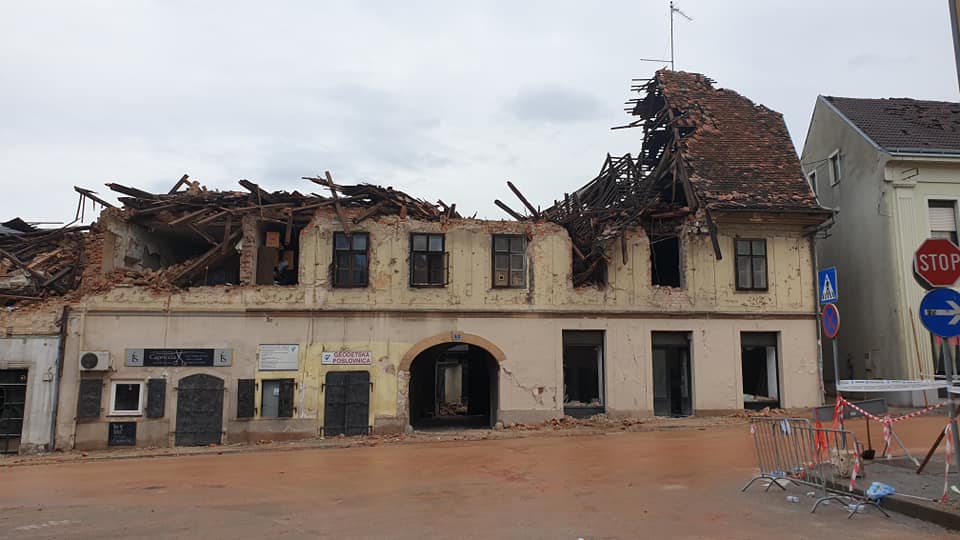
Horrifying.
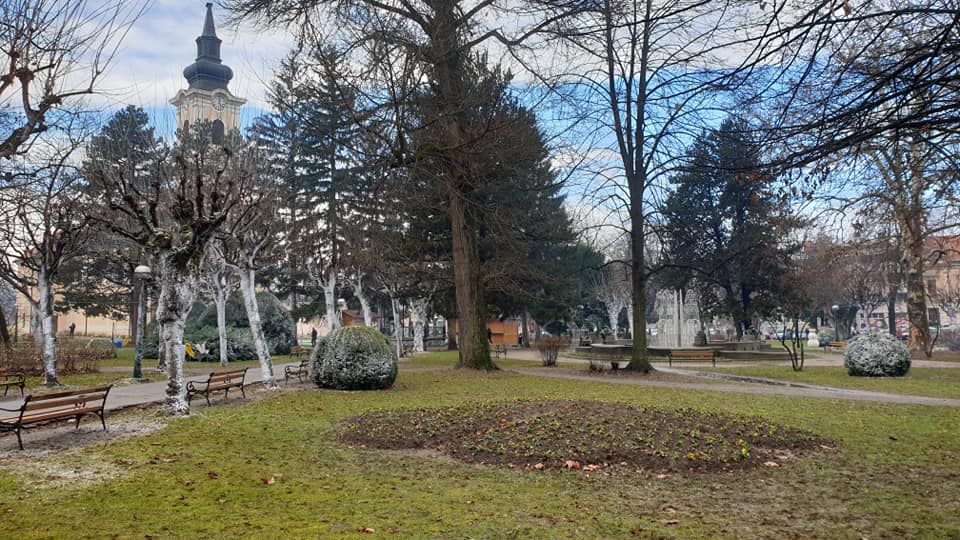
But then, the strangest thing... Look the other way into the centre of the square to find a beautiful Advent in Petrinja park, seemingly oblivious to the chaos all around.
A video tour of a tale of two Petrinjas in one square.
And I thought back to my friend's photo the previous day - the streets of Petrinja were incredibly clean so soon after such a catastrophe.
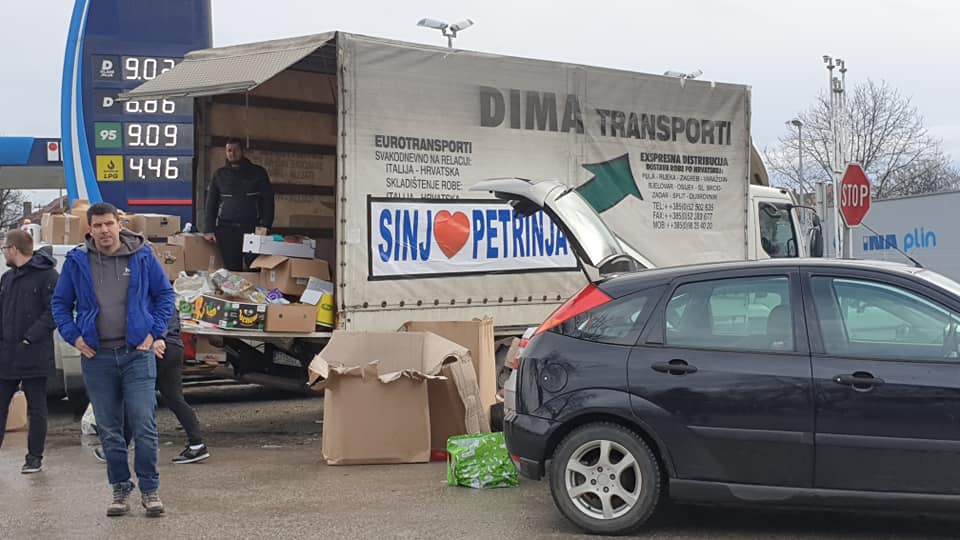
Another reason, perhaps, why people were just sitting around in their front gardens was that there was nothing open. Cafes and restaurants have been closed for weeks due to corona, but the shops and supermarkets were also shut. But there was little chance of the people of Petrinja going hungry, as there was help from every corner of Croatia. I stopped to take a photo of 'Sinj Loves Petrinja.'
"What would you like?" asked the man in a strong Sinj accent.
"I would love a cold beer," I replied.
"Sorry, no beer but we have lots of other things. Take what you need."
"Haha, I was joking. I am a journalist, I don't need anything but thank you."
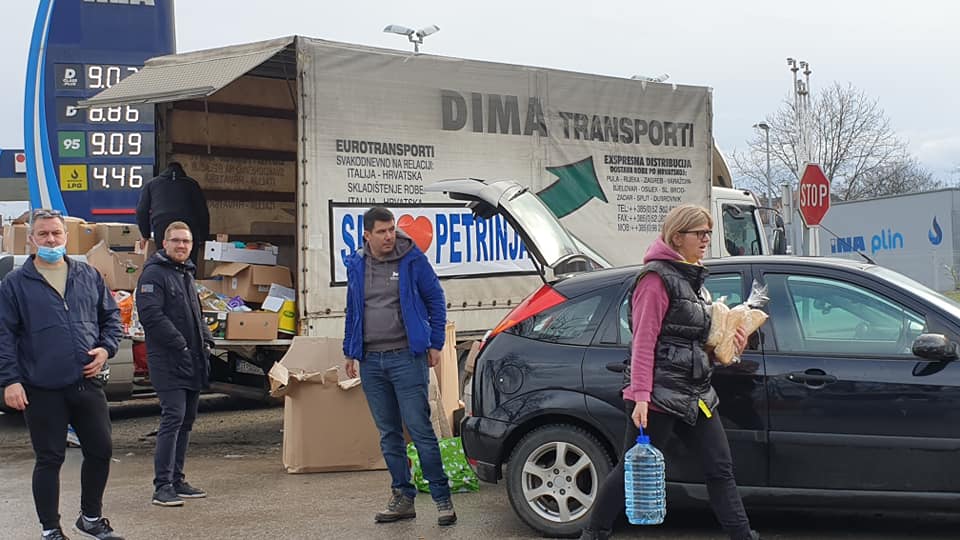
A woman approached asking if they had any bread, and she took what she needed for her family. Such things happened all over the region, gifted by people from all over the country, today - it was heartwarming to see.
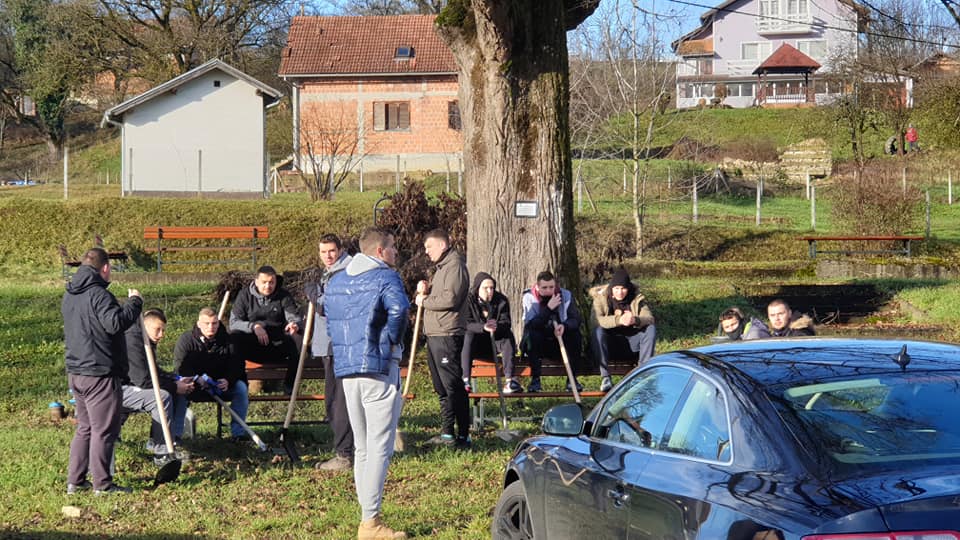
And everywhere, the volunteers, waiting to be allocated their tasks. Everything is being very well-coordinated by the local civil protection units.
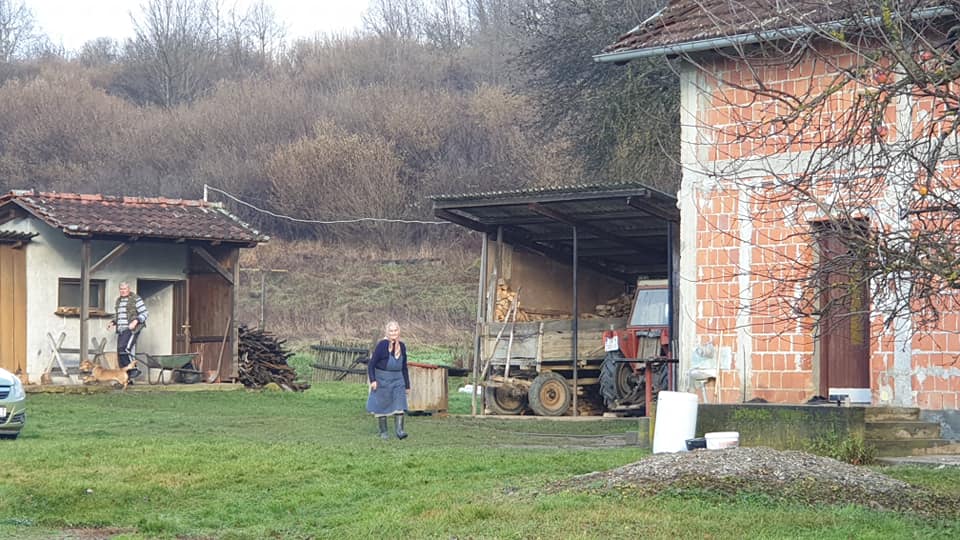
Marc wanted to take some photos of something along the road, and I found myself watching this old couple whose house had been damaged, urgent repairs to the roof a priority.
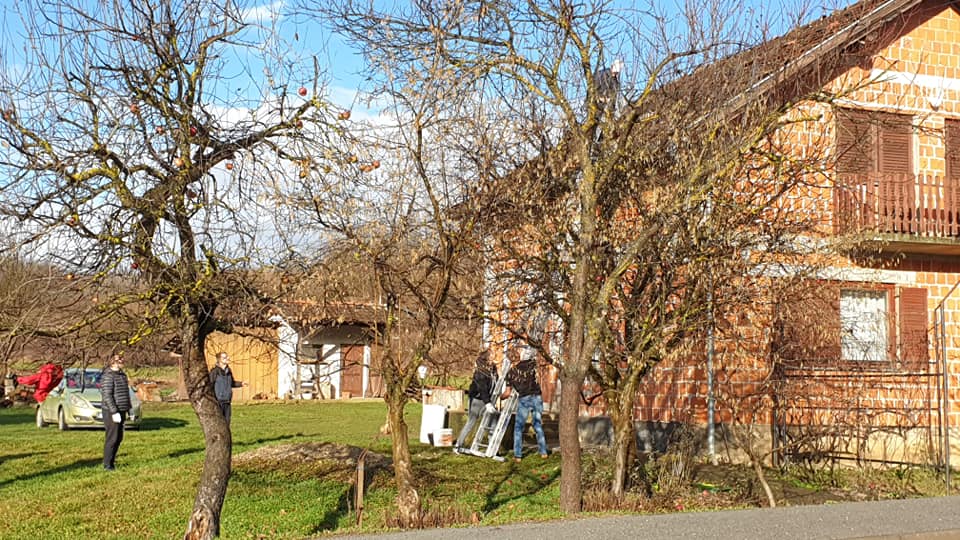
Within minutes, a team of volunteers appeared with a ladder and set to work. Such things happened all over the region, volunteers from all over the country, today - it was heartwarming to see.
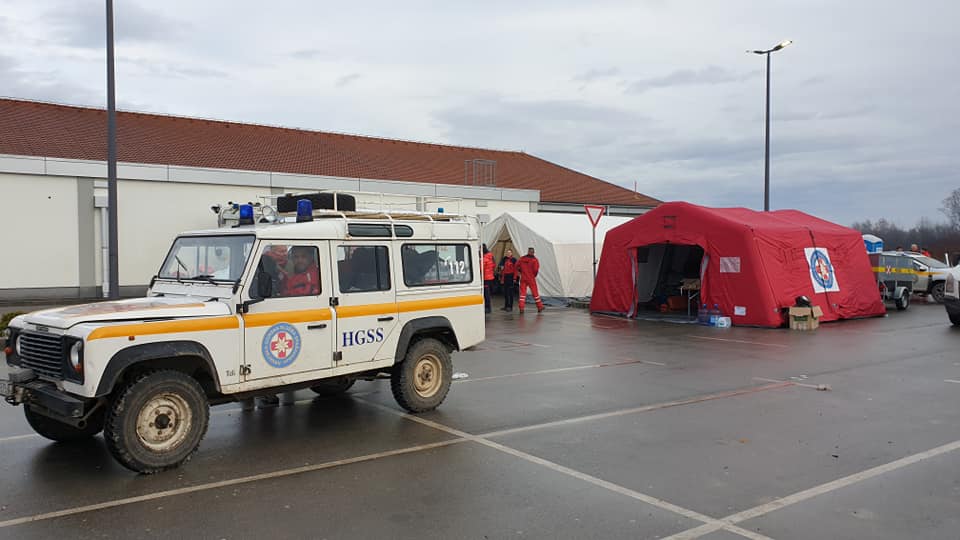
There was one appointment I had that I was keen to keep - finally meeting Josip Granic and the amazing team from the Croatian Mountain Rescue Service, whose headquarters were in the Lidl car park.
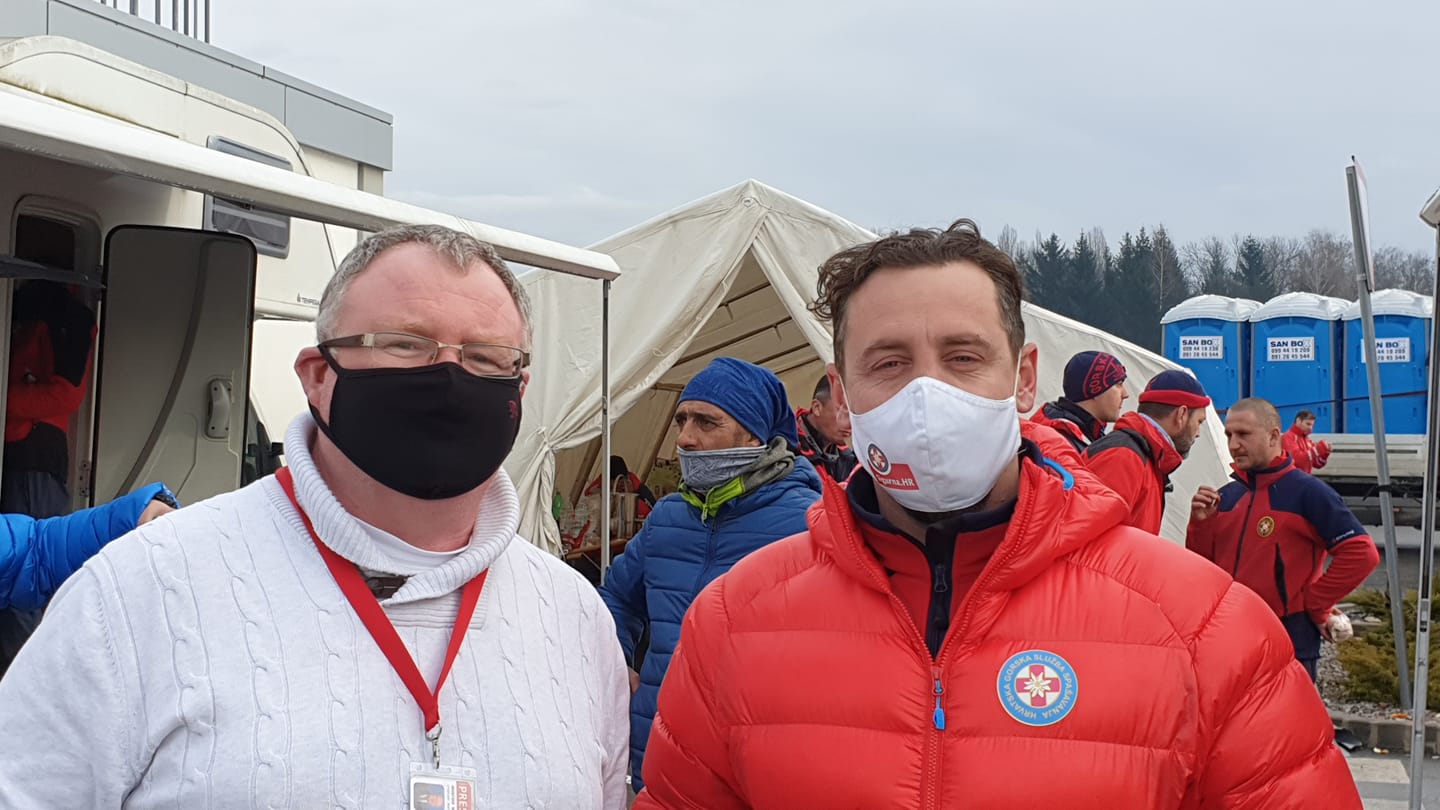
We are curiously bonded by both being unlikely male models (ok, he far more likely than me) in the Varteks 'Imperfect Guy in a Perfect Suit' campaign. Josip is a big TCN fan and was very helpful in a great feature on the amazing team at the Croatian Mountain Rescue Service by TCN earlier this year - Meet HGSS The Croatian Mountain Rescue Service.
Despite working through the night without any sleep, Josip found time for an interview with Marc, which we will publish tomorrow.
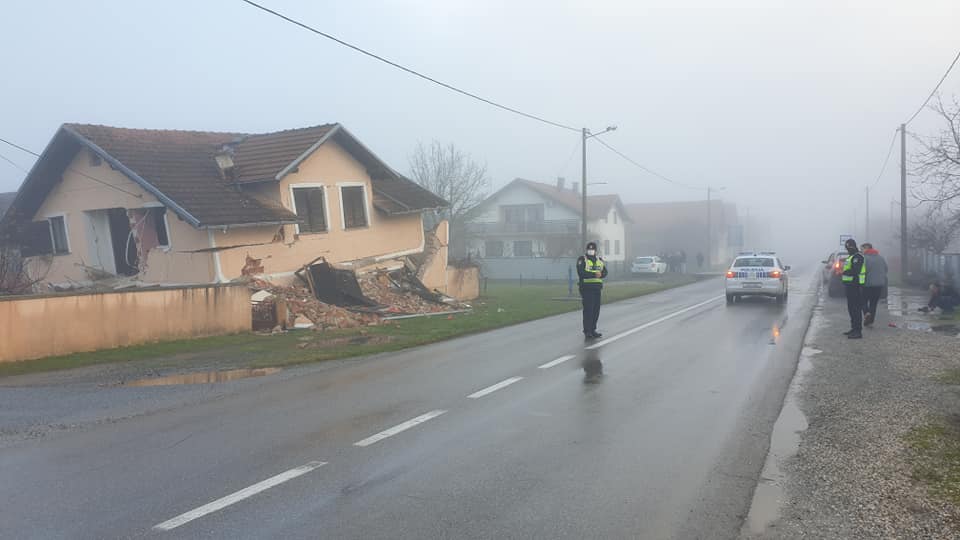
Police road checks in the earthquake era. I was expecting much more traffic congestion, but the police kept things moving.
What the police could not control were more tremors. Alone in the car again as Marc took more photos, the car started to move side to side, and the earth was definitely moving underneath me - a 4.1 earthquake I was to discover later. Par for the course in Croatia in 2020 and nothing to write home about.
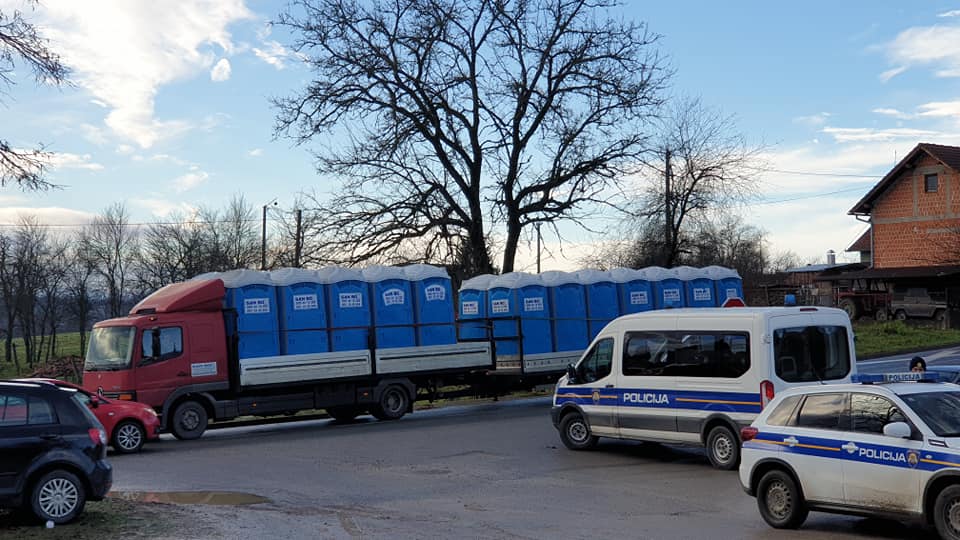
And the traffic kept flowing, bringing the essential items to the locations which needed them most.
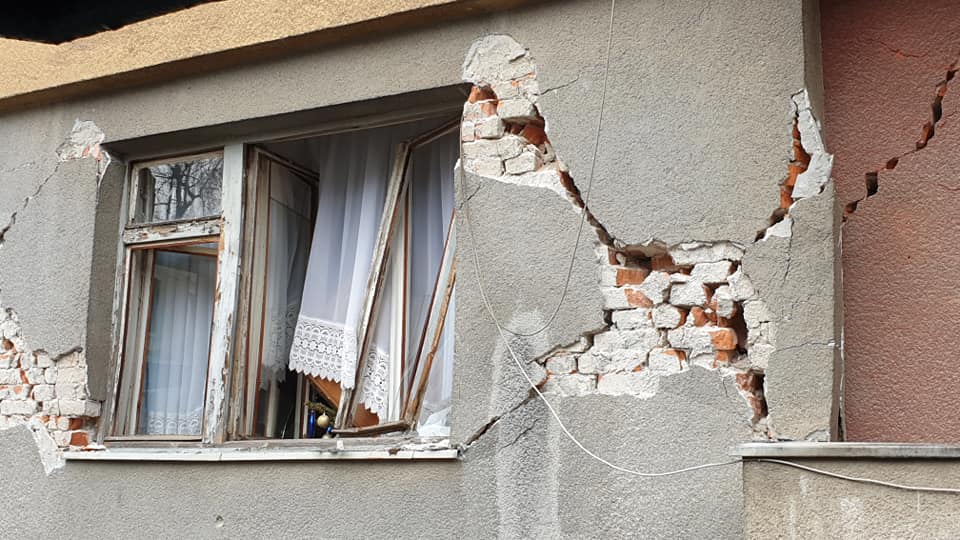
The damage was everywhere, and for all to see.
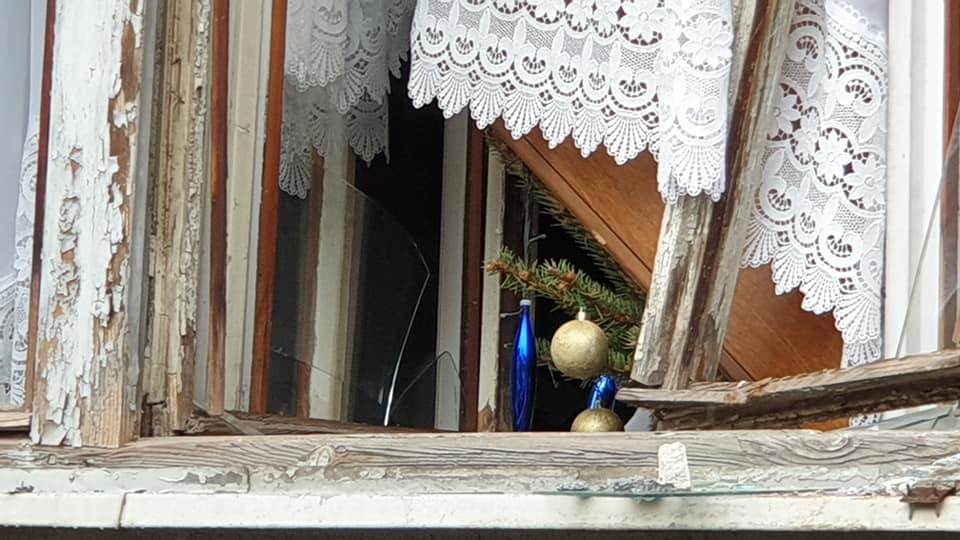
Some with memories of the celebrations of a happier festive season, just a few days ago, when life was very different.
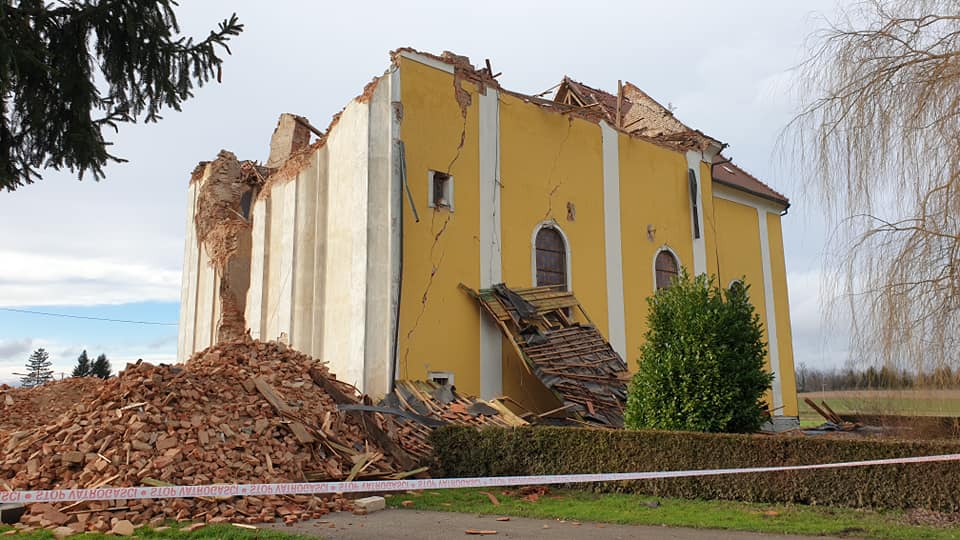
There was time for one more stop before returning to Zagreb - the church in the village of Zazina. Its front and spire no longer there.
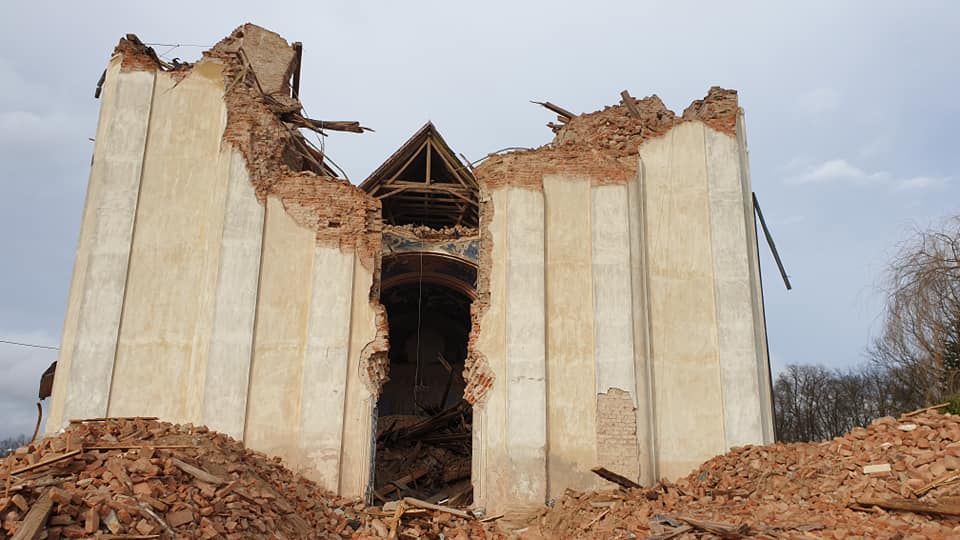
Ripped from the rest of the building.

This is how the church had looked just 24 hours earlier. I learned later that the church organist had been cleaning the organ when the earthquake struck, and he was tragically killed.
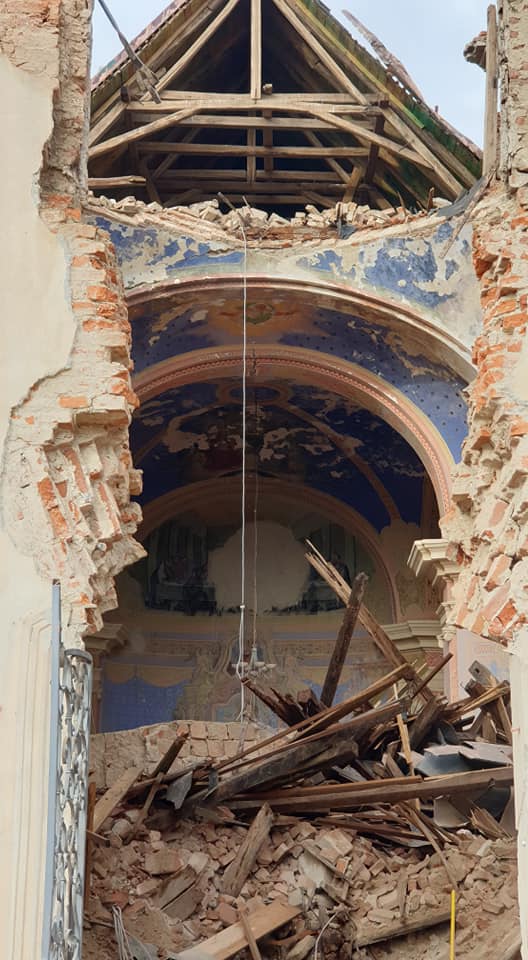
The frescoed walls inside still there to see.
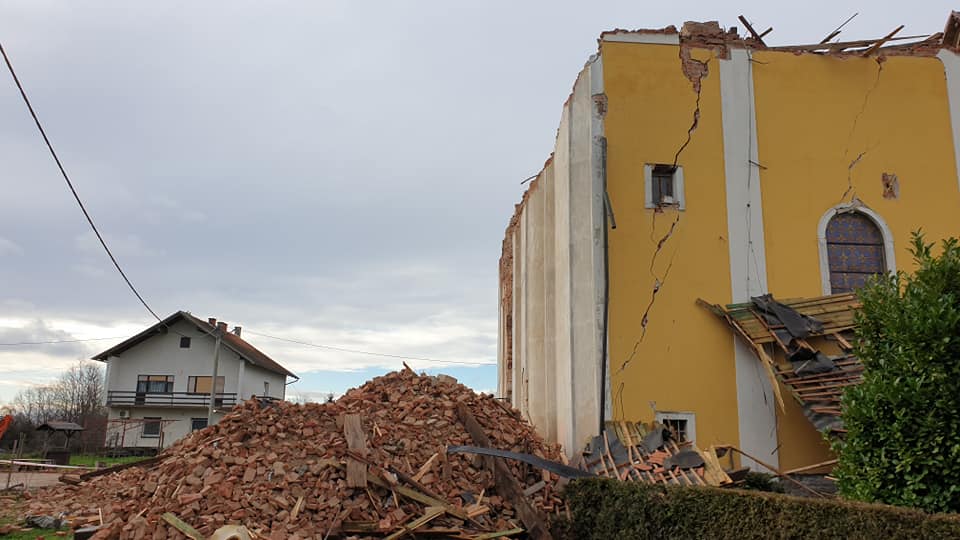
Young versus old, as the neighbour emerged without a scratch. But as we saw with the church in Gora, young does not necessarily guarantee safety from earthquakes.
We drove back to Zagreb in relative silence, each lost in their own thoughts and suffering from the early start and the trauma of the day.
A harrowing day for sure, but also a heartwarming one. Croatians are the most resilient people I know, at their finest in adversity. There are thousands of heroic examples of this being performed on a daily basis at the moment, and I applaud each and every one of them who has risen to the task.
And let's not forget the generosity of the diaspora and international community as well. The response to this disaster has been magnificent, as has been the emergency response. Help IS getting to those who need it most on the ground, and the donations ARE making a difference.
For more on the Petrinja earthquake, follow today's live updates. For more on how you can help and donate funds, food, material and humanitarian aid, click here and here for the details of a special (free of additional charges) HPB donation account for Grad Petrinja.
Bad Blue Boys and Torcida Clean Petrinja Ruins Throughout Night
December the 30th, 2020 - Due to the proximity of Petrinja to the City of Zagreb, Dinamo's Bad Blue Boys were at the scene of the tragedy barely a few hours after it happened, reports Index.
As Poslovni Dnevnik writes, in a video received by Index (which can be viewed by clicking on the above link), Zagreb's Bad Blue Boys are seen connected in a human chain in the pitch darkness, cleaning away the ruins of Petrinja following the horrific earthquake which struck yesterday. Although it can be seen in the video that many Dinamo fans are working hard and diligently without stopping, they nevertheless encourage each other during the cleaning process.
After working the first day and night in what is now the hell of Petrinja, the Bad Blue Boys went home to sleep in Zagreb, before returning this morning to help at the site of the quake.
"Bilo (Bijelo) srce" also launched an action to help the residents of Petrinja who were so horribly affected by the earthquake.
The association "Bilo srce" under the media sponsorship of Slobodna Dalmacija, Dalmatinski portal and Radio Dalmacija decided to launch an action called "Bilo srce kuca za sve vas" (Our white heart beats for all of you) with the aim of helping all of the residents of Petrinja, Sisak, Glina and surrounding areas affected by the earthquake. All funds raised will be donated to all those who need help, as was announced on Wednesday on Hajduk's internet portal.
"On Tuesday, in record time, several aid trucks were gathered, which headed towards the affected areas during the night, as well as members of Torcida who are participating in the field operations today. At the same time, a large number of Hajduk fans have made own properties available for those whose homes were damaged in the earthquake and who need accommodation, and we're ready to organise a reception if necessary. We'd like to thank everyone who was available all the time and offered their help, as well as everyone who will in any way get involved in this action in order to once again show the greatness of Hajduk's heart,'' the association stated.
For more on the Petrinja earthquake, follow today's live updates. For more on how you can help and donate funds, food, material and humanitarian aid, click here and here for the details of a special (free of additional charges) HPB donation account for Grad Petrinja.
Istria Sends a Convoy of Caravans to Petrinja: 'This Is Just the Beginning'
December 30, 2020 – For the part of the population who have lost a place to sleep, Istria sent a convoy of caravans to Petrinja and other earthquake-ravaged surrounding places.
After the Istrian firefighters went to help the injured in Petrinja and its surroundings yesterday, today Istrians showed a big heart again. Namely, in front of the Žatika hall in Poreč, a convoy of caravans headed towards the earthquake-affected areas.
As Jutarnji.hr reports, the caravan owners from Istria sent 16 of them, equipped, to Petrinja and Glina on Wednesday, so that part of the Petrinja and Glina residents could have a place to sleep.
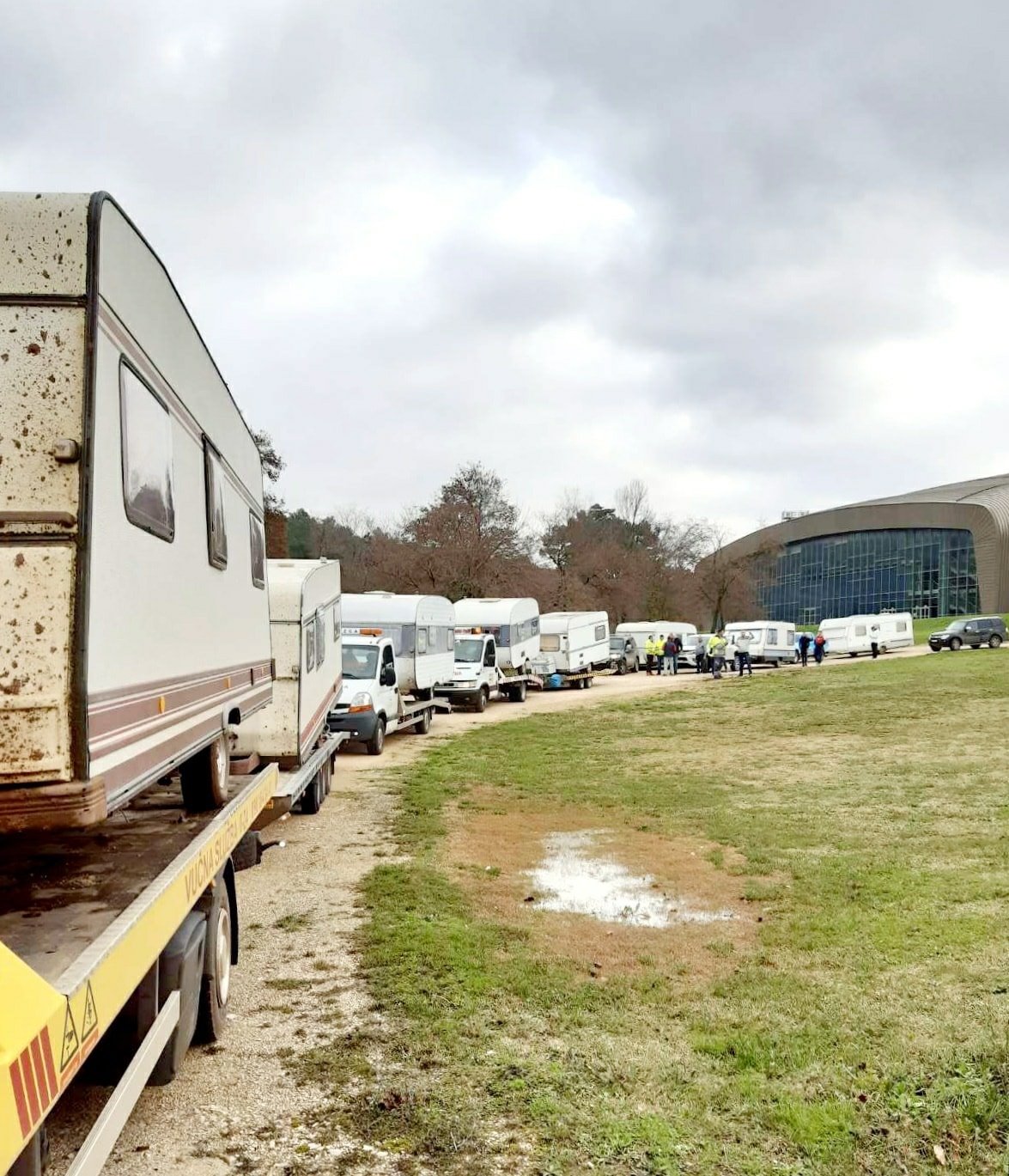
A convoy of caravans headed from Istria to Petrinja / Photo: the City of Poreč - Parenzo
This humanitarian action was initiated by Denis Bernobić from Poreč, the owner of a local towing service, together with the owner of a small family camp Polidor near Funtana, Adrian Ukušić. According to both of them, whom Jutarnji found in a convoy near Rijeka while transporting the first contingent of houses, this is just the beginning.
"Private owners of caravans responded to the action, and among them are even some Germans who have their caravan in the Bijela Uvala camp near Poreč. They called me and said they were giving their caravan away with all the papers. People immediately started appearing like crazy from all over Istria, so this is only the first contingent," says Bernobić, who set off for Petrinja and Glina on Wednesday together with colleagues with eight trucks, seven jeeps, and two vans.
They are driving caravans directly to people who were left without roofs and slept outside last night, and they have everything – toilets, beds, and heating.
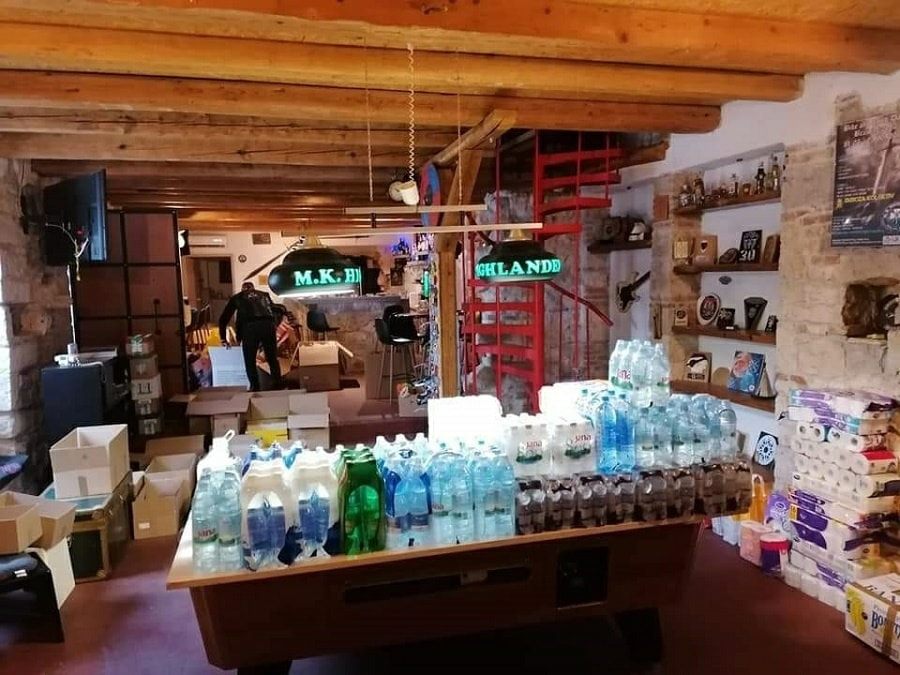
The caravans are equipped with food and drinks / Photo: the City of Poreč - Parenzo
"The caravans are also full of drinks and food. There are even wood and wood stoves inside. The van is full of bedding. Everyone helped us to equip them, and the Red Cross from Poreč and Rovinj were especially active, and I thank them for that," says Bernobić, whose phone keeps ringing.
"They keep calling me across all platforms because people want to give away their caravans. So we will drive towards Petrinja and Glina in the coming days as well. We expect to take about 40 caravans to the affected areas in the next few days. Colleagues from Koper and Slovenia who have a towing service also call me to help us take the campers, "points out Bernobić, who took similar action with Ukušić when Gunja was flooded.
The owner of Polidor was also with him in convoy, and he gave two of his camps. Mayor of Poreč Loris Peršurić also supported Bernobić.
"These are all donations from citizens from all over Poreč and beyond. Poreč Red Cross, local committees, and numerous associations and initiatives still collect all kinds of help. This is an unprecedented tragedy. The minimum we can do is help people whose homes have been destroyed, who are terrified, and whose horrors, unfortunately, are not over yet," Mayor Peršurić told Hina.
Follow our live updates on the situation in Croatia's earthquake-hit areas here; find out how you can donate here.


